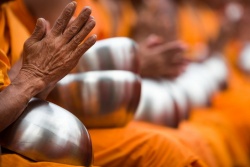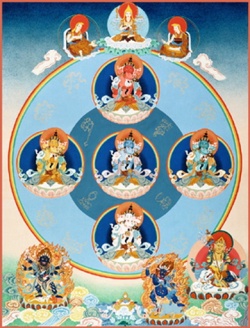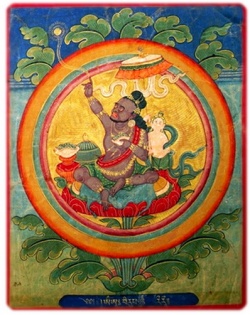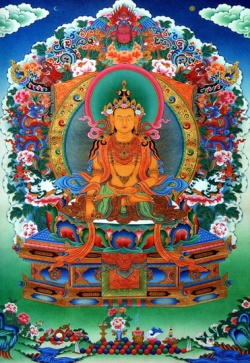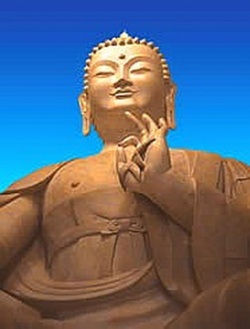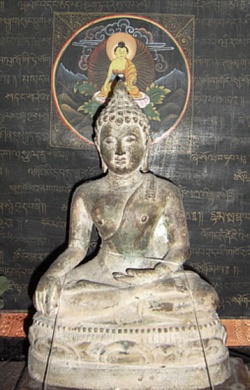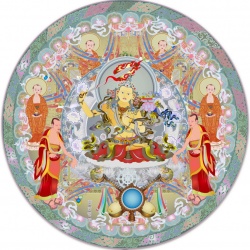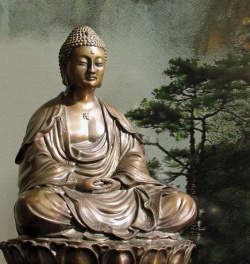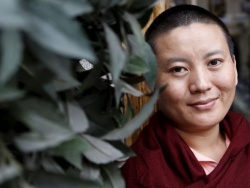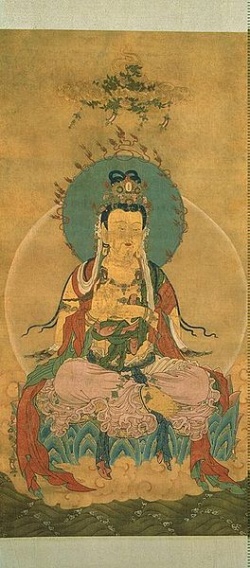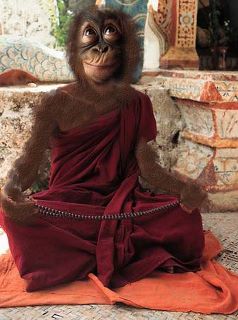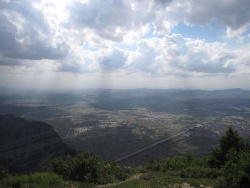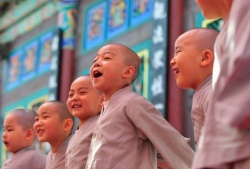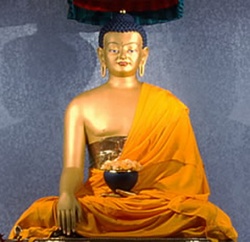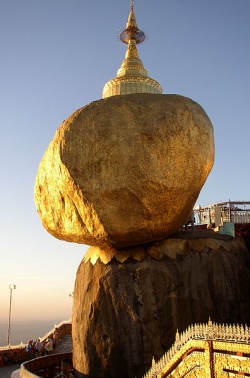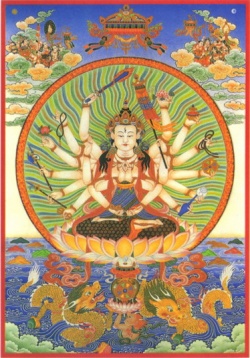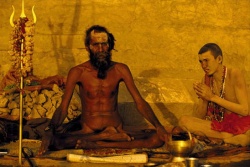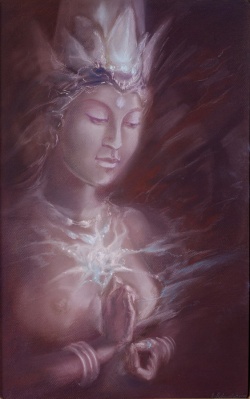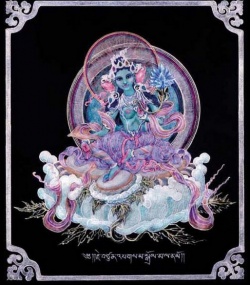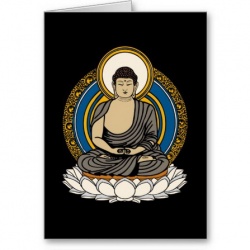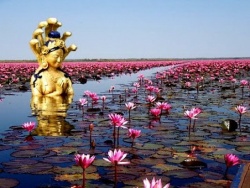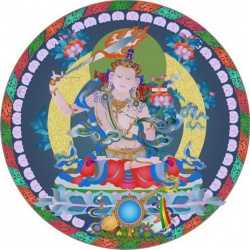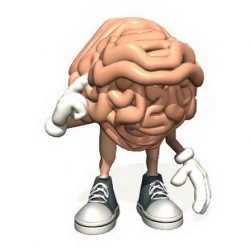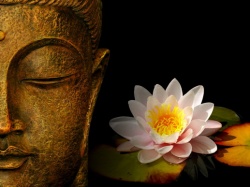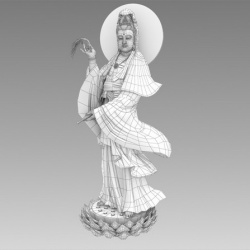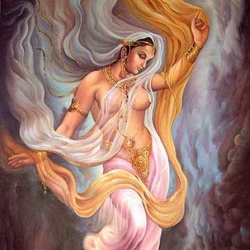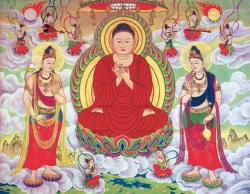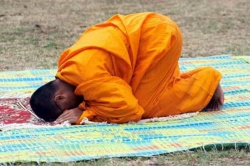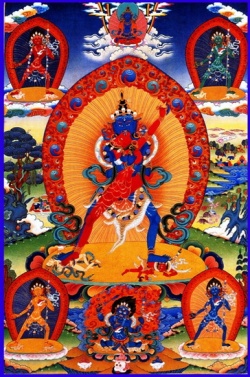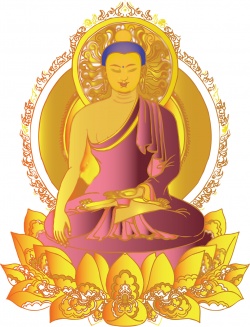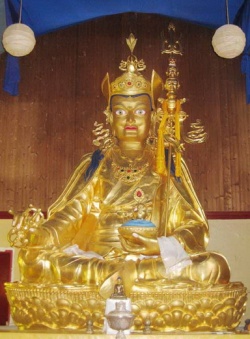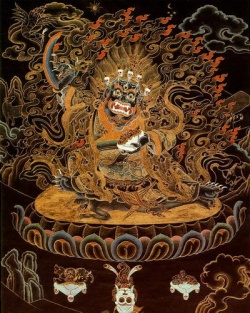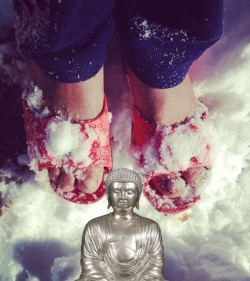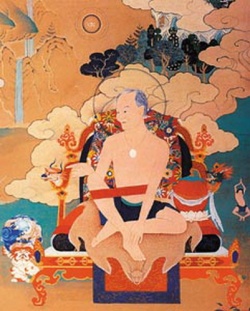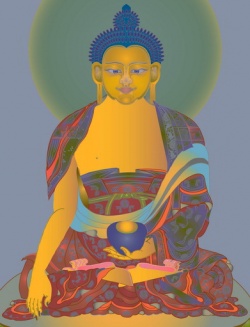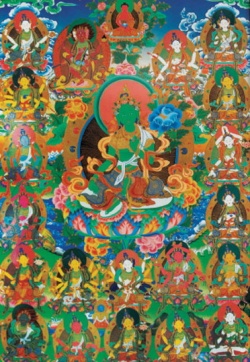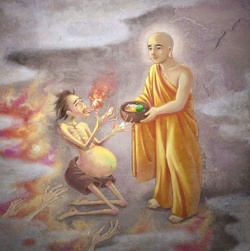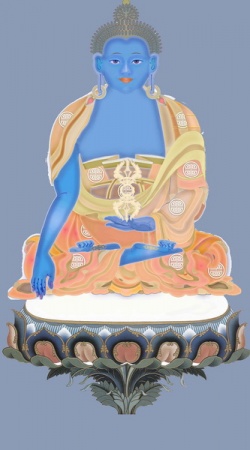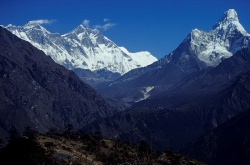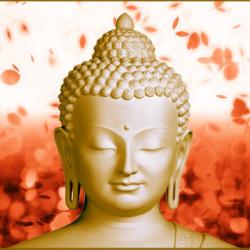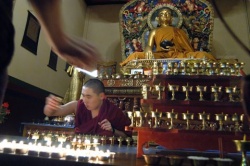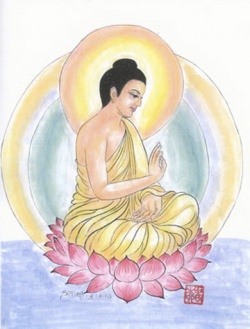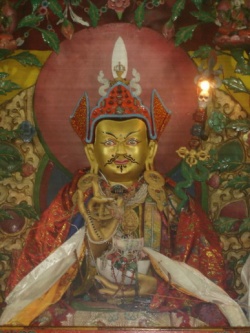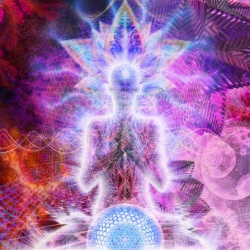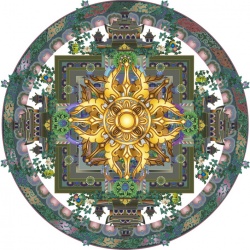Difference between revisions of "Vajrasamadhi Sutra"
m (Text replacement - "concentrations" to "concentrations") |
|||
| (9 intermediate revisions by 2 users not shown) | |||
| Line 1: | Line 1: | ||
| − | + | {{DisplayImages|2351|1428|1628|149|2027|2436|8|1303|158|3247|1884|432|300|1489|1206|1801|2941|1864|3500|878|2550|3191|2212|667|52|794|1772|89|2597|2220|2126|122|1170|989|1851|897|3429|3488|220|3449|3144|628|1721|3506|531|684|2236|3367|1858|1899}}{{DisplayImages|1563|2745|3505|134|1743|969|3184|3277|2391|634|3587|2141|200|3061|1746|2051|1771|1715|813|1954|2905|445|540|3384|1058|2619|524|746|3241|3252|3551|3123|25|363|2390|800|924}} | |
<poem> | <poem> | ||
The [[Vajrasamadhi Sutra]] | The [[Vajrasamadhi Sutra]] | ||
| Line 9: | Line 9: | ||
([[Taisho Tripitaka]], No. 273) | ([[Taisho Tripitaka]], No. 273) | ||
| − | Chapter One: Prologue | + | [[Chapter]] One: Prologue |
| − | [[Thus have I heard]]. The [[Buddha]] was once in the great city of [[Rajagrha]] (King's House), on Mount Grdhrakuta ([[Vulture Peak]]), together with a [[great assembly]] of some ten thousand [[bhiksus]] ([[ordained]] [[monks]]), all of whom had [[attained]] the [full] [[arhat]] [[path]]. They included [[arhats]] [[Sariputra]], [[Mahamaudgalyayana]], Subuti, etc. | + | [[Thus have I heard]]. The [[Buddha]] was once in the great city of [[Rajagrha]] (King's House), on [[Mount Grdhrakuta]] ([[Vulture Peak]]), together with a [[great assembly]] of some ten thousand [[bhiksus]] ([[ordained]] [[monks]]), all of whom had [[attained]] the [full] [[arhat]] [[path]]. They included [[arhats]] [[Sariputra]], [[Mahamaudgalyayana]], [[Subuti]], etc. |
| − | Also {{Wiki|present}} were some two thousand [[bodhisattvas]], [[mahasattvas]] (ad-epts on their way to full [[enlightenment]]). Their names were [[Liberation]] ([[Vimukti]]) [[Bodhisattva]], [[Mind]] [[King]] (Cittaraja) [[Bodhisattva]], Non-Abiding (Apratisthita) [[Bodhisattva]], etc. | + | Also {{Wiki|present}} were some two thousand [[bodhisattvas]], [[mahasattvas]] (ad-epts on their way to full [[enlightenment]]). Their names were [[Liberation]] ([[Vimukti]]) [[Bodhisattva]], [[Mind]] [[King]] ([[Cittaraja]]) [[Bodhisattva]], [[Non-Abiding]] ([[Apratisthita]]) [[Bodhisattva]], etc. |
| − | Furthermore, there were eighty thousand [[elders]] (grhapati). Their names were Elder {{Wiki|Chastity}} ([[Brahmacarya]]), Elder Great {{Wiki|Chastity}} (Mahabrahmacarya), Elder Luminary (Jyotiska), etc. | + | Furthermore, there were eighty thousand [[elders]] ([[grhapati]]). Their names were Elder {{Wiki|Chastity}} ([[Brahmacarya]]), Elder Great {{Wiki|Chastity}} ([[Mahabrahmacarya]]), Elder Luminary ([[Jyotiska]]), etc. |
| − | In addition, there were [[devas]], [[dragons]], [[yaksas]] ({{Wiki|demons}}), [[gandharvas]] (demigod-musicians), [[asuras]] (titans), [[garudas]] ([[mystical]] birds), [[kinnaras]] (half horses/half men), [[mahoragas]] (great {{Wiki|snakes}}), [[humans]] and non-humans - some six hundred million of them. | + | In addition, there were [[devas]], [[dragons]], [[yaksas]] ({{Wiki|demons}}), [[gandharvas]] (demigod-musicians), [[asuras]] ([[titans]]), [[garudas]] ([[mystical]] birds), [[kinnaras]] (half horses/half men), [[mahoragas]] (great {{Wiki|snakes}}), [[humans]] and [[non-humans]] - some six hundred million of them. |
| − | At that [[time]] the [[Lord]] was surrounded by the [[great assembly]]. He expounded a [[Mahayana sutra]] to them, entitled 'The Practice and Benediction of the Single-Taste, Definite, [[Signless]], Beyond-Creation, [[Absolute Reality]] of Self-Enlightenment' (Vajrasamadhi [[Sutra]]). If one hears this [[sutra]] or retains only one four-line [[stanza]] of it, that [[person]] will be able to access the [[Buddha's wisdom]] [in {{Wiki|future}}]. He will be able to {{Wiki|liberate}}, with appropriate expedients, [[sentient beings]] [who, in turn, can] become great [[spiritual]] mentors to all [[sentient beings]]. | + | At that [[time]] the [[Lord]] was surrounded by the [[great assembly]]. He expounded a [[Mahayana sutra]] to them, entitled 'The Practice and Benediction of the Single-Taste, Definite, [[Signless]], Beyond-Creation, [[Absolute Reality]] of [[Self-Enlightenment]]' ([[Vajrasamadhi]] [[Sutra]]). If one hears this [[sutra]] or retains only one four-line [[stanza]] of it, that [[person]] will be [[able]] to access the [[Buddha's wisdom]] [in {{Wiki|future}}]. He will be [[able]] to {{Wiki|liberate}}, with appropriate expedients, [[sentient beings]] [who, in turn, can] become great [[spiritual]] mentors to all [[sentient beings]]. |
| − | After the [[Buddha]] expounded this [[sutra]], he folded [his {{Wiki|legs}}] into full-lotus pose and entered into [[diamond]] [[absorption]] (vajrasamadhi), with his [[body]] and [[mind]] motionless. At that [[time]], a [[bhiksu]] ([[ordained]] [[monk]]) in the assembly named [[Agada]], rose from his seat [to pay respects to the [[Buddha]]]. He joined his palms together, with his right knee on the ground. Reiterating the [[essence]] [of the [[sutra]] expounded], he recited the [[stanza]]: | + | After the [[Buddha]] expounded this [[sutra]], he folded [his {{Wiki|legs}}] into [[full-lotus]] pose and entered into [[diamond]] [[absorption]] ([[vajrasamadhi]]), with his [[body]] and [[mind]] motionless. At that [[time]], a [[bhiksu]] ([[ordained]] [[monk]]) in the assembly named [[Agada]], rose from his seat [to pay respects to the [[Buddha]]]. He joined his palms together, with his right knee on the ground. Reiterating the [[essence]] [of the [[sutra]] expounded], he recited the [[stanza]]: |
The [[Lord]], the [[embodiment]] of [[compassion]], | The [[Lord]], the [[embodiment]] of [[compassion]], | ||
| Line 27: | Line 27: | ||
In order to ferry [[sentient beings]] across [to the other shore], | In order to ferry [[sentient beings]] across [to the other shore], | ||
| − | Has explained the [[essence]] of the One-Truth. | + | Has explained the [[essence]] of the One-[[Truth]]. |
All this was accomplished via the [[path]] of Single-Taste, | All this was accomplished via the [[path]] of Single-Taste, | ||
Never by means of the [[Hinayana]] (incomplete [[realization]]). | Never by means of the [[Hinayana]] (incomplete [[realization]]). | ||
Where the {{Wiki|taste}} of the [[essence]] has been spoken, | Where the {{Wiki|taste}} of the [[essence]] has been spoken, | ||
It enabled all to abandon the unreal. | It enabled all to abandon the unreal. | ||
| − | Accessing the wisdom-base of all the [[buddhas]], | + | Accessing the [[wisdom]]-base of all the [[buddhas]], |
That [[Absolute Reality]], | That [[Absolute Reality]], | ||
The entire audience (now) [[knows]] how to transcend the [[world]], | The entire audience (now) [[knows]] how to transcend the [[world]], | ||
With no one unable to attain [[liberation]] (ultimately). | With no one unable to attain [[liberation]] (ultimately). | ||
| − | All the innumerable [[bodhisattvas]], | + | All the {{Wiki|innumerable}} [[bodhisattvas]], |
Know how to ferry all [[sentient beings]] across (to the other shore). | Know how to ferry all [[sentient beings]] across (to the other shore). | ||
For the assembly, they inquired extensively and profoundly, | For the assembly, they inquired extensively and profoundly, | ||
| Line 42: | Line 42: | ||
They accessed the [[Absolute]] domain [of [[enlightenment]]]. | They accessed the [[Absolute]] domain [of [[enlightenment]]]. | ||
The [[Tathagata]], through his [[wisdom]] and expedients, | The [[Tathagata]], through his [[wisdom]] and expedients, | ||
| − | Speaks so that [all [[beings]]] will be able to access [[Reality]], | + | Speaks so that [all [[beings]]] will be [[able]] to access [[Reality]], |
In accordance with the One-Vehicle, | In accordance with the One-Vehicle, | ||
Without extraneous {{Wiki|tastes}}. | Without extraneous {{Wiki|tastes}}. | ||
| Line 56: | Line 56: | ||
They [[realized]] the [[absorption]] of the [[Reality]] of [[dharmas]]. | They [[realized]] the [[absorption]] of the [[Reality]] of [[dharmas]]. | ||
They are determined to transcend [[doubts]] and regrets, | They are determined to transcend [[doubts]] and regrets, | ||
| − | Through the seal of the One-Dharma. | + | Through the {{Wiki|seal}} of the One-[[Dharma]]. |
| − | Chapter Two: The [[Signless]] [[Dharma]] | + | [[Chapter]] Two: The [[Signless]] [[Dharma]] |
| − | [[Arising]] from his [[samadhi]], the [[Lord]] spoke thus, "The wisdom-base of all the [[buddhas]] accesses the [[nature]] and [[characteristics]] of all [[dharmas]]. From this definitive wisdom-base, the [[buddhas]]' expedients and [[spiritual powers]] in benefiting [[sentient beings]] are all done without [[signs]]. The [[essence]] of the One-Enlightenment is difficult to understand and access. It is not understood or [[recognized]] by {{Wiki|adherents}} of the [[two vehicles]] [of [[sravakas]] and [[pratyekabuddhas]]]. It is only known by the [[buddhas]] and [[bodhisattvas]] who explain the Single-Taste to [[sentient beings]] capable of {{Wiki|transcendence}}." | + | [[Arising]] from his [[samadhi]], the [[Lord]] spoke thus, "The [[wisdom]]-base of all the [[buddhas]] accesses the [[nature]] and [[characteristics]] of all [[dharmas]]. From this definitive wisdom-base, the [[buddhas]]' expedients and [[spiritual powers]] in benefiting [[sentient beings]] are all done without [[signs]]. The [[essence]] of the One-Enlightenment is difficult to understand and access. It is not understood or [[recognized]] by {{Wiki|adherents}} of the [[two vehicles]] [of [[sravakas]] and [[pratyekabuddhas]]]. It is only known by the [[buddhas]] and [[bodhisattvas]] who explain the Single-Taste to [[sentient beings]] capable of {{Wiki|transcendence}}." |
| − | Then [[Vimukti]] ([[Liberation]]) [[Bodhisattva]] immediately rose from his seat, with his palms joined together and his right knee on the ground, addressed the [[Buddha]], "[[Lord]]! After the [[Buddha's]] | + | Then [[Vimukti]] ([[Liberation]]) [[Bodhisattva]] immediately rose from his seat, with his palms joined together and his right knee on the ground, addressed the [[Buddha]], "[[Lord]]! After the [[Buddha's]] [[physical]] demise, the right [[dharma]] will vanish from the [[world]] and the semblance [[dharma]] will linger on. During the [[dharma-ending age]], [[sentient beings]] [[tainted]] by the [[five turbidities]] (such as {{Wiki|calamities}}, [[wrong views]], unending worries, shortened [[life-span]] etc., over [[infinite]] world-cycles) will perform all types of [[evil]] [[deeds]] and transmigrate amongst the three ([[form]], [[formless]] and [[desire]]) [[realms of existence]] without respite. May the [[Buddha]], out of his [[mercy]] and [[compassion]], proclaim for the later generations, the Single-Taste [[Absolute Reality]] [[Dharma]], to enable all [[sentient beings]] to be {{Wiki|liberated}}." |
| − | The [[Buddha]] said, "Good man, you asked about what [[caused]] my [[appearance]] in the [[world]] to {{Wiki|liberate}} [[sentient beings]] to let them attain the [[fruition]] [of [[enlightenment]]] that transcends the [[world]]. This great {{Wiki|matter}} [of a [[buddha's]] [[appearance]] in the [[world]]] is [[inconceivable]], because it is performed out [[of great mercy]] [and] [[great compassion]]. If I do not respond [to your questions], I will fall into [[miserliness]] [for with-holding the [[Dharma]] I have [[awakened]] to]. You should listen attentively and carefully. I shall proclaim [the [[Dharma]]] for you. | + | The [[Buddha]] said, "Good man, you asked about what [[caused]] my [[appearance]] in the [[world]] to {{Wiki|liberate}} [[sentient beings]] to let them attain the [[fruition]] [of [[enlightenment]]] that {{Wiki|transcends}} the [[world]]. This great {{Wiki|matter}} [of a [[buddha's]] [[appearance]] in the [[world]]] is [[inconceivable]], because it is performed out [[of great mercy]] [and] [[great compassion]]. If I do not respond [to your questions], I will fall into [[miserliness]] [for with-holding the [[Dharma]] I have [[awakened]] to]. You should listen attentively and carefully. I shall proclaim [the [[Dharma]]] for you. |
"Good man, when liberating [[sentient beings]], do not conceive whether it takes place or not; then it (such an act) is great indeed! [[Guide]] these [[sentient beings]] to abandon [[mind]] and [[ego]], for both [[mind]] and [[ego]] are basically [[void]] [of {{Wiki|independent}} [[existence]]]. If they realize the [[void]] of [[mind]], the [[mind]] will not illusorily project anything. Free from all [[illusory]] {{Wiki|projections}}, they will attain [[cessation]] [of birth-death cycles]. The [[mind]] that does not project anything derives from such non-projection." | "Good man, when liberating [[sentient beings]], do not conceive whether it takes place or not; then it (such an act) is great indeed! [[Guide]] these [[sentient beings]] to abandon [[mind]] and [[ego]], for both [[mind]] and [[ego]] are basically [[void]] [of {{Wiki|independent}} [[existence]]]. If they realize the [[void]] of [[mind]], the [[mind]] will not illusorily project anything. Free from all [[illusory]] {{Wiki|projections}}, they will attain [[cessation]] [of birth-death cycles]. The [[mind]] that does not project anything derives from such non-projection." | ||
| Line 84: | Line 84: | ||
[[Vimukti]] [[Bodhisattva]] addressed the [[Buddha]]: "[[Lord]]! If a [[sentient being]] abides by non-creation, would it mean [he had [[realized]]] the non-creation [of [[dharmas]]]?" | [[Vimukti]] [[Bodhisattva]] addressed the [[Buddha]]: "[[Lord]]! If a [[sentient being]] abides by non-creation, would it mean [he had [[realized]]] the non-creation [of [[dharmas]]]?" | ||
| − | The [[Buddha]] replied, "By abiding in non-creation, he would actually be creating something. Why? Only when one does not abide by non-creation is it really non-creation. [[Bodhisattva]], if one abides by non-creation, this is creating (activating) [the [[mind]]] to extinguish creation! When creation and [[extinction]] are both being [[extinguished]], creation cannot take place and the [[mind]] will be [[void]] and [[calm]], without any abode. Only a truly non-abiding [[mind]] is non-creating." | + | The [[Buddha]] replied, "By abiding in non-creation, he would actually be creating something. Why? Only when one does not abide by non-creation is it really non-creation. [[Bodhisattva]], if one abides by non-creation, this is creating (activating) [the [[mind]]] to extinguish creation! When creation and [[extinction]] are both being [[extinguished]], creation cannot take place and the [[mind]] will be [[void]] and [[calm]], without any abode. Only a truly [[non-abiding]] [[mind]] is non-creating." |
[[Vimukti]] [[Bodhisattva]] addressed the [[Buddha]]: "If the [[mind]] does not abide anywhere, is there need for {{Wiki|learning}} and [[cultivation]]? Is there is still {{Wiki|learning}} left to be completed or no more {{Wiki|learning}} required?" | [[Vimukti]] [[Bodhisattva]] addressed the [[Buddha]]: "If the [[mind]] does not abide anywhere, is there need for {{Wiki|learning}} and [[cultivation]]? Is there is still {{Wiki|learning}} left to be completed or no more {{Wiki|learning}} required?" | ||
| Line 92: | Line 92: | ||
[[Vimukti]] [[Bodhisattva]] addressed the [[Buddha]]: "How is it that the [[nature]] of the [[tathagatagarbha]] is [[calm]] and motionless?" | [[Vimukti]] [[Bodhisattva]] addressed the [[Buddha]]: "How is it that the [[nature]] of the [[tathagatagarbha]] is [[calm]] and motionless?" | ||
| − | The [[Buddha]] replied, "The [[characteristics]] of [[arising]] and demise of the tathagatagarbha's functions and discretions are [in accordance with] its concealed [[principle]] [of void-calmness], enabling it not to [[manifest]] [itself]. This is how the [[nature]] of the [[tathagatagarbha]] is [[calm]] and motionless." | + | The [[Buddha]] replied, "The [[characteristics]] of [[arising]] and demise of the [[tathagatagarbha's]] functions and discretions are [in accordance with] its concealed [[principle]] [of void-calmness], enabling it not to [[manifest]] [itself]. This is how the [[nature]] of the [[tathagatagarbha]] is [[calm]] and motionless." |
| − | [[Vimukti]] [[Bodhisattva]] inquired, "Why are the [[characteristics]] | + | [[Vimukti]] [[Bodhisattva]] inquired, "Why are the [[characteristics]] of the [[tathagatagarbha's]] functions and discretions [[subject]] to [[arising]] and demise?" |
The [[Buddha]] replied, "[[Bodhisattva]], the [[principle]] is free from either [[acceptance]] or rejection. If there is [[acceptance]] or rejection, all kinds of [[thoughts]] would be created. All conceptions and mentations are [[subject]] to [[arising]] and demise. | The [[Buddha]] replied, "[[Bodhisattva]], the [[principle]] is free from either [[acceptance]] or rejection. If there is [[acceptance]] or rejection, all kinds of [[thoughts]] would be created. All conceptions and mentations are [[subject]] to [[arising]] and demise. | ||
| − | "[[Bodhisattva]], [[contemplate]] the [[self-nature]] and [[characteristics]] [of the [[tathagatagarbha]]] and the [[principle]] will be perfected in and of itself. All the conceptions and mentations do not augment the {{Wiki|principles}} of the [[path]]. They instead agitate [the [[mind]],] so that one loses (forgets) the basic mind-king [of the One-Mind]. With neither {{Wiki|conception}} nor {{Wiki|mentation}}, there will be no creation or [[extinction]] [of the [[mind]]]. The [[mind]] will not arise and be in [[Reality]]. All [eight] [[consciousnesses]] will be [[peaceful]] and [[calm]]. The currents [of [[desire]], [[existence]], and [[ignorance]]] will not arise. [One then] accesses the [[purity]] of the [[five dharmas]] [relating to the [[five aggregates]] of [[form]], [[feeling]], [[perception]], formation and [[consciousness]]]. This is called the [[Mahayana]]. | + | "[[Bodhisattva]], [[contemplate]] the [[self-nature]] and [[characteristics]] [of the [[tathagatagarbha]]] and the [[principle]] will be perfected in and of itself. All the conceptions and mentations do not augment the {{Wiki|principles}} of the [[path]]. They instead agitate [the [[mind]],] so that one loses (forgets) the basic [[mind-king]] [of the One-Mind]. With neither {{Wiki|conception}} nor {{Wiki|mentation}}, there will be no creation or [[extinction]] [of the [[mind]]]. The [[mind]] will not arise and be in [[Reality]]. All [eight] [[consciousnesses]] will be [[peaceful]] and [[calm]]. The currents [of [[desire]], [[existence]], and [[ignorance]]] will not arise. [One then] accesses the [[purity]] of the [[five dharmas]] [relating to the [[five aggregates]] of [[form]], [[feeling]], [[perception]], formation and [[consciousness]]]. This is called the [[Mahayana]]. |
"[[Bodhisattva]], by accessing the [[purity]] ([[void]] [[nature]]) of the [[five dharmas]] [of the [[five aggregates]]], the [[mind]] is free from [[delusions]]. When [[delusions]] vanish, one immediately accesses the base of the [[tathagata's]] self-enlightened, noble-wisdom. One who accesses this [[wisdom]] fully [[knows]] that everything is uncreated originally. [[Knowing]] that everything is uncreated originally, one is free from [all] [[illusory]] conceptions." | "[[Bodhisattva]], by accessing the [[purity]] ([[void]] [[nature]]) of the [[five dharmas]] [of the [[five aggregates]]], the [[mind]] is free from [[delusions]]. When [[delusions]] vanish, one immediately accesses the base of the [[tathagata's]] self-enlightened, noble-wisdom. One who accesses this [[wisdom]] fully [[knows]] that everything is uncreated originally. [[Knowing]] that everything is uncreated originally, one is free from [all] [[illusory]] conceptions." | ||
| − | [[Vimukti]] [[Bodhisattva]] addressed the [[Buddha]]: "[[Lord]]! One who is free from | + | [[Vimukti]] [[Bodhisattva]] addressed the [[Buddha]]: "[[Lord]]! One who is free from [[illusory]] conceptions should have nothing that need to be [[calmed]] or brought to an end." |
The [[Buddha]] responded, "[[Bodhisattva]], [[delusions]] are originally uncreated. [Hence,] there are no [[delusions]] to be brought to an end. [[Knowing]] that the [[mind]] is actually non-mind ([[void]] in [[nature]]), there is [[no mind]] to be [[calmed]]. [Being] free from both differentiation and {{Wiki|discrimination}}, the [[consciousness]] that [otherwise] projects sensory [[objects]] will cease to be active. With nothing to be [[calmed]], this is non-calming. Yet it is also not non-calming. Why? Because [true] [[calming]] actually [[calms]] nothing." | The [[Buddha]] responded, "[[Bodhisattva]], [[delusions]] are originally uncreated. [Hence,] there are no [[delusions]] to be brought to an end. [[Knowing]] that the [[mind]] is actually non-mind ([[void]] in [[nature]]), there is [[no mind]] to be [[calmed]]. [Being] free from both differentiation and {{Wiki|discrimination}}, the [[consciousness]] that [otherwise] projects sensory [[objects]] will cease to be active. With nothing to be [[calmed]], this is non-calming. Yet it is also not non-calming. Why? Because [true] [[calming]] actually [[calms]] nothing." | ||
| Line 109: | Line 109: | ||
| − | The [[Buddha]] replied, "[[Bodhisattva]], the moment when [[calming]] occurs it is being created, [but] after it has been done, no [further] [[calming]] is necessary. Do not linger in either non-calming or in non-abiding. How could it ([[calming]]) have been created?" | + | The [[Buddha]] replied, "[[Bodhisattva]], the moment when [[calming]] occurs it is being created, [but] after it has been done, no [further] [[calming]] is necessary. Do not linger in either non-calming or in [[non-abiding]]. How could it ([[calming]]) have been created?" |
[[Vimukti]] [[Bodhisattva]] addressed the [[Buddha]]: "[[Lord]]! What does a non-fabricating [[mind]] [[cling]] to or reject? Does it abide by any [[characteristics]] of [[dharmas]]?" | [[Vimukti]] [[Bodhisattva]] addressed the [[Buddha]]: "[[Lord]]! What does a non-fabricating [[mind]] [[cling]] to or reject? Does it abide by any [[characteristics]] of [[dharmas]]?" | ||
| Line 119: | Line 119: | ||
The [[Buddha]] replied, "Abiding by non-mind means [[mind]] not creating anything. Abiding by non-dharma means [[mind]] not being aroused by any [[dharma]]. | The [[Buddha]] replied, "Abiding by non-mind means [[mind]] not creating anything. Abiding by non-dharma means [[mind]] not being aroused by any [[dharma]]. | ||
| − | "Good man, when the [[mind]] is not being aroused, or not conceiving anything, it will be {{Wiki|independent}} of everything. Not lingering over all the [[formations]] ([[samskara]]) [of [[subject]], or [[object]] [[relative]] to the [[body, speech and mind]]], the [[mind]] will be constantly [[void]] and [[calm]], without any {{Wiki|projections}}. It is like the [[empty]] [[space]] - motionless and non-abiding, non-arising and non-doing, free from either this or that. One [thus] attains the [[eye]] ([[essence]]) of the [[void]] of [[mind]], and the [[body]] ([[nature]]) of the [[void]] of [[dharmas]]. Thus the [[five aggregates]] [of being] and the [[six sense-bases]] will be [[void]] and [[calm]]. | + | "Good man, when the [[mind]] is not being aroused, or not conceiving anything, it will be {{Wiki|independent}} of everything. Not lingering over all the [[formations]] ([[samskara]]) [of [[subject]], or [[object]] [[relative]] to the [[body, speech and mind]]], the [[mind]] will be constantly [[void]] and [[calm]], without any {{Wiki|projections}}. It is like the [[empty]] [[space]] - motionless and [[non-abiding]], non-arising and non-doing, free from either this or that. One [thus] attains the [[eye]] ([[essence]]) of the [[void]] of [[mind]], and the [[body]] ([[nature]]) of the [[void]] of [[dharmas]]. Thus the [[five aggregates]] [of being] and the [[six sense-bases]] will be [[void]] and [[calm]]. |
"Good man, he who cultivates the [[Dharma]] of [[voidness]] will be beyond the [[three realms]] ([[form]], [[formlessness]] and [[desire]]) of [[existence]] and need not abide by the specifics of the [[Vinaya]] (renunciate's [[precepts]]) [since all the [[precepts]] are [[embodied]] within this [[Dharma]]]. Being [[pure]] and free from [[thoughts]], he neither [[grasps]] nor relinquishes anything. His [[nature]] is the same as that of [[diamond]] - not {{Wiki|inferior}} to the [[triratna]] (the [[triple-gem]] comprising the [[Buddha]], [[Dharma]], and [[Sangha]]). His [[mind]], being [[void]], is still, fully endowed with all the [[six paramitas]] ([[perfections]])." | "Good man, he who cultivates the [[Dharma]] of [[voidness]] will be beyond the [[three realms]] ([[form]], [[formlessness]] and [[desire]]) of [[existence]] and need not abide by the specifics of the [[Vinaya]] (renunciate's [[precepts]]) [since all the [[precepts]] are [[embodied]] within this [[Dharma]]]. Being [[pure]] and free from [[thoughts]], he neither [[grasps]] nor relinquishes anything. His [[nature]] is the same as that of [[diamond]] - not {{Wiki|inferior}} to the [[triratna]] (the [[triple-gem]] comprising the [[Buddha]], [[Dharma]], and [[Sangha]]). His [[mind]], being [[void]], is still, fully endowed with all the [[six paramitas]] ([[perfections]])." | ||
| − | [[Vimukti]] [[Bodhisattva]] addressed the [[Buddha]]: "[[Lord]]! All the [[six paramitas]] have [[characteristics]]. Can [[dharmas]] having [[characteristics]] capable of transcending | + | [[Vimukti]] [[Bodhisattva]] addressed the [[Buddha]]: "[[Lord]]! All the [[six paramitas]] have [[characteristics]]. Can [[dharmas]] having [[characteristics]] capable of transcending [[sentient beings]]?" |
| − | The [[Buddha]] replied, "Good man, the [[six paramitas]] I speak of are [[formless]] and beyond practice. Why? If a [[person]] forsakes [[desires]], his [[mind]] will always be [[pure]]. Through his [[purity]] in {{Wiki|speech}} and [[skilful means]], he benefits himself and others. This is danaparamita | + | The [[Buddha]] replied, "Good man, the [[six paramitas]] I speak of are [[formless]] and beyond practice. Why? If a [[person]] forsakes [[desires]], his [[mind]] will always be [[pure]]. Through his [[purity]] in {{Wiki|speech}} and [[skilful means]], he benefits himself and others. This is [[danaparamita]] [[perfection]] of [[charity]]. |
| − | "With firm [[determination]] and [[constant]] non-abiding, his [[mind]] is [[pure]], untainted. He does not [[cling]] to the [[three realms of existence]]. This is silaparamita | + | "With firm [[determination]] and [[constant]] [[non-abiding]], his [[mind]] is [[pure]], untainted. He does not [[cling]] to the [[three realms of existence]]. This is silaparamita [[perfection]] of [[morality]]. |
| − | "[[Cultivating]] [the practices relating to the various aspects of] the [[void]] and extricating himself from all the knots ([[fetters]]), he is not [[attached]] to anything. He [[calms]] and silences the three [[karmic formations]] | + | "[[Cultivating]] [the practices relating to the various aspects of] the [[void]] and extricating himself from all the knots ([[fetters]]), he is not [[attached]] to anything. He [[calms]] and silences the three [[karmic formations]] [[relative]] to the [[body, speech and mind]] and does not abide by either [[body]] or [[mind]]. This is [[ksantiparamita]] ([[perfection]] of [[patience]]). |
"By leaving all [[sense-objects]] ([[forms]]), classifications and all ego-generating [[activities]], he overcomes the [[views]] of both [[Wikipedia:Existence|nonexistence]] and [[existence]] and delves deeply into the [[void]] of the [[aggregates]] ([[skandhas]]) [and their related ramifications - the six-roots ([[sense-doors]]), twelve entrances (the [[six sense-doors]] and their six [[objects]]), and eighteen [[sense]] [[realms]] (the [[six consciousness]] of the [[sense-doors]] added to the twelve entrances)]. This is viryaparamita ([[perfection]] of [[courage]]). | "By leaving all [[sense-objects]] ([[forms]]), classifications and all ego-generating [[activities]], he overcomes the [[views]] of both [[Wikipedia:Existence|nonexistence]] and [[existence]] and delves deeply into the [[void]] of the [[aggregates]] ([[skandhas]]) [and their related ramifications - the six-roots ([[sense-doors]]), twelve entrances (the [[six sense-doors]] and their six [[objects]]), and eighteen [[sense]] [[realms]] (the [[six consciousness]] of the [[sense-doors]] added to the twelve entrances)]. This is viryaparamita ([[perfection]] of [[courage]]). | ||
| − | "Completely [[abandoning]] | + | "Completely [[abandoning]] [[attachment]] to both the [[void]] and [[calmness]], yet not lingering in any [[void]], the [[mind]] is without abode, nor does it dwell in [[the great void]] itself. This is [[dhyanaparamita]] ([[perfection of meditation]]). |
"Free of all {{Wiki|projections}} [and being [[void]] in [[nature]]], the [[mind]] does not even [[cling]] to the [[void]] [itself]. In all [[activities]], the [[mind]] is not aroused, nor does it look forward to any [[realization]] of calm-extinction ([[Nirvana]]). It neither egresses nor accesses. Its [[nature]] is in [[perpetual]] [[equanimity]]. The [[Reality]] of all [[dharmas]] has this [[Absolute]] [[nature]]. It does not rely on any of the [[bhumis]] (the normal [[ten stages]] of [[spiritual]] progression), nor abide by any [[wisdom]]. This is [[prajnaparamita]] ([[perfection of wisdom]]). | "Free of all {{Wiki|projections}} [and being [[void]] in [[nature]]], the [[mind]] does not even [[cling]] to the [[void]] [itself]. In all [[activities]], the [[mind]] is not aroused, nor does it look forward to any [[realization]] of calm-extinction ([[Nirvana]]). It neither egresses nor accesses. Its [[nature]] is in [[perpetual]] [[equanimity]]. The [[Reality]] of all [[dharmas]] has this [[Absolute]] [[nature]]. It does not rely on any of the [[bhumis]] (the normal [[ten stages]] of [[spiritual]] progression), nor abide by any [[wisdom]]. This is [[prajnaparamita]] ([[perfection of wisdom]]). | ||
| − | "Good man, all the [[six paramitas]] are endowed with Self-Benediction [leading to Self-Enlightenment). They access the [[Absolute]] therein and transcend the [[world]]. This is unobstructed [[liberation]]." | + | "Good man, all the [[six paramitas]] are endowed with Self-Benediction [leading to [[Self-Enlightenment]]). They access the [[Absolute]] therein and transcend the [[world]]. This is unobstructed [[liberation]]." |
"Good man, the [[characteristics]] of such [[Dharmas]] that accord [[liberation]] are all beyond [[signs]] and practices. They are also beyond both [[liberation]] and bondage. This is called [[liberation]]. Why? Because the [[characteristics]] of [[liberation]] are beyond both sign and practice. It is motionless and beyond {{Wiki|distraction}}. [It is] the [[calm]] and [[silent]] [[Nirvana]], [yet] without [[clinging]] to any [[characteristics]] of [[Nirvana]]." | "Good man, the [[characteristics]] of such [[Dharmas]] that accord [[liberation]] are all beyond [[signs]] and practices. They are also beyond both [[liberation]] and bondage. This is called [[liberation]]. Why? Because the [[characteristics]] of [[liberation]] are beyond both sign and practice. It is motionless and beyond {{Wiki|distraction}}. [It is] the [[calm]] and [[silent]] [[Nirvana]], [yet] without [[clinging]] to any [[characteristics]] of [[Nirvana]]." | ||
| Line 172: | Line 172: | ||
Is perfected by the One-Vehicle. | Is perfected by the One-Vehicle. | ||
| − | When the [[great assembly]] heard the [[exposition]] of the [[Doctrine]], their [[minds]] were greatly [[pleased]]. They were able to abandon [[mind]] and [[self]] ([[ego]]). They accessed the [[signless]] [[void]] which is broad and expansive, vacant and vast (without obstruction). All gained the [[Absolute Reality]], cutting all [[fetters]] ([[mental afflictions]]) and eliminating all leakages ([[defilements]]). | + | When the [[great assembly]] heard the [[exposition]] of the [[Doctrine]], their [[minds]] were greatly [[pleased]]. They were [[able]] to abandon [[mind]] and [[self]] ([[ego]]). They accessed the [[signless]] [[void]] which is broad and expansive, vacant and vast (without obstruction). All gained the [[Absolute Reality]], cutting all [[fetters]] ([[mental afflictions]]) and eliminating all leakages ([[defilements]]). |
| − | Chapter Three: The Practice of Non-Creation | + | [[Chapter]] Three: The Practice of Non-Creation |
| − | At that [[time]] Cittaraja ([[Mind]] [[King]]) [[Bodhisattva]] heard the [[Buddha's]] {{Wiki|discourse}} of the [[Dharma]] that transcends the [[three realms of existence]], which is [[inconceivable]]. [[Arising]] from his seat, he joined his palms together and asked in [[stanza]]: | + | At that [[time]] [[Cittaraja]] ([[Mind]] [[King]]) [[Bodhisattva]] heard the [[Buddha's]] {{Wiki|discourse}} of the [[Dharma]] that {{Wiki|transcends}} the [[three realms of existence]], which is [[inconceivable]]. [[Arising]] from his seat, he joined his palms together and asked in [[stanza]]: |
The [[Doctrine]] the [[Tathagata]] has pronounced, | The [[Doctrine]] the [[Tathagata]] has pronounced, | ||
| Line 187: | Line 187: | ||
How can one attain the non-creation [of [[dharmas]]]? | How can one attain the non-creation [of [[dharmas]]]? | ||
| − | Then the [[Buddha]] proclaimed to Cittaraja [[Bodhisattva]], "Good man, the [[Dharma]] relating to the [[non-abidance]] and non-creation of [[dharmas]] is basically {{Wiki|unborn}} [as all [[dharmas]] are [[essentially]] [[void]] of [[self-nature]]]. [Being [[void]] of [[nature]],] all practices lead to nothing, not that there is a practice on non-creation. [Therefore] any [[attainment]] through abidance by non-creation is a deception." | + | Then the [[Buddha]] proclaimed to [[Cittaraja]] [[Bodhisattva]], "Good man, the [[Dharma]] relating to the [[non-abidance]] and non-creation of [[dharmas]] is basically {{Wiki|unborn}} [as all [[dharmas]] are [[essentially]] [[void]] of [[self-nature]]]. [Being [[void]] of [[nature]],] all practices lead to nothing, not that there is a practice on non-creation. [Therefore] any [[attainment]] through abidance by non-creation is a [[deception]]." |
| − | Cittaraja [[Bodhisattva]] asked, "[[Lord]]! Since [[attainment]] through abidance by non-creation is a deception, non-attainment and [[non-abidance]] should not be deceptions?" | + | [[Cittaraja]] [[Bodhisattva]] asked, "[[Lord]]! Since [[attainment]] through abidance by non-creation is a [[deception]], non-attainment and [[non-abidance]] should not be deceptions?" |
The [[Buddha]] replied, "Not so. Why? In non-attainment and [[non-abidance]] [[exists]] [[attainment]] ([[mental activity]]). [Similarly,] in [[attainment]] and abidance there [[exists]] creation ([[arising]] of the [[mind]]). Both the creation through [[attainment]] and the creation of [[dharmas]] are [therefore] deceptions." | The [[Buddha]] replied, "Not so. Why? In non-attainment and [[non-abidance]] [[exists]] [[attainment]] ([[mental activity]]). [Similarly,] in [[attainment]] and abidance there [[exists]] creation ([[arising]] of the [[mind]]). Both the creation through [[attainment]] and the creation of [[dharmas]] are [therefore] deceptions." | ||
| − | Cittaraja [[Bodhisattva]] asked, "[[Lord]]! What is a non-attaining and non-abiding [[mind]] which is beyond deception?" | + | [[Cittaraja]] [[Bodhisattva]] asked, "[[Lord]]! What is a non-attaining and [[non-abiding]] [[mind]] which is beyond [[deception]]?" |
The [[Buddha]] replied, "A [[mind]] which is free from both abidance and [[attainment]], has neither [[form]] nor [[impermanence]] (existence-extinction). It is like [the [[nature]] of] [[fire]], though latent in [[wood]], cannot be found there; as its presence has no [[absolute]] location | The [[Buddha]] replied, "A [[mind]] which is free from both abidance and [[attainment]], has neither [[form]] nor [[impermanence]] (existence-extinction). It is like [the [[nature]] of] [[fire]], though latent in [[wood]], cannot be found there; as its presence has no [[absolute]] location | ||
| Line 199: | Line 199: | ||
(depending on other co-originating factors). [Therefore] all names and descriptions of everything [being [[void]] ultimately], are beyond [[grasping]] (should not be depended upon). They (names and descriptions) have been provisionally given to facilitate [[understanding]] [in [[communication]]]. [Similarly,] the [[mind]] and all its [[characteristics]], being [[void]] ultimately, are beyond [[grasping]] - they have no abode. Know the [[mind]] to be thus and it will not fabricate anything. | (depending on other co-originating factors). [Therefore] all names and descriptions of everything [being [[void]] ultimately], are beyond [[grasping]] (should not be depended upon). They (names and descriptions) have been provisionally given to facilitate [[understanding]] [in [[communication]]]. [Similarly,] the [[mind]] and all its [[characteristics]], being [[void]] ultimately, are beyond [[grasping]] - they have no abode. Know the [[mind]] to be thus and it will not fabricate anything. | ||
| − | "Good man, the [[nature]] and [[characteristics]] of the [[mind]] are like the example of the [[myrobalan]] (amalaka) fruit. They are not: self-generated, generated by an external agent, generated jointly with something else, or generated in the absence of a [co-originating] [[cause]]. Why? Because [[conditions]] appear and disappear alternately [according to co-origination]. When [[conditions]] arise [resulting in [[fruition]] through co-origination], it is not [considered] creation. When [[conditions]] subside [after [[fruition]] through co-origination], it is not [considered] [[extinction]]. Whether hidden or [[manifesting]], [the [[nature]] and [[characteristics]] of the [[conditions]]] are without [[form]]. Their fundamental [[principle]] is the calm-void. There is nowhere they abide and no abode can be located. This is due to their [[Absolute]] [[nature]]. | + | "Good man, the [[nature]] and [[characteristics]] of the [[mind]] are like the example of the [[myrobalan]] ([[amalaka]]) fruit. They are not: self-generated, generated by an external agent, generated jointly with something else, or generated in the absence of a [co-originating] [[cause]]. Why? Because [[conditions]] appear and disappear alternately [according to co-origination]. When [[conditions]] arise [resulting in [[fruition]] through co-origination], it is not [considered] creation. When [[conditions]] subside [after [[fruition]] through co-origination], it is not [considered] [[extinction]]. Whether hidden or [[manifesting]], [the [[nature]] and [[characteristics]] of the [[conditions]]] are without [[form]]. Their fundamental [[principle]] is the calm-void. There is nowhere they abide and no abode can be located. This is due to their [[Absolute]] [[nature]]. |
"This [[Absolute]] [[nature]] is neither one nor different; neither transient nor [[permanent]]. It has neither access nor egress and it can neither be created nor destroyed. It abandons all the four perimeters (fullness, [[void]], both-fullness-and-void, and neither-fullness-nor-void). [In this way] the path-ways of words and {{Wiki|speech}} are being abandoned. The {{Wiki|unborn}} [[nature]] of the [[mind]] is the same. How can it be said that something is being created or [[extinguished]]; or that there is abidance or [[non-abidance]]? | "This [[Absolute]] [[nature]] is neither one nor different; neither transient nor [[permanent]]. It has neither access nor egress and it can neither be created nor destroyed. It abandons all the four perimeters (fullness, [[void]], both-fullness-and-void, and neither-fullness-nor-void). [In this way] the path-ways of words and {{Wiki|speech}} are being abandoned. The {{Wiki|unborn}} [[nature]] of the [[mind]] is the same. How can it be said that something is being created or [[extinguished]]; or that there is abidance or [[non-abidance]]? | ||
| Line 205: | Line 205: | ||
"If [a [[person]]] says that the [[mind]] is capable of [[attainment]], abidance, or [[perception]], that means he has not [[attained]] [[anuttarasamyaksambodhi]] (complete, [[perfect enlightenment]]). [This] [[prajna]] ([[wisdom]]) is for those who are willing to abandon the 'long night' of the [[mind]] and its [[characteristics]]. Know that the [[mind]] is thus and its [[characteristics]] are also thus. This is non-creation and non-practice." | "If [a [[person]]] says that the [[mind]] is capable of [[attainment]], abidance, or [[perception]], that means he has not [[attained]] [[anuttarasamyaksambodhi]] (complete, [[perfect enlightenment]]). [This] [[prajna]] ([[wisdom]]) is for those who are willing to abandon the 'long night' of the [[mind]] and its [[characteristics]]. Know that the [[mind]] is thus and its [[characteristics]] are also thus. This is non-creation and non-practice." | ||
| − | Cittaraja [[Bodhisattva]] noted, "[[Lord]]! If the [[mind]] is basically thus [in its [[natural state]]], nothing will be produced out of any practice. All practices, [therefore,] lead to nothing. [Accordingly,] when one practises, it [ultimately] produces nothing. This non-production does not need to be practised. This is the practice of non-creation." | + | [[Cittaraja]] [[Bodhisattva]] noted, "[[Lord]]! If the [[mind]] is basically thus [in its [[natural state]]], nothing will be produced out of any practice. All practices, [therefore,] lead to nothing. [Accordingly,] when one practises, it [ultimately] produces nothing. This non-production does not need to be practised. This is the practice of non-creation." |
The [[Buddha]] asked, "Good man, you are employing [the practice of] non-creation [with the [[intention]] of] [[realizing]] the practice of non-creation." | The [[Buddha]] asked, "Good man, you are employing [the practice of] non-creation [with the [[intention]] of] [[realizing]] the practice of non-creation." | ||
| − | Cittaraja [[Bodhisattva]] replied, "Not so. Why? [[Thusness]] ([[suchness]]) is beyond [[mind]] and practice. Both the [[nature]] and [[characteristics]] [of the [[mind]]] are [[void]] and [[calm]], there is no [self-identification with] [[seeing]] or hearing, gain or loss, [[word]] or {{Wiki|speech}}, [[perception]], images, [[acceptance]] or rejection. How can there be any [[clinging]] or [[realization]]? If one clings to this [[realization]], it amounts to disputation and contention [within the [[mind]]]. Only in the absence of disputation or contention lies the practice of non-creation. | + | [[Cittaraja]] [[Bodhisattva]] replied, "Not so. Why? [[Thusness]] ([[suchness]]) is beyond [[mind]] and practice. Both the [[nature]] and [[characteristics]] [of the [[mind]]] are [[void]] and [[calm]], there is no [self-identification with] [[seeing]] or hearing, gain or loss, [[word]] or {{Wiki|speech}}, [[perception]], images, [[acceptance]] or rejection. How can there be any [[clinging]] or [[realization]]? If one clings to this [[realization]], it amounts to disputation and contention [within the [[mind]]]. Only in the absence of disputation or contention lies the practice of non-creation. |
The [[Buddha]] said, "Have you [[attained]] [[anuttarasamyaksambodhi]]?" | The [[Buddha]] said, "Have you [[attained]] [[anuttarasamyaksambodhi]]?" | ||
| − | Cittaraja [[Bodhisattva]] responded, "[[Lord]]! I am free from any [[attainment]] of [[anuttarasamyaksambodhi]]. Why is this? The [[nature]] of [[bodhi]] ([[awakening]]) has neither gain nor loss, [[enlightenment]] nor [ordinary] [[consciousness]], for it is free from all [[characteristics]] of differentiation. Within this non-differentiation is the [[pure]] [[nature]] [of [[bodhi]]]. This [[nature]] is free from any extraneous admixture [such as the dualities of creation/extinction, subject/object]. It is free from words and speeches. It [[neither exists]] nor does not [[exist]]. It is neither {{Wiki|aware}} nor unaware. | + | [[Cittaraja]] [[Bodhisattva]] responded, "[[Lord]]! I am free from any [[attainment]] of [[anuttarasamyaksambodhi]]. Why is this? The [[nature]] of [[bodhi]] ([[awakening]]) has neither gain nor loss, [[enlightenment]] nor [ordinary] [[consciousness]], for it is free from all [[characteristics]] of differentiation. Within this non-differentiation is the [[pure]] [[nature]] [of [[bodhi]]]. This [[nature]] is free from any extraneous admixture [such as the dualities of creation/extinction, subject/object]. It is free from words and speeches. It [[neither exists]] nor does not [[exist]]. It is neither {{Wiki|aware}} nor unaware. |
"This is also the same for all the [[dharmas]] (techniques) that can be practised. Why? Because all [[dharmas]] and practices have neither abidance nor abode. This is their [[Absolute]] [[nature]]. Basically, they are free from any [[attainment]] or non-attainment. So how can one attain [[anuttarasamyaksambodhi]]?" | "This is also the same for all the [[dharmas]] (techniques) that can be practised. Why? Because all [[dharmas]] and practices have neither abidance nor abode. This is their [[Absolute]] [[nature]]. Basically, they are free from any [[attainment]] or non-attainment. So how can one attain [[anuttarasamyaksambodhi]]?" | ||
| − | The [[Buddha]] replied, "So it is, so it is. As you have said, all the [[activities]] of the [[mind]] are without [[form]] and its [[body]] ([[nature]] of the [[mind]]) is [[calm]] and non-creating. It is the same with all [[consciousnesses]]. Why is this? Know that the [[eyes]] and [[sight]] are both [[void]] and [[calm]] [by [[nature]]]. | + | The [[Buddha]] replied, "So it is, so it is. As you have said, all the [[activities]] of the [[mind]] are without [[form]] and its [[body]] ([[nature]] of the [[mind]]) is [[calm]] and non-creating. It is the same with all [[consciousnesses]]. Why is this? Know that the [[eyes]] and [[sight]] are both [[void]] and [[calm]] [by [[nature]]]. [[Eye consciousness]] [itself] is also [[void]] and [[calm]] - free from any [[characteristic]] of {{Wiki|movement}} or stillness. Internally it is free of the three [[feelings]] ([[pleasant]], [[unpleasant]], or [[neutral]]). [Thus,] the three [[feelings]] are [[calm]] and [[extinct]]. So are the hearing, [[smelling]], [[tasting]], [[touching]], [[mental]] ([[sixth consciousness]]), discriminating ([[seventh consciousness]]), and [[alaya]] ([[eighth consciousness]]). All of them are also {{Wiki|unborn}}. [Therefore,] the [[mind]] is [[calm]] and [[extinct]] and non-creating. [If one tries to] create a [[calm]], [[extinct]] and non-creating [[mind]], it would be a practice that creates something; not the practice of non-creation. |
| − | "[[Bodhisattva]], [thus] internally are generated the three [[feelings]], the three | + | "[[Bodhisattva]], [thus] internally are generated the three [[feelings]], the three [[karmic]] [[formations]] [of [[body, speech and mind]]], and the three [[moral]] [[precepts]] [comprising firstly the [[Vinaya]] [[discipline]] of vowing to end all [[evils]], secondly the [[vow]] to cultivate all [[good deeds]] and thirdly, the [[vow]] to {{Wiki|liberate}} all [[sentient beings]]]. If these are already [[calm]] and [[extinct]], the [otherwise] [[fabricating]] [[mind]] will not fabricate and the [[mind]] will always be [[calm]] and [[extinct]], still with nothing [[[mental]] to be done. One does not cherish the [[realization]] of any [[characteristic]] of calm-extinction; nor does one dwell in non-realization. In [[non-abidance]] everywhere, lies the non-formation of all [[defilements]]. Thus, the three [[feelings]], the three [[formations]], and the three [[moral]] [[precepts]] will not arise. All [these] will be [[calm]] and [[extinct]], [[pure]] and [[non-abiding]]. One does not [need to] access [[samadhi]] ([[mental absorption]]) or persists in [[dhyana]] (static mind-directed [[meditation]]). This is non-creation and non-practice." |
| − | Cittaraja [[Bodhisattva]] asked, "As [[dhyana]] can tame all agitations and stabilize all [[illusory]] distractions, why not [[dhyana]]?" | + | [[Cittaraja]] [[Bodhisattva]] asked, "As [[dhyana]] can tame all agitations and stabilize all [[illusory]] distractions, why not [[dhyana]]?" |
| − | The [[Buddha]] replied, "[[Bodhisattva]], [ordinary] [[dhyana]] is [in fact] {{Wiki|motion}} ([[mental activity]]). Being neither distracted nor [[concentrated]] is the [true] non-creating [[dhyana]]. [Since] the [[nature]] of this [[dhyana]] is non-creating, [therefore] abandon any [[dhyana]] that fabricates [[sense-objects]] ([[rupa]]). The [[nature]] of [non-creating] [[dhyana]] is non-abiding. [Therefore, one should] abandon any sign of abidance in [[dhyana]]. If one [[knows]] that the [true] [[nature]] of [[dhyana]] is free from both {{Wiki|distraction}} and [[calmness]], one immediately accesses the | + | The [[Buddha]] replied, "[[Bodhisattva]], [ordinary] [[dhyana]] is [in fact] {{Wiki|motion}} ([[mental activity]]). Being neither distracted nor [[concentrated]] is the [true] non-creating [[dhyana]]. [Since] the [[nature]] of this [[dhyana]] is non-creating, [therefore] abandon any [[dhyana]] that fabricates [[sense-objects]] ([[rupa]]). The [[nature]] of [non-creating] [[dhyana]] is [[non-abiding]]. [Therefore, one should] abandon any sign of abidance in [[dhyana]]. If one [[knows]] that the [true] [[nature]] of [[dhyana]] is free from both {{Wiki|distraction}} and [[calmness]], one immediately accesses the [[wisdom]] of] non-creation of [[dharmas]]. This [[wisdom]] of non-creation does not depend on abidance. [Consequently,] the [[mind]] will not be distracted. With this [[wisdom]], this is how one attains the {{Wiki|unborn}} (beyond birth-death cycles) [[prajnaparamita]]." |
| − | Cittaraja [[Bodhisattva]] said, "[[Lord]]! The non-creating [[prajna]], wherever it may be, is non-abiding. It is not apart from the [[mind]] and has no abode. There is no place where the [[mind]] abides. With [[non-abidance]], the [[mind]] is non-creating. The [[mind]] is non-creating and non-abiding. The [[mind]] that so abides is in fact non-creating and non-abiding. | + | [[Cittaraja]] [[Bodhisattva]] said, "[[Lord]]! The non-creating [[prajna]], wherever it may be, is [[non-abiding]]. It is not apart from the [[mind]] and has no abode. There is no place where the [[mind]] abides. With [[non-abidance]], the [[mind]] is non-creating. The [[mind]] is non-creating and [[non-abiding]]. The [[mind]] that so abides is in fact non-creating and [[non-abiding]]. |
"[[Lord]]! [Your {{Wiki|discourse}} on] the practice of [[non-abidance]] and non-creation of the [[mind]] is [[inconceivable]]. As it is [[inconceivable]], it can [only] be spoken about but beyond {{Wiki|speech}} (any description is not [[identical]] to the {{Wiki|matter}} being described)." | "[[Lord]]! [Your {{Wiki|discourse}} on] the practice of [[non-abidance]] and non-creation of the [[mind]] is [[inconceivable]]. As it is [[inconceivable]], it can [only] be spoken about but beyond {{Wiki|speech}} (any description is not [[identical]] to the {{Wiki|matter}} being described)." | ||
The [[Buddha]] replied, "So it is, so it is." | The [[Buddha]] replied, "So it is, so it is." | ||
| − | Having heard the above, Cittaraja [[Bodhisattva]], in praising its unprecedented qualities, recited the [[stanzas]]: | + | Having heard the above, [[Cittaraja]] [[Bodhisattva]], in praising its unprecedented qualities, recited the [[stanzas]]: |
The [[Lord]] who is replete in [[immeasurable]] [[wisdom]], | The [[Lord]] who is replete in [[immeasurable]] [[wisdom]], | ||
| Line 236: | Line 236: | ||
This has never been heard before. | This has never been heard before. | ||
What has yet to be explained has been explained now. | What has yet to be explained has been explained now. | ||
| − | Like the amritha ([[pure]] sweet dew), | + | Like the [[amritha]] ([[pure]] sweet dew), |
That appears but once in a long while, | That appears but once in a long while, | ||
[So is this [[Dharma]]] difficult to encounter and [[imagine]]. | [So is this [[Dharma]]] difficult to encounter and [[imagine]]. | ||
Rare too it is to hear it. | Rare too it is to hear it. | ||
It is the [[unsurpassed]] [[field of merit]] par [[excellence]], | It is the [[unsurpassed]] [[field of merit]] par [[excellence]], | ||
| − | The supremely efficacious, | + | The supremely efficacious, miraculous [[medicine]]. |
In order to ferry [[sentient beings]] across, | In order to ferry [[sentient beings]] across, | ||
It has now been proclaimed. | It has now been proclaimed. | ||
| Line 247: | Line 247: | ||
Upon hearing these words, all in the assembly [[awakened]] to the non-arising [of [[dharmas]]] and the [[prajna]] ([[wisdom]]) on non-creation. | Upon hearing these words, all in the assembly [[awakened]] to the non-arising [of [[dharmas]]] and the [[prajna]] ([[wisdom]]) on non-creation. | ||
| − | Chapter Four: The Benediction of Self-Enlightenment | + | [[Chapter]] Four: The Benediction of [[Self-Enlightenment]] |
| − | At that [[time]], Apratisthia (Non-Abiding) [[Bodhisattva]] heard the [[Buddha's]] {{Wiki|discourse}} on single-taste [[Reality]], which is [[inconceivable]]. From far-away land (most probably another [[world]] system) he had personally come near to the [[tathagata's]] seat with the sole [[intention]] of listening to the {{Wiki|discourse}} on Noble-Truth. Accessing the [[pure]] domain [of the [[Absolute-void]]], his [[body]] and [[mind]] were motionless. | + | At that [[time]], [[Apratisthia]] ([[Non-Abiding]]) [[Bodhisattva]] heard the [[Buddha's]] {{Wiki|discourse}} on single-taste [[Reality]], which is [[inconceivable]]. From far-away land (most probably another [[world]] system) he had personally come near to the [[tathagata's]] seat with the sole [[intention]] of listening to the {{Wiki|discourse}} on Noble-Truth. Accessing the [[pure]] domain [of the [[Absolute-void]]], his [[body]] and [[mind]] were motionless. |
| − | At that [[time]], the [[Buddha]] addressed Apratisthia [[Bodhisattva]]: "Where have you come from? Where have you arrived now?" | + | At that [[time]], the [[Buddha]] addressed [[Apratisthia]] [[Bodhisattva]]: "Where have you come from? Where have you arrived now?" |
| − | Apratisthia [[Bodhisattva]] replied, "[[Lord]]! I come from where there is no origination, and have now arrived where there is [also] no origination." | + | [[Apratisthia]] [[Bodhisattva]] replied, "[[Lord]]! I come from where there is no origination, and have now arrived where there is [also] no origination." |
| − | The [[Buddha]] said, "You originally came from where there is no origination, and have now arrived where there is [also] no origination. You have [[attained]] the | + | The [[Buddha]] said, "You originally came from where there is no origination, and have now arrived where there is [also] no origination. You have [[attained]] the [[Dharma]] of Self-Benediction, which is [[inconceivable]]. You are a [[bodhisattva-mahasattva]]." |
| − | Immediately emitting a great light that pervaded the many thousands of world-systems, the [[Buddha]] recited the [[stanza]]: | + | Immediately emitting a great {{Wiki|light}} that pervaded the many thousands of world-systems, the [[Buddha]] recited the [[stanza]]: |
Oh Great [[bodhisattva]], | Oh Great [[bodhisattva]], | ||
| Line 263: | Line 263: | ||
Constantly by means of Self-Benediction, | Constantly by means of Self-Benediction, | ||
To [[benefit]] [[sentient beings]]. | To [[benefit]] [[sentient beings]]. | ||
| − | In all four [[postures]] [walking, [[standing]], sitting, lying], | + | In all four [[postures]] [walking, [[standing]], sitting, {{Wiki|lying}}], |
You constantly abide by Self-Benediction, | You constantly abide by Self-Benediction, | ||
Guiding all [[beings]], | Guiding all [[beings]], | ||
Neither coming nor going (silently without [[signs]]). | Neither coming nor going (silently without [[signs]]). | ||
| − | Apratisthia [[Bodhisattva]] then addressed the [[Buddha]]: "[[Lord]]! Through what [[skilful means]] can one [[transform]] the {{Wiki|defiled}} [[consciousness]] of [[sentient beings]] so that they can access the [[amala]] (ultimate-fruition [[consciousness]] [[transformed]] from the [[eighth consciousness]])?" | + | [[Apratisthia]] [[Bodhisattva]] then addressed the [[Buddha]]: "[[Lord]]! Through what [[skilful means]] can one [[transform]] the {{Wiki|defiled}} [[consciousness]] of [[sentient beings]] so that they can access the [[amala]] (ultimate-fruition [[consciousness]] [[transformed]] from the [[eighth consciousness]])?" |
| − | The [[Buddha]] replied, "All the [[buddhas]], the [[tathagatas]], constantly [[transform]] all the [{{Wiki|defiled}}] [[consciousness]] of [[sentient beings]] by means of the One-Enlightenment so that they can access the [[amala]]. Why? As all [[sentient being]] are endowed with Self-Enlightenment ([[primordially]] [[enlightened]]), the [[buddhas]], constantly [[awaken]] all [[beings]] by guiding them to regain Self-Enlightenment. Once [[enlightened]], all the {{Wiki|defiled}} [[consciousnesses]] will be | + | The [[Buddha]] replied, "All the [[buddhas]], the [[tathagatas]], constantly [[transform]] all the [{{Wiki|defiled}}] [[consciousness]] of [[sentient beings]] by means of the One-Enlightenment so that they can access the [[amala]]. Why? As all [[sentient being]] are endowed with [[Self-Enlightenment]] ([[primordially]] [[enlightened]]), the [[buddhas]], constantly [[awaken]] all [[beings]] by guiding them to regain [[Self-Enlightenment]]. Once [[enlightened]], all the {{Wiki|defiled}} [[consciousnesses]] will be [[realized]] to be [[void]], [[calm]] and non-arising. Why? [Because] the [[Absolute]] [[Self-Nature]] is motionless." |
| − | Apratisthia [[Bodhisattva]] asked, "As every one of the [[eight consciousness]] arises [through co-origination] vis-a-vis the sense-realms, how could they be motionless?" | + | [[Apratisthia]] [[Bodhisattva]] asked, "As every one of the [[eight consciousness]] arises [through co-origination] vis-a-vis the sense-realms, how could they be motionless?" |
The [[Buddha]] answered, "All the sense-realms are basically [[void]] [of {{Wiki|independent}} [[existence]]]. [Similarly] all [[consciousnesses]] are basically [[void]]. Since the [[nature]] of the [[void]] is not affected by co-origination, how can they be created by co-origination?" | The [[Buddha]] answered, "All the sense-realms are basically [[void]] [of {{Wiki|independent}} [[existence]]]. [Similarly] all [[consciousnesses]] are basically [[void]]. Since the [[nature]] of the [[void]] is not affected by co-origination, how can they be created by co-origination?" | ||
| − | Apratisthia [[Bodhisattva]] asked, "If all the sense-realms are [[void]], how can there be [[perception]]?" | + | [[Apratisthia]] [[Bodhisattva]] asked, "If all the sense-realms are [[void]], how can there be [[perception]]?" |
The [[Buddha]] replied, "[[Perception]] is [ultimately] a [[delusion]]. Why? All the tens of thousands of [[manifestations]] are [ultimately] {{Wiki|unborn}} and without [[form]]. Originally they are without names. They are all [[void]] and [[calm]]. The [[characteristics]] of all [[dharmas]] are the same. The [[bodies]] of all [[sentient beings]] are also the same. Since the [[bodies]] do not [ultimately] [[exist]], how can [[perception]] [[exist]]!" | The [[Buddha]] replied, "[[Perception]] is [ultimately] a [[delusion]]. Why? All the tens of thousands of [[manifestations]] are [ultimately] {{Wiki|unborn}} and without [[form]]. Originally they are without names. They are all [[void]] and [[calm]]. The [[characteristics]] of all [[dharmas]] are the same. The [[bodies]] of all [[sentient beings]] are also the same. Since the [[bodies]] do not [ultimately] [[exist]], how can [[perception]] [[exist]]!" | ||
| − | Apratisthia [[Bodhisattva]] said, "If all the sense-realms are [[void]], all [[bodies]] are [[void]], and all [[consciousnesses]] are [[void]], then [[enlightenment]] must also be [[void]]." | + | [[Apratisthia]] [[Bodhisattva]] said, "If all the sense-realms are [[void]], all [[bodies]] are [[void]], and all [[consciousnesses]] are [[void]], then [[enlightenment]] must also be [[void]]." |
| − | The [[Buddha]] replied, "The One-Enlightenment is beyond both destruction and [[decay]] since it is the [[Absolute]]. It is neither [[void]] nor non-void as it is free from being [[void]] or non-void." | + | The [[Buddha]] replied, "The One-[[Enlightenment]] is beyond both destruction and [[decay]] since it is the [[Absolute]]. It is neither [[void]] nor non-void as it is free from being [[void]] or non-void." |
| − | Apratisthia [[Bodhisattva]] remarked, "It is the same for all the sense-realms. They are not characterized by being [[void]] or non-void." | + | [[Apratisthia]] [[Bodhisattva]] remarked, "It is the same for all the sense-realms. They are not characterized by being [[void]] or non-void." |
| − | The [[Buddha]] agreed, "So it is. The [[nature]] of all the sense-realms is basically within the [[Absolute]] | + | The [[Buddha]] agreed, "So it is. The [[nature]] of all the sense-realms is basically within the [[Absolute]] [[void]]. The base of the [[Absolute]] [[void]] has no abode." |
| − | Apratisthia [[Bodhisattva]] said, "[[Enlightenment]] is also the same: it is not located anywhere." | + | [[Apratisthia]] [[Bodhisattva]] said, "[[Enlightenment]] is also the same: it is not located anywhere." |
The [[Buddha]] agreed, "So it is. As [[enlightenment]] has no abode, it is [[pure]] [and [[void]]]. Being [[pure]], it is free from [any sign of] [[enlightenment]]. Sense-objectification has no abode, it is [[pure]]. Being [[pure]], it ([[purity]]) is free from [any [[characteristic]] of] [[sense-object]]." | The [[Buddha]] agreed, "So it is. As [[enlightenment]] has no abode, it is [[pure]] [and [[void]]]. Being [[pure]], it is free from [any sign of] [[enlightenment]]. Sense-objectification has no abode, it is [[pure]]. Being [[pure]], it ([[purity]]) is free from [any [[characteristic]] of] [[sense-object]]." | ||
| − | Apratisthia [[Bodhisattva]] remarked, "The [[mind]] and [[eye consciousness]] are also the same. This is [[inconceivable]]!" | + | [[Apratisthia]] [[Bodhisattva]] remarked, "The [[mind]] and [[eye consciousness]] are also the same. This is [[inconceivable]]!" |
| − | The [[Buddha]] said, "Yes, the [[consciousness]] of the [[mind]] and [[eye consciousness]] are similarly [[inconceivable]]. Why? A [[sense-object]] ([[rupa]]) has no abode; it is [[pure]] without [[name]]. It does not intrude internally [into the [[sense-bases]]]. [[Eye consciousness]] has no abode; it is [[pure]] and non-seeing [without the [[sense]] of a [[self]] that sees]. It does not go towards the external | + | The [[Buddha]] said, "Yes, the [[consciousness]] of the [[mind]] and [[eye consciousness]] are similarly [[inconceivable]]. Why? A [[sense-object]] ([[rupa]]) has no abode; it is [[pure]] without [[name]]. It does not intrude internally [into the [[sense-bases]]]. [[Eye consciousness]] has no abode; it is [[pure]] and non-seeing [without the [[sense]] of a [[self]] that sees]. It does not go towards the external [[sense-objects]]. The [[mind]] [too] has no abode. Its [[purity]] is without ceasing, without a birth-place. [Similarly as well as ultimately the other] [[consciousnesses]] have no abode. They are [[pure]] and motionless, not affected by [[conditions]] [of co-origination] or differentiations. The [[nature]] [of all [[dharmas]]] is [[void]] and [[calm]]. This [[nature]] is [therefore] free from any sign of [[enlightenment]]. This is how [[enlightenment]] is being [[realized]]. |
| − | "Good man! When one awakens [to the [[wisdom]]] that there is ultimately no | + | "Good man! When one awakens [to the [[wisdom]]] that there is ultimately no [[attainment]] in [[enlightenment]], all the [eight] [[consciousnesses]] will access [[enlightenment]]. Why? At the stage of the [[diamond]] (a [[buddha's]] [[Absolute]]) [[wisdom]], the [[path]] (practice) leading to [[liberation]] is being dropped [as there is neither [[liberation]] nor bondage]. Having abandoned the [[path]], one accesses the [[non-abiding]] stage [of unexcelled [[enlightenment]]] where there is neither egress nor access - the [[Absolute]] Domain where the [[mind]] has no abode. The base [of that state] is [[pure]], like the transparent [[lapis lazuli]] [representing [[dharmakaya]], [[attainment]] of the great, {{Wiki|perfect}} [[mirror-like wisdom]]]. It is in [[perpetual]] [[equanimity]], like the great [[earth]] [representing the [[attainment]] of [[liberation]] of the impartial [[wisdom]]]; [[enlightened]], miraculous, {{Wiki|contemplative}} wakefulness [representing the [[Wikipedia:Absolute (philosophy)|ultimate]] [[prajna]]], like the effulgence of the {{Wiki|sun}} of [[wisdom]]; perfected through [[Self-enlightenment]], like the great [[rain]] of [[Dharma]]. One who accesses this [[wisdom]] is accessing the [[buddhas]]' domain of [[wisdom]]. For one who has accessed this domain of [[wisdom]], none of the [[consciousnesses]] will arise." |
| − | Apratisthia [[Bodhisattva]] said, "The [[Tathagata]] has explained that the [[sacred]] power of the One-Enlightenment [where] the four [[wisdoms]] (mentioned in the last paragraph) [are perfected] are in fact the self-enlightened [[nature]] of all [[sentient beings]]. Why? Because these are fully replete within the [[bodies]] of all [[sentient beings]] basically." | + | [[Apratisthia]] [[Bodhisattva]] said, "The [[Tathagata]] has explained that the [[sacred]] power of the One-Enlightenment [where] the four [[wisdoms]] (mentioned in the last paragraph) [are perfected] are in fact the self-enlightened [[nature]] of all [[sentient beings]]. Why? Because these are fully replete within the [[bodies]] of all [[sentient beings]] basically." |
The [[Buddha]] agreed, "So it is. Why? All [[sentient beings]] are basically free from outflows with all [[wholesome]] Self-Benediction innate in them. Now they are being pricked by the thorns of [[desire]], which they have yet to overcome." | The [[Buddha]] agreed, "So it is. Why? All [[sentient beings]] are basically free from outflows with all [[wholesome]] Self-Benediction innate in them. Now they are being pricked by the thorns of [[desire]], which they have yet to overcome." | ||
| − | Apratisthia [[Bodhisattva]] asked, "If [[sentient beings]] have yet to [[awaken]] to the [[Self]]- [[Enlightenment]] continues to [have the [[desire]] to] [[gather]] and accumulate | + | [[Apratisthia]] [[Bodhisattva]] asked, "If [[sentient beings]] have yet to [[awaken]] to the [[Self]]- [[Enlightenment]] continues to [have the [[desire]] to] [[gather]] and [[accumulate]] [[mundane]] things and [[experiences]], how can they overcome that which is difficult to overcome?" |
| − | The [[Buddha]] replied, "Whether | + | The [[Buddha]] replied, "Whether [[sentient beings]] are within a group or an {{Wiki|individual}}, when discriminations and [[taints]] occur, [or even] with [[consciousness]] abiding within a {{Wiki|cave}} of [[emptiness]] (leading to a state of [[mental]] [[cessation]]), they can overcome that which is difficult to overcome and be {{Wiki|liberated}} from the bonds of {{Wiki|demonic}} forces. Get them to sit transcendentally on the open ground (without abidance), where the [[consciousnesses]] and the [[aggregates]] can be [[transformed]] to [the [[Absolute]]] [[parinirvana]] [where all the [[aggregates]] dissolve]." |
| − | Apratisthia [[Bodhisattva]] remarked, "The [[mind]] that attains [[Nirvana]] is aloof without companionship, abiding perpetually in [[Nirvana]]. [Such a [[mind]]] must be {{Wiki|liberated}}." | + | [[Apratisthia]] [[Bodhisattva]] remarked, "The [[mind]] that attains [[Nirvana]] is aloof without companionship, abiding perpetually in [[Nirvana]]. [Such a [[mind]]] must be {{Wiki|liberated}}." |
| − | The [[Buddha]] responded, "Abiding perpetually in [[Nirvana]] is the bondage of [[Nirvana]]. Why? [[Nirvana]] is the benediction of the Self-Enlightenment. This benediction is the [[primordial]] [[Nirvana]]. The [[enlightened]] aspects of [[Nirvana]] are in fact the aspects of Self-Enlightenment. [As these aspects are [[void]] in [[nature]],] the [[nature]] of [[enlightenment]] is non-discriminatory and [[Nirvana]] is undifferentiated. [Accordingly,] [[enlightenment]] is basically {{Wiki|unborn}} and [[Nirvana]] is [also] {{Wiki|unborn}}. [Thus] [[enlightenment]] is basically free from [[extinction]] and [[Nirvana]] is free from [[extinction]]. Since the [[enlightened]] aspect of [[Nirvana]] is beyond differentiation, there is no [[attainment]] of [[Nirvana]]. Since [[Nirvana]] is beyond [[attainment]], how can one abide in it? | + | The [[Buddha]] responded, "Abiding perpetually in [[Nirvana]] is the bondage of [[Nirvana]]. Why? [[Nirvana]] is the benediction of the [[Self-Enlightenment]]. This benediction is the [[primordial]] [[Nirvana]]. The [[enlightened]] aspects of [[Nirvana]] are in fact the aspects of [[Self-Enlightenment]]. [As these aspects are [[void]] in [[nature]],] the [[nature]] of [[enlightenment]] is non-discriminatory and [[Nirvana]] is undifferentiated. [Accordingly,] [[enlightenment]] is basically {{Wiki|unborn}} and [[Nirvana]] is [also] {{Wiki|unborn}}. [Thus] [[enlightenment]] is basically free from [[extinction]] and [[Nirvana]] is free from [[extinction]]. Since the [[enlightened]] aspect of [[Nirvana]] is beyond differentiation, there is no [[attainment]] of [[Nirvana]]. Since [[Nirvana]] is beyond [[attainment]], how can one abide in it? |
"Good man, [[enlightened beings]] do not abide in [[Nirvana]]. Why? [[Enlightenment]] basically is {{Wiki|unborn}}; it is [[detached]] from the [[defilements]] of [[sentient beings]]. [[Enlightenment]] is basically free from [[calmness]]. For one who is [[attached]] to [[Nirvana]], his [[mind]] is agitated the moment he is [[detached]] from [[Nirvana]]. [On the other hand], the [[mind]] of one who abides by the ground of [[thusness]] ([[suchness]]), has no abidance. Free from both egress and access, it accesses the [[amala-consciousness]]." | "Good man, [[enlightened beings]] do not abide in [[Nirvana]]. Why? [[Enlightenment]] basically is {{Wiki|unborn}}; it is [[detached]] from the [[defilements]] of [[sentient beings]]. [[Enlightenment]] is basically free from [[calmness]]. For one who is [[attached]] to [[Nirvana]], his [[mind]] is agitated the moment he is [[detached]] from [[Nirvana]]. [On the other hand], the [[mind]] of one who abides by the ground of [[thusness]] ([[suchness]]), has no abidance. Free from both egress and access, it accesses the [[amala-consciousness]]." | ||
| − | Apratisthia [[Bodhisattva]] asked, "If the [[amala-consciousness]] has somewhere to be accessed, it ought to be something attainable, therefore, an [[attained]] [[Dharma]]?" | + | [[Apratisthia]] [[Bodhisattva]] asked, "If the [[amala-consciousness]] has somewhere to be accessed, it ought to be something attainable, therefore, an [[attained]] [[Dharma]]?" |
The [[Buddha]] replied, "No, it is not. Why? It is like the example of a deluded son with {{Wiki|gold}} coins in his hands, not [[knowing]] that he has them. Roaming about the [[ten directions]], he spent fifty years in {{Wiki|poverty}}, destitution, hardship and [[suffering]]. Though devoted to seeking out a living, he was unable to support himself adequately. [Finally,] when the father saw his son in such a state, he told him, "The {{Wiki|gold}} coins you are carrying around, why not make use of them? [Then you can be] free to satisfy all the needs." The son [[awakened]] and found the {{Wiki|gold}} coins. His [[mind]] greatly [[joyous]], he shouted that he found the {{Wiki|gold}} coins. His father replied, "Deluded son! You need not be [[elated]]. The {{Wiki|gold}} coins have always been yours, not something you have discovered. What is there to be [[happy]] about?" | The [[Buddha]] replied, "No, it is not. Why? It is like the example of a deluded son with {{Wiki|gold}} coins in his hands, not [[knowing]] that he has them. Roaming about the [[ten directions]], he spent fifty years in {{Wiki|poverty}}, destitution, hardship and [[suffering]]. Though devoted to seeking out a living, he was unable to support himself adequately. [Finally,] when the father saw his son in such a state, he told him, "The {{Wiki|gold}} coins you are carrying around, why not make use of them? [Then you can be] free to satisfy all the needs." The son [[awakened]] and found the {{Wiki|gold}} coins. His [[mind]] greatly [[joyous]], he shouted that he found the {{Wiki|gold}} coins. His father replied, "Deluded son! You need not be [[elated]]. The {{Wiki|gold}} coins have always been yours, not something you have discovered. What is there to be [[happy]] about?" | ||
| Line 318: | Line 318: | ||
"Good man, it is the same with the [[amala-consciousness]]. [Since] basically it has never left [you], it is not something to be acquired now. Being unaware of it in the {{Wiki|past}}, it does not mean that it is not {{Wiki|non-existent}}. Now that you have [[awakened]] to it, it is not that you have accessed it." | "Good man, it is the same with the [[amala-consciousness]]. [Since] basically it has never left [you], it is not something to be acquired now. Being unaware of it in the {{Wiki|past}}, it does not mean that it is not {{Wiki|non-existent}}. Now that you have [[awakened]] to it, it is not that you have accessed it." | ||
| − | Apratisthia [[Bodhisattva]] asked, "Since the father knew that his son was deluded, why did he let [the son] spend fifty years roaming about the [[ten directions]] in {{Wiki|poverty}}, destitution, hardship and [[suffering]], before he told him about the {{Wiki|gold}} coins he was carrying?" | + | [[Apratisthia]] [[Bodhisattva]] asked, "Since the father knew that his son was deluded, why did he let [the son] spend fifty years roaming about the [[ten directions]] in {{Wiki|poverty}}, destitution, hardship and [[suffering]], before he told him about the {{Wiki|gold}} coins he was carrying?" |
The [[Buddha]] replied, "The [example of] passage of fifty years is but the {{Wiki|movement}} of a single [[thought]]. Roaming about the [[ten directions]] is the [[fantasy]] of distant travel [exemplifying unending [[delusions]] blocking the return to [[Absolute]] [[Enlightenment]]]." | The [[Buddha]] replied, "The [example of] passage of fifty years is but the {{Wiki|movement}} of a single [[thought]]. Roaming about the [[ten directions]] is the [[fantasy]] of distant travel [exemplifying unending [[delusions]] blocking the return to [[Absolute]] [[Enlightenment]]]." | ||
| − | Apratisthia [[Bodhisattva]] asked, "What is 'the {{Wiki|movement}} of a single [[thought]]?'" | + | [[Apratisthia]] [[Bodhisattva]] asked, "What is 'the {{Wiki|movement}} of a single [[thought]]?'" |
| − | The [[Buddha]] replied, "Within the {{Wiki|movement}} of a single [[thought]], all the [[five aggregates]] arise. And all fifty [[evils]] | + | The [[Buddha]] replied, "Within the {{Wiki|movement}} of a single [[thought]], all the [[five aggregates]] arise. And all fifty [[evils]] [[arising]] from the [[five aggregates]] as mentioned in the [[Shurangama Sutra]]] are contained within the [[five aggregates]]." |
| − | Apratisthia [[Bodhisattva]] asked, "Since the [[fantasy]] of distant travel and roaming about the [[ten directions]] is the [[arising]] of a single [[thought]] comprising all the fifty [[evils]], how can [[sentient beings]] be guided not to give rise to a single [[thought]] [so that the [[evils]] do not arise]?" | + | [[Apratisthia]] [[Bodhisattva]] asked, "Since the [[fantasy]] of distant travel and roaming about the [[ten directions]] is the [[arising]] of a single [[thought]] comprising all the fifty [[evils]], how can [[sentient beings]] be guided not to give rise to a single [[thought]] [so that the [[evils]] do not arise]?" |
The [[Buddha]] replied, "One should [[guide]] [[sentient beings]] to [[calm]] their [[mind]] by abiding in the diamond-base [of undistracted [[awareness]]], with no [[arising]] of [[thoughts]]. The [[mind]] being thus [[calmed]] will always be [[calm]] and at [[peace]], without a single [[thought]]." | The [[Buddha]] replied, "One should [[guide]] [[sentient beings]] to [[calm]] their [[mind]] by abiding in the diamond-base [of undistracted [[awareness]]], with no [[arising]] of [[thoughts]]. The [[mind]] being thus [[calmed]] will always be [[calm]] and at [[peace]], without a single [[thought]]." | ||
| − | Apratisthia [[Bodhisattva]] said, "It is [[inconceivable]] that in [[enlightenment]] [[thoughts]] do not arise, and one's [[mind]] is [[calm]] and at [[peace]]. A [[calm]] and [[peaceful]] [[mind]] itself is the benediction of Self-Enlightenment. The benediction is motionless; it [[exists]] perpetually and is not without. It is beyond both [[existence]] and [[non-existence]]. There is nothing that it does not [have the capacity to] [[enlighten]]. It is ever {{Wiki|aware}} without one having [to set up the [[mind]]] to be {{Wiki|aware}}. Self-Benediction [itself] is Self-Enlightenment. One [[awakened]] to it is beyond [[defilement]] and is non-abiding. This is because the [[nature]] [of [[enlightenment]]] is the [[unchanging]] and immutable [[Absolute]]. It is [[inconceivable]]!" | + | [[Apratisthia]] [[Bodhisattva]] said, "It is [[inconceivable]] that in [[enlightenment]] [[thoughts]] do not arise, and one's [[mind]] is [[calm]] and at [[peace]]. A [[calm]] and [[peaceful]] [[mind]] itself is the benediction of [[Self-Enlightenment]]. The benediction is motionless; it [[exists]] perpetually and is not without. It is beyond both [[existence]] and [[non-existence]]. There is nothing that it does not [have the capacity to] [[enlighten]]. It is ever {{Wiki|aware}} without one having [to set up the [[mind]]] to be {{Wiki|aware}}. Self-Benediction [itself] is [[Self-Enlightenment]]. One [[awakened]] to it is beyond [[defilement]] and is [[non-abiding]]. This is because the [[nature]] [of [[enlightenment]]] is the [[unchanging]] and immutable [[Absolute]]. It is [[inconceivable]]!" |
The [[Buddha]] replied, "It is so." | The [[Buddha]] replied, "It is so." | ||
| − | After hearing these words Apratisthia [[Bodhisattva]] [[attained]] what he never had before and recited the [[stanza]]: | + | After hearing these words [[Apratisthia]] [[Bodhisattva]] [[attained]] what he never had before and recited the [[stanza]]: |
The [[Lord]] is the [[Lord]] of Great [[Enlightenment]]. | The [[Lord]] is the [[Lord]] of Great [[Enlightenment]]. | ||
| Line 340: | Line 340: | ||
A thought-free [[mind]] is non-creating. | A thought-free [[mind]] is non-creating. | ||
That [[mind]] is in perpetuity, never [[extinct]]. | That [[mind]] is in perpetuity, never [[extinct]]. | ||
| − | The Single-awakening of Self-Enlightenment, | + | The Single-awakening of [[Self-Enlightenment]], |
| − | Guides all | + | Guides all [[beings]] who are self-endowed. |
It is like [the example of] one who [recovered] {{Wiki|gold}} coins, | It is like [the example of] one who [recovered] {{Wiki|gold}} coins, | ||
But what he recovered [being his own] was not a discovery. | But what he recovered [being his own] was not a discovery. | ||
| Line 347: | Line 347: | ||
After the assembly heard these words, all [[awakened]] to the Self-Benediction of the [[prajnaparamita]]. | After the assembly heard these words, all [[awakened]] to the Self-Benediction of the [[prajnaparamita]]. | ||
| − | Chapter Five: Accessing [[Reality]] | + | [[Chapter]] Five: Accessing [[Reality]] |
| − | Later the [[Tathagata]] stated: "All the [[bodhisattvas]] and the others [in the assembly] who have deeply accessed the [[Absolute]] will be capable of liberating [[sentient beings]]. During the Dharma-degenerating age, they must disseminate the [[Absolute]] [[Dharma]] so that the listeners can reap the [[benefit]] of Self-Benediction, irrespective of whether the [[beings]] are sympathetic or unsympathetic [towards the [[Dharma]]]. The {{Wiki|speech}} ([[teaching]]) should be done without abidance, be it through identification or differentiation (without bias). Such thusly {{Wiki|speech}} guides all {{Wiki|defiled}} [[consciousness]] [of [[sentient beings]]] so that it flows towards the sea of [[wisdom of the buddhas]]. This will prevent them from being swept away by the [[empty]] breeze [of [[ignorance]]], leading them towards the [[spiritual]] milk of the Single-Taste [instead]. | + | Later the [[Tathagata]] stated: "All the [[bodhisattvas]] and the others [in the assembly] who have deeply accessed the [[Absolute]] will be capable of liberating [[sentient beings]]. During the [[Dharma]]-degenerating age, they must disseminate the [[Absolute]] [[Dharma]] so that the [[listeners]] can reap the [[benefit]] of Self-Benediction, irrespective of whether the [[beings]] are sympathetic or unsympathetic [towards the [[Dharma]]]. The {{Wiki|speech}} ([[teaching]]) should be done without abidance, be it through identification or differentiation (without bias). Such thusly {{Wiki|speech}} guides all {{Wiki|defiled}} [[consciousness]] [of [[sentient beings]]] so that it flows towards the sea of [[wisdom of the buddhas]]. This will prevent them from being swept away by the [[empty]] breeze [of [[ignorance]]], leading them towards the [[spiritual]] milk of the Single-Taste [instead]. |
| − | "Whether in the [[mundane]] or supra-mundane [[world]], abiding (by the [[Dharma]]) or non-abiding (against the [[Dharma]]), the egress and access of the five voids {please see the [[Buddha's]] explanations given later} are done with neither [[clinging]] nor rejection. Why? [Because] the [[characteristics]] of all [[dharmas]] ([[phenomena]]) are devoid [of {{Wiki|independent}} [[nature]]]. The [[nature]] [of all [[dharmas]]] [[neither exists]] nor does not [[exist]], neither [[Wikipedia:Nothing|nonexistent]] nor extant. Being neither extant nor [[Wikipedia:Nothing|nonexistent]] [it is non-abiding], it has no [[absolute nature]]. They ([[dharmas]]) do not abide by [[existence]] or [[non-existence]] as they are beyond [[existence]] or [[Wikipedia:Existence|nonexistence]]. The | + | "Whether in the [[mundane]] or supra-mundane [[world]], abiding (by the [[Dharma]]) or [[non-abiding]] (against the [[Dharma]]), the egress and access of the five voids {please see the [[Buddha's]] explanations given later} are done with neither [[clinging]] nor rejection. Why? [Because] the [[characteristics]] of all [[dharmas]] ([[phenomena]]) are devoid [of {{Wiki|independent}} [[nature]]]. The [[nature]] [of all [[dharmas]]] [[neither exists]] nor does not [[exist]], neither [[Wikipedia:Nothing|nonexistent]] nor extant. Being neither extant nor [[Wikipedia:Nothing|nonexistent]] [it is [[non-abiding]]], it has no [[absolute nature]]. They ([[dharmas]]) do not abide by [[existence]] or [[non-existence]] as they are beyond [[existence]] or [[Wikipedia:Existence|nonexistence]]. The [[buddhas]]' [[wisdom]] that {{Wiki|transcends}} both the sagely and the lay, though {{Wiki|invisible}}, is beyond error. |
Once the [[bodhisattvas]] and the others have [[awakened]] to this Benediction, they immediately [[attained]] to [[bodhi]] ([[awakening]] to [[enlightenment]])." | Once the [[bodhisattvas]] and the others have [[awakened]] to this Benediction, they immediately [[attained]] to [[bodhi]] ([[awakening]] to [[enlightenment]])." | ||
| Line 357: | Line 357: | ||
At that [[time]] there was a [[bodhisattva]] in the assembly named [[Mahabala]] (Great Power). [[Arising]] from his seat, he came before the [[Buddha]] and addressed: "[[Lord]]! As the [[Buddha]] has said that the egress and access of the five voids are done with neither [[clinging]] nor rejection, how is it that there is no [[clinging]] or rejection with regard to the five voids?" | At that [[time]] there was a [[bodhisattva]] in the assembly named [[Mahabala]] (Great Power). [[Arising]] from his seat, he came before the [[Buddha]] and addressed: "[[Lord]]! As the [[Buddha]] has said that the egress and access of the five voids are done with neither [[clinging]] nor rejection, how is it that there is no [[clinging]] or rejection with regard to the five voids?" | ||
| − | The [[Buddha]] replied, "[[Bodhisattva]], the five | + | The [[Buddha]] replied, "[[Bodhisattva]], the five [[Wikipedia:Absolute (philosophy)|ultimate]] voids are: [firstly,] the [[three realms of existence]] are [[void]]; [secondly,] the shadows (the [[karmic]] effects) of the [[six realms of existence]] ([[hell]], [[animals]], [[hungry ghosts]], [[humans]], [[asuras]], and [[gods]]) are [[void]]; [thirdly,] the [[characteristics]] of all [[dharmas]] (everything)[being devoid of {{Wiki|independent}} [[existence]]] are [[void]]; [fourthly,] [[sense-organ]] [[objects]] and related [[characteristics]] are [[void]]; [and lastly] the [[mind]] and related [[consciousnesses]] are [[void]]. |
"[[Bodhisattva]], as these voids are [[void]] [of [[nature]]], they are unable to linger in the [[void]], for the [[void]] is without [[form]]. How can [[dharmas]] which are [[formless]] [[cling]] to or reject [anything]? Being free from [[clinging]] [and rejection] is [[identical]] to accessing the three voids." | "[[Bodhisattva]], as these voids are [[void]] [of [[nature]]], they are unable to linger in the [[void]], for the [[void]] is without [[form]]. How can [[dharmas]] which are [[formless]] [[cling]] to or reject [anything]? Being free from [[clinging]] [and rejection] is [[identical]] to accessing the three voids." | ||
| Line 367: | Line 367: | ||
[[Mahabala]] [[Bodhisattva]] said, "If they are not devoid of [[Reality]], then they must have [[characteristics]]." | [[Mahabala]] [[Bodhisattva]] said, "If they are not devoid of [[Reality]], then they must have [[characteristics]]." | ||
| − | The [[Buddha]] disagreed, "[Being the [[Absolute-void]],] [[Wikipedia:Existence|nonexistence]] does not abide in [[Wikipedia:Existence|nonexistence]]; [[existence]] does not abide in [[existence]]. There is neither [[Wikipedia:Existence|nonexistence]] nor [[existence]]. A [[Wikipedia:Nothing|nonexistent]] (non-abiding) [[dharma]] cannot linger in [[Wikipedia:Existence|nonexistence]]. A [[Wikipedia:Nothing|nonexistent]] [[characteristic]] cannot have abidance in [[existence]]. The [[principle]] of [[non-abidance]] cannot be understood in terms of either [[existence]] or [[Wikipedia:Existence|nonexistence]]. | + | The [[Buddha]] disagreed, "[Being the [[Absolute-void]],] [[Wikipedia:Existence|nonexistence]] does not abide in [[Wikipedia:Existence|nonexistence]]; [[existence]] does not abide in [[existence]]. There is neither [[Wikipedia:Existence|nonexistence]] nor [[existence]]. A [[Wikipedia:Nothing|nonexistent]] ([[non-abiding]]) [[dharma]] cannot linger in [[Wikipedia:Existence|nonexistence]]. A [[Wikipedia:Nothing|nonexistent]] [[characteristic]] cannot have abidance in [[existence]]. The [[principle]] of [[non-abidance]] cannot be understood in terms of either [[existence]] or [[Wikipedia:Existence|nonexistence]]. |
"[[Bodhisattva]], the [[principle]] which is beyond naming and [[characteristics]] is [[inconceivable]]. Why is this? The [[name]] of the nameless is not without [[existence]]; the [[principle]] beyond [[principle]] is not without [[principle]] ([[essence]])." | "[[Bodhisattva]], the [[principle]] which is beyond naming and [[characteristics]] is [[inconceivable]]. Why is this? The [[name]] of the nameless is not without [[existence]]; the [[principle]] beyond [[principle]] is not without [[principle]] ([[essence]])." | ||
| Line 385: | Line 385: | ||
The [[Buddha]] replied, "The two accesses are: one is called the access via [[principle]] ([[understanding]]); the second one is called the access via actualization ([[realization]]). | The [[Buddha]] replied, "The two accesses are: one is called the access via [[principle]] ([[understanding]]); the second one is called the access via actualization ([[realization]]). | ||
| − | "One who has accessed via the [[principle]] means one is convinced [through [[understanding]] and [[insight]]] that [[sentient beings]] are not different from [[enlightened]] ([[buddha]]) [[nature]]. This | + | "One who has accessed via the [[principle]] means one is convinced [through [[understanding]] and [[insight]]] that [[sentient beings]] are not different from [[enlightened]] ([[buddha]]) [[nature]]. This [[nature]] is neither one nor different. [But this [[nature]]] has been obscured and obstructed by foreign dusts ([[sense-objects]]). Without [the [[mind]]] either going or coming, one abides in {{Wiki|contemplative}} [[awareness]]. One [[contemplates]] on the noble-truth that the [[buddha-nature]] is neither [[existent]] nor [[Wikipedia:Nothing|nonexistent]]; neither [[self]] nor others and it is not different in an [[ordinary person]] or a [[Wikipedia:Sage (sophos|sage]]. One abides firmly without wavering in the state of the [[diamond]] base of the [[mind]], [[calm]], quiet, non-doing and free from differentiations. This is called the access via [[principle]]. |
"The [[mind]] of one who has accessed via actualization has no bias or inclination; free from the shadows of the fluxes [of the [[sense-objects]]]. Wherever it may be, the [[mind]] is without any [[thought]], seeking nothing. Not affected by the [[winds]] and noise [of [[ignorance]]], it is [motionless] like the great [[earth]]. Relinquishing as well as [[abandoning]] all [the otherwise] [[grasping]] of the [[mind]] and self-identification, he saves [[sentient beings]]. It (such a [[mind]]) is beyond creation, has no [[characteristics]], and is free from both [[clinging]] and rejection. | "The [[mind]] of one who has accessed via actualization has no bias or inclination; free from the shadows of the fluxes [of the [[sense-objects]]]. Wherever it may be, the [[mind]] is without any [[thought]], seeking nothing. Not affected by the [[winds]] and noise [of [[ignorance]]], it is [motionless] like the great [[earth]]. Relinquishing as well as [[abandoning]] all [the otherwise] [[grasping]] of the [[mind]] and self-identification, he saves [[sentient beings]]. It (such a [[mind]]) is beyond creation, has no [[characteristics]], and is free from both [[clinging]] and rejection. | ||
| Line 397: | Line 397: | ||
The [[Buddha]] explained, "The [[void]], thusly [[Dharma]], is not a [[dharma]] created by the [[consciousness]] of the [[mind]]. It is [also] not [[fabricated]] by the [[mind]] [itself]. This [[Dharma]] is not marked by any [[characteristics]] of the [[void]], nor does it have any [[characteristics]] of corporeality ([[form]]). This [[Dharma]] does not belong to the [[mind]]. Therefore, it is not a [[dharma]] generated through co-origination. | The [[Buddha]] explained, "The [[void]], thusly [[Dharma]], is not a [[dharma]] created by the [[consciousness]] of the [[mind]]. It is [also] not [[fabricated]] by the [[mind]] [itself]. This [[Dharma]] is not marked by any [[characteristics]] of the [[void]], nor does it have any [[characteristics]] of corporeality ([[form]]). This [[Dharma]] does not belong to the [[mind]]. Therefore, it is not a [[dharma]] generated through co-origination. | ||
| − | "[However,] being not something [created] by the [[mind]], yet [being the result of] non-doing, it is [therefore, also] not devoid of co-origination. It is neither a shadow nor a projection from any of the [[sense objects]]. It has neither {{Wiki|independent}} [[nature]] nor any differences thereof. It has neither [[name]], [[characteristics]], nor definitions (differences). Why? Because the [[Absolute]] | + | "[However,] being not something [created] by the [[mind]], yet [being the result of] non-doing, it is [therefore, also] not devoid of co-origination. It is neither a shadow nor a projection from any of the [[sense objects]]. It has neither {{Wiki|independent}} [[nature]] nor any differences thereof. It has neither [[name]], [[characteristics]], nor definitions (differences). Why? Because the [[Absolute]] [[Dharma]] does not [even] have [[thusness]]. |
| − | "Those [[dharmas]] that are not in accord with [[thusness]] are not lacking in [[thusness]]. Those | + | "Those [[dharmas]] that are not in accord with [[thusness]] are not lacking in [[thusness]]. Those [[dharmas]] that have [[no existence]] do not lack [[thusness]]. It is not that they are lacking in [[thusness]]. Why? The [[Dharma]] with basic [[principle]] is beyond [any] [[principle]] or base. It is beyond all controversies and [[characteristics]]. |
"[[Bodhisattva]], the [[pure]] [[Dharma]] of [[thusness]] cannot be created through creation [as its [[essence]] is {{Wiki|unborn}}]; nor can it be [[extinguished]] by [[extinction]] [as its [[essence]], being [[void]], is beyond [[extinction]]]." | "[[Bodhisattva]], the [[pure]] [[Dharma]] of [[thusness]] cannot be created through creation [as its [[essence]] is {{Wiki|unborn}}]; nor can it be [[extinguished]] by [[extinction]] [as its [[essence]], being [[void]], is beyond [[extinction]]]." | ||
| − | [[Mahabala]] [[Bodhisattva]] exclaimed, "[[Inconceivable]]! The [[characteristics]] of the [[Dharma]] of [[thusness]] [[exist]] neither in combination (produced in association with other [[causes]]) nor {{Wiki|independently}} [as they have no {{Wiki|independent}} [[self-nature]]]. They are neither bridled (being neither [[form]] nor [[object]]) nor bound (by the [[senses]]) [since they are self-liberating]. [Being ultimately [[void]] as well as {{Wiki|unborn}},] they are neither assembled nor scattered. They are beyond creation and [[extinction]]. They are also free from any [[characteristics]] of arrival or departure from abidance. This is [[inconceivable]]!" | + | [[Mahabala]] [[Bodhisattva]] exclaimed, "[[Inconceivable]]! The [[characteristics]] of the [[Dharma]] of [[thusness]] [[exist]] neither in combination (produced in association with other [[causes]]) nor {{Wiki|independently}} [as they have no {{Wiki|independent}} [[self-nature]]]. They are neither bridled (being neither [[form]] nor [[object]]) nor [[bound]] (by the [[senses]]) [since they are self-liberating]. [Being ultimately [[void]] as well as {{Wiki|unborn}},] they are neither assembled nor scattered. They are beyond creation and [[extinction]]. They are also free from any [[characteristics]] of arrival or departure from abidance. This is [[inconceivable]]!" |
The [[Buddha]] said, "So it is. It is [[inconceivable]]! The [[inconceivable]] [[mind]]! The [[mind]] [of [[sentient beings]]] is also thus. Why? [[Thusness]] is not different from the [[mind]]. The [[mind]] is basically thus. | The [[Buddha]] said, "So it is. It is [[inconceivable]]! The [[inconceivable]] [[mind]]! The [[mind]] [of [[sentient beings]]] is also thus. Why? [[Thusness]] is not different from the [[mind]]. The [[mind]] is basically thus. | ||
| Line 410: | Line 410: | ||
"The [[buddha-nature]] of all [[sentient beings]] [and that of the [[buddhas]]] is neither one nor different. The [[nature]] of all [[sentient beings]] is originally free from both creation and [[extinction]]. This [[nature]] of creation and [[extinction]] originally is the [[nature]] of [[Nirvana]]. The [[nature]] of the [[characteristics]] [of creation and [[extinction]]] are originally thus ([[void]] of {{Wiki|independent}} [[existence]]), for [[thusness]] is motionless. | "The [[buddha-nature]] of all [[sentient beings]] [and that of the [[buddhas]]] is neither one nor different. The [[nature]] of all [[sentient beings]] is originally free from both creation and [[extinction]]. This [[nature]] of creation and [[extinction]] originally is the [[nature]] of [[Nirvana]]. The [[nature]] of the [[characteristics]] [of creation and [[extinction]]] are originally thus ([[void]] of {{Wiki|independent}} [[existence]]), for [[thusness]] is motionless. | ||
| − | "The [[characteristics]] of all [[dharmas]] are not generated by co-origination. [Because] the [[nature]] of the [[characteristics]] of creation is [[thusness]], but [[thusness]] is motionless. The [[characteristics]] of all the factors of co-origination are basically [[void]] and [[Wikipedia:Nothing|nonexistent]]. As all such factors are [ultimately] [[void]], and co-origination itself is also [[void]] [of [[existence]]], there is no co-origination. All [[dharmas]] generated through co-origination are the [[illusory]] visions of the deluded [[mind]]. The [[appearance]] [of such visions] is basically uncreated, as the co-originating factors [supposedly responsible for their creation] are basically [[Wikipedia:Nothing|nonexistent]]. The [[mind]] and its [[thusness]] are like the [[principle]] of [[dharmas]], being devoid of [[self-nature]]. It is like the [non-abiding] '[[King of Space]]' which is without any abode. The [[mind]] of [[ordinary people]] misperceives and differentiates [everything]. | + | "The [[characteristics]] of all [[dharmas]] are not generated by co-origination. [Because] the [[nature]] of the [[characteristics]] of creation is [[thusness]], but [[thusness]] is motionless. The [[characteristics]] of all the factors of co-origination are basically [[void]] and [[Wikipedia:Nothing|nonexistent]]. As all such factors are [ultimately] [[void]], and co-origination itself is also [[void]] [of [[existence]]], there is no co-origination. All [[dharmas]] generated through co-origination are the [[illusory]] [[visions]] of the deluded [[mind]]. The [[appearance]] [of such [[visions]]] is basically uncreated, as the co-originating factors [supposedly responsible for their creation] are basically [[Wikipedia:Nothing|nonexistent]]. The [[mind]] and its [[thusness]] are like the [[principle]] of [[dharmas]], being devoid of [[self-nature]]. It is like the [[non-abiding]] '[[King of Space]]' which is without any abode. The [[mind]] of [[ordinary people]] misperceives and differentiates [everything]. |
"The [[characteristics]] of [[thusness]] are basically beyond [[existence]] and [[Wikipedia:Existence|nonexistence]]. The [[characteristics]] of [[existence]] and [[Wikipedia:Existence|nonexistence]] are [[perceptions]] by the [[mind]] and [its] [[consciousness]]. | "The [[characteristics]] of [[thusness]] are basically beyond [[existence]] and [[Wikipedia:Existence|nonexistence]]. The [[characteristics]] of [[existence]] and [[Wikipedia:Existence|nonexistence]] are [[perceptions]] by the [[mind]] and [its] [[consciousness]]. | ||
| Line 418: | Line 418: | ||
"[[Bodhisattva]], [[Wikipedia:Existence|nonexistence]] is not without [[characteristics]]. They (the [[characteristics]] of both [[existence]] and [[Wikipedia:Existence|nonexistence]]) are beyond {{Wiki|speech}} and [[language]]. Why? The [[Dharma]] of the [[Absolute]] [[thusness]] is [[void]], all-pervading and devoid of [[characteristics]]. It is not something that can be fathomed by [followers of the] [[dualistic]] vehicles. | "[[Bodhisattva]], [[Wikipedia:Existence|nonexistence]] is not without [[characteristics]]. They (the [[characteristics]] of both [[existence]] and [[Wikipedia:Existence|nonexistence]]) are beyond {{Wiki|speech}} and [[language]]. Why? The [[Dharma]] of the [[Absolute]] [[thusness]] is [[void]], all-pervading and devoid of [[characteristics]]. It is not something that can be fathomed by [followers of the] [[dualistic]] vehicles. | ||
| − | "The [[realm]] of the | + | "The [[realm]] of the [[Absolute]] [[void]] cannot be fathomed from within [by the [[mind]] and related [[consciousness]] - being [[void]] in [[nature]] it is beyond [[grasp]],] or from without [through the sense-realms]. Only [[masters]] of the six practices know them." |
[[Mahabala]] [[Bodhisattva]] asked, "What are the six practices? Please kindly explain." | [[Mahabala]] [[Bodhisattva]] asked, "What are the six practices? Please kindly explain." | ||
| Line 426: | Line 426: | ||
[[Mahabala]] [[Bodhisattva]] asked, "Since the [[Absolute]] [[Enlightenment]] of [[Reality]] has neither egress nor access, through which [[Dharma]] or [frame of] [[mind]] can one be in it?" | [[Mahabala]] [[Bodhisattva]] asked, "Since the [[Absolute]] [[Enlightenment]] of [[Reality]] has neither egress nor access, through which [[Dharma]] or [frame of] [[mind]] can one be in it?" | ||
| − | The [[Buddha]] replied, "The [[Dharma]] of [[Reality]] has no boundary. A [[boundless]] (non-abiding) [[mind]] is [already] within [[Reality]]." | + | The [[Buddha]] replied, "The [[Dharma]] of [[Reality]] has no boundary. A [[boundless]] ([[non-abiding]]) [[mind]] is [already] within [[Reality]]." |
| − | [[Mahabala]] [[Bodhisattva]] asked, "The [[wisdom]] of this [[boundless]] [[mind]] has no limit. The [[boundless]] [[mind]] is one that has [[attained]] [[liberation]]. {{Wiki|Liberated}} [[wisdom]] accesses [[Reality]] [directly]. In the case of ordinary, feeble-minded [[sentient beings]], whose [[mind]] is [[subject]] to frequent [[panting]] (agitations), through which [[Dharma]] can they be led to control that | + | [[Mahabala]] [[Bodhisattva]] asked, "The [[wisdom]] of this [[boundless]] [[mind]] has no limit. The [[boundless]] [[mind]] is one that has [[attained]] [[liberation]]. {{Wiki|Liberated}} [[wisdom]] accesses [[Reality]] [directly]. In the case of ordinary, feeble-minded [[sentient beings]], whose [[mind]] is [[subject]] to frequent [[panting]] (agitations), through which [[Dharma]] can they be led to control that [[panting]], and to steady their [[mind]] [in order] to access [[Reality]]?" |
| − | The [[Buddha]] replied, "[[Bodhisattva]], one whose [[mind]] is [[panting]] is driven both internally [by the [[sense organs]] and the [[sense]] of self-hood ([[ego]])] and externally [by [[sense-objects]] and the sense-realms]. [These {{Wiki|defiled}} [[subjects]] and [[objects]] ([[klesas]])] flow along with the {{Wiki|impulses}}, until their drips (accumulations) become a sea [of {{Wiki|defiled}} [[consciousnesses]]]. The [[winds]] [of [[ignorance]]] stir [the 'sea' of {{Wiki|tendencies}}, creating] the waves [of the [[consciousnesses]]], thereby startling the great [[dragon]] [of [[ignorance]]]. As the [[mind]] is startled and alarmed, one pants frequently. | + | The [[Buddha]] replied, "[[Bodhisattva]], one whose [[mind]] is [[panting]] is driven both internally [by the [[sense organs]] and the [[sense]] of self-hood ([[ego]])] and externally [by [[sense-objects]] and the sense-realms]. [These {{Wiki|defiled}} [[subjects]] and [[objects]] ([[klesas]])] flow along with the {{Wiki|impulses}}, until their drips ([[accumulations]]) become a sea [of {{Wiki|defiled}} [[consciousnesses]]]. The [[winds]] [of [[ignorance]]] stir [the 'sea' of {{Wiki|tendencies}}, creating] the waves [of the [[consciousnesses]]], thereby startling the great [[dragon]] [of [[ignorance]]]. As the [[mind]] is startled and alarmed, one pants frequently. |
| − | "[[Bodhisattva]], [[urge]] all [[sentient beings]] to preserve the three and abide the one, [in order] to access the tathagata-dhyana. With undistracted [[absorption]], their [[mind]] will be free of [[panting]]." | + | "[[Bodhisattva]], [[urge]] all [[sentient beings]] to preserve the three and abide the one, [in order] to access the [[tathagata-dhyana]]. With undistracted [[absorption]], their [[mind]] will be free of [[panting]]." |
| − | [[Mahabala]] [[Bodhisattva]] asked, "What is 'preserve the three and abide the one, [in order] to access the tathagata-dhyana'?" | + | [[Mahabala]] [[Bodhisattva]] asked, "What is 'preserve the three and abide the one, [in order] to access the [[tathagata-dhyana]]'?" |
| − | The [[Buddha]] replied, "To 'preserve the three' means to preserve the three [[liberations]]; to 'abide the one' means to abide in the [[thusness]] of the [[mind]], and to 'access the tathagata-dhyana' means | + | The [[Buddha]] replied, "To 'preserve the three' means to preserve the three [[liberations]]; to 'abide the one' means to abide in the [[thusness]] of the [[mind]], and to 'access the [[tathagata-dhyana]]' means [[knowing]] the [[principle]] and the practice of contemplation (natural thus-awareness). Accessing this base of the [[mind]] is accessing [[Reality]]." |
[[Mahabala]] [[Bodhisattva]] asked, "What are the three [[liberations]]? Through what [[Dharma]] may one access the [[samadhi]] of the [natural] thus-awareness?" | [[Mahabala]] [[Bodhisattva]] asked, "What are the three [[liberations]]? Through what [[Dharma]] may one access the [[samadhi]] of the [natural] thus-awareness?" | ||
| Line 445: | Line 445: | ||
The [[Buddha]] answered, "Preservation is putting into operation where the [[mind]] and its [[objects]] are [[non-dual]] (undivided). Be it internally [via the [[sense organs]]], or externally [through the [[sense-objects]] and the sense-realms], with neither egress nor access, the [[mind]] remains [[non-dual]]. By not abiding by any thing, the [[mind]] is free from gain or loss. The [[mind]], thus [[purified]], freely accesses the one-and-many [[bhumis]] (levels of [[spiritual]] [[attainment]]). This is what is meant by 'contemplation (thus-awareness)'. | The [[Buddha]] answered, "Preservation is putting into operation where the [[mind]] and its [[objects]] are [[non-dual]] (undivided). Be it internally [via the [[sense organs]]], or externally [through the [[sense-objects]] and the sense-realms], with neither egress nor access, the [[mind]] remains [[non-dual]]. By not abiding by any thing, the [[mind]] is free from gain or loss. The [[mind]], thus [[purified]], freely accesses the one-and-many [[bhumis]] (levels of [[spiritual]] [[attainment]]). This is what is meant by 'contemplation (thus-awareness)'. | ||
| − | "[[Bodhisattva]], such a [[person]] does not dwell on any [[dualistic]] [[characteristics]]. Although he does not leave home (going forth into homelessness) he does not abide by the home (no longer considers himself as part of the household). For this [[reason]], he does not: wear the dharma-robes, observe all the [[Pratimoksha precepts]] | + | "[[Bodhisattva]], such a [[person]] does not dwell on any [[dualistic]] [[characteristics]]. Although he does not leave [[home]] (going forth into homelessness) he does not abide by the [[home]] (no longer considers himself as part of the household). For this [[reason]], he does not: wear the dharma-robes, observe all the [[Pratimoksha precepts]] [[monk's]] disciplinary [[guide]], or participate in the posada [half-monthly ({{Wiki|lunar calendar}}) [[religious]] [[observance]]. With a [taintless] [[mind]] in non-doing, without any [[egoistic]] [[thoughts]], he attains the [[fruition]] of sage-hood. Without lingering over either of the two [[dualistic]] vehicles, he accesses the [[bodhisattva path]]. Subsequently he will {{Wiki|perfect}} all the [ten] [[bhumis]] and attain the [[bodhi]] of the [[buddhas]]." |
[[Mahabala]] [[Bodhisattva]] remarked, "This is [[inconceivable]]! Although he has not gone forth into homelessness, this [[person]] is not unlike one who has. Why is this? He has accessed the domain of [[Nirvana]], where he dons the [[robes]] of the [[tathagatas]] and sits on the bodhi-seat ([[bodhimanda]]). Such a [[person]] should be respected and [[offered]] [[dana]] ([[food]] and other [[essentials]]) even by [[sramanas]] ([[novice]] renunciates)." | [[Mahabala]] [[Bodhisattva]] remarked, "This is [[inconceivable]]! Although he has not gone forth into homelessness, this [[person]] is not unlike one who has. Why is this? He has accessed the domain of [[Nirvana]], where he dons the [[robes]] of the [[tathagatas]] and sits on the bodhi-seat ([[bodhimanda]]). Such a [[person]] should be respected and [[offered]] [[dana]] ([[food]] and other [[essentials]]) even by [[sramanas]] ([[novice]] renunciates)." | ||
| − | The [[Buddha]] said, "So it is. Why? Accessing the domain of Nir-vana, the [[mind]] [of this [[person]]] transcends the [[three realms of existence]]. Donning the robe of the [[tathagatas]], he accesses the [[void]] [[realm]] of the [[dharmas]]. Seated on the bodhi-seat, he ascends to the [[bhumi]] of [[perfect enlightenment]]. The [[mind]] of such a [[person]] transcends the two types of [[selfhood]] (the [[selfhood]] of one's [[ego]] and that of [[dharmas]]). Why should the [[sramanas]] not [[respect]] and offer [[dana]] to him?" | + | The [[Buddha]] said, "So it is. Why? Accessing the domain of Nir-vana, the [[mind]] [of this [[person]]] {{Wiki|transcends}} the [[three realms of existence]]. Donning the robe of the [[tathagatas]], he accesses the [[void]] [[realm]] of the [[dharmas]]. Seated on the bodhi-seat, he ascends to the [[bhumi]] of [[perfect enlightenment]]. The [[mind]] of such a [[person]] {{Wiki|transcends}} the two types of [[selfhood]] (the [[selfhood]] of one's [[ego]] and that of [[dharmas]]). Why should the [[sramanas]] not [[respect]] and offer [[dana]] to him?" |
| − | [[Mahabala]] [[Bodhisattva]] remarked, "Followers of the two | + | [[Mahabala]] [[Bodhisattva]] remarked, "Followers of the two [[dualistic]] vehicles are unable to see such Single-bhumi [of [[buddhahood]]] or the sea of the [[Absolute]]- [[void]]." |
| − | The [[Buddha]] responded, "So it is. Followers of the two | + | The [[Buddha]] responded, "So it is. Followers of the two [[dualistic]], lesser] vehicles are [[attached]] to [[samadhi]] ([[mental absorption]]), [in order] to gain the samadhi-body [through the [[trance of cessation]] ([[nirodhasamapatti]]), whereby they attain '[[neither perception nor non-perception]]']. They are like alcoholics who are drunk and unable to sober up, as far as the Single-bhumi [of [[buddhahood]]] or the sea of [the [[Absolute]]] [[void]] is concerned. Continuing through countless tests, they are unable to attain [[enlightenment]]. Until the [[liquor]] has dissipated off, they finally wake up. They will then be [[able]] to cultivate these practices, eventually [[attaining]] the [[body]] ([[realization]]) of [[buddhahood]]. When a [[person]] abandons the [{{Wiki|status}} of] [[icchantika]] (a [[person]] blocked from [[attaining]] [[enlightenment]]), he will be [[able]] to access the six practices. Along the [[path]] of practice, his [[mind]] is [[purified]] [by [[devotion]] to contemplating thus-awareness] and he definitely [[knows]] [the [[path]]]. The power of his diamond-like [[wisdom]] renders him (not [[subject]] to [[spiritual]] retrogression). He ferries [[sentient beings]] across to [[liberation]] with [[boundless]] [[mercy]] and [[compassion]]." |
[[Mahabala]] [[Bodhisattva]] remarked, "Since such a [[person]] ought not main-tain the {{Wiki|codes}} of [[morality]], he will not be respected [even] by the [[sramanas]] ([[novice]] {{Wiki|mendicants}})." | [[Mahabala]] [[Bodhisattva]] remarked, "Since such a [[person]] ought not main-tain the {{Wiki|codes}} of [[morality]], he will not be respected [even] by the [[sramanas]] ([[novice]] {{Wiki|mendicants}})." | ||
| Line 459: | Line 459: | ||
The [[Buddha]] replied, "The [[moral]] {{Wiki|codes}} have been prescribed for those with un-wholesome [[actions]] and [[pride]], owing to the waves and swells (disturbance by the first [[seven consciousnesses]]) from the sea [of the [[mind]]]. [Being [[primordially pure]] and [[awakened]] to the [[void]] [[nature]] of [[dharmas]]] this person's sea of the [[eighth consciousness]] of his [[mind-ground]] is settled ([[calm]]), its [consequential] flow into its [[ninth consciousness]] (the [[amala]] [[buddha-mind]]) is [[pure]] ([[silent]]). The [[winds]] [of the sense-realms] become {{Wiki|inactive}} [unable to agitate such an [[awakened mind]], thus] the waves and swells do not arise. | The [[Buddha]] replied, "The [[moral]] {{Wiki|codes}} have been prescribed for those with un-wholesome [[actions]] and [[pride]], owing to the waves and swells (disturbance by the first [[seven consciousnesses]]) from the sea [of the [[mind]]]. [Being [[primordially pure]] and [[awakened]] to the [[void]] [[nature]] of [[dharmas]]] this person's sea of the [[eighth consciousness]] of his [[mind-ground]] is settled ([[calm]]), its [consequential] flow into its [[ninth consciousness]] (the [[amala]] [[buddha-mind]]) is [[pure]] ([[silent]]). The [[winds]] [of the sense-realms] become {{Wiki|inactive}} [unable to agitate such an [[awakened mind]], thus] the waves and swells do not arise. | ||
| − | "The [[moral]] {{Wiki|codes}} are [[void]] in [[nature]]; the custodians (followers) who hold fast to them are being deluded and confused. [On the other hand,] for a [[person]] (an {{Wiki|adept}}) [who [[knows]] the [[true nature]] of the [[precepts]]], the seventh and sixth | + | "The [[moral]] {{Wiki|codes}} are [[void]] in [[nature]]; the custodians (followers) who hold fast to them are being deluded and confused. [On the other hand,] for a [[person]] (an {{Wiki|adept}}) [who [[knows]] the [[true nature]] of the [[precepts]]], the seventh and sixth [[consciousnesses]] and all related factors of co-origination cease [to arise]. [Having [[awakened]] to as well accessed] the {{Wiki|contemplative}} [[absorption]], he is not away from the three [aspects of] [[buddha-hood]] ([[dharmakaya]], [[nirmanakaya]] and [[sambhogakaya]]). Thus the [[bodhi]] [within] has sprouted. Within the three [[formless]] [[characteristics]] [of neither [[birth]] nor [[death]], of neither [[Nirvana]] nor non-Nirvana, and neither [[formlessness]] nor non-formlessness], mysteriously his [[mind]] deeply penetrates [the [[Dharma]] of the One-mind]. He deeply reveres the [[triratna]]. As he is not without dignified demeanor and [[moral]] {{Wiki|codes}}, all the [[sramanas]] do not fail to venerate him! |
"[[Bodhisattva]], a [[person]] who has thus [[awakened]] ([[enlightened]]) will not linger over any [[worldly]] [[dharmas]], be they active [leading to [[rebirth]] in the ([[impermanent]]) desire-realm] or passive [leading to [[rebirth]] in the [[form]] and [[formless realms]] of much longer duration]. Instead, he accesses the three types of [[void]] [comprising the three [[liberations]] through the [[void]], [[formlessness]] and [[vows]]] and extinguishes the [[mind]] that is involved in any way with the [[three realms of existence]]." | "[[Bodhisattva]], a [[person]] who has thus [[awakened]] ([[enlightened]]) will not linger over any [[worldly]] [[dharmas]], be they active [leading to [[rebirth]] in the ([[impermanent]]) desire-realm] or passive [leading to [[rebirth]] in the [[form]] and [[formless realms]] of much longer duration]. Instead, he accesses the three types of [[void]] [comprising the three [[liberations]] through the [[void]], [[formlessness]] and [[vows]]] and extinguishes the [[mind]] that is involved in any way with the [[three realms of existence]]." | ||
| − | [[Mahabala]] [[Bodhisattva]] asked, "The [[virtuous]] one upon [[attaining]] the full [[fruition]] of [[buddhahood]] with the [three] qualities of [1] ([[sambhogakaya]]) [[buddhahood]] with all [[meritorious]] qualities and [[merits]]; [2] ([[dharmakaya]]) [[buddhahood]] of the tathagatagarbha-buddha [the Self-Enlightenment innate in all [[sentient beings]]]; and [3] ([[nirmanakaya]]) [[buddhahood]] [of the [[physical]] [[buddha]], engaging in actively liberating all [[beings]]]. He accesses the three [[aggregates]] of [[morality]] [comprising the [[abandoning]] of all [[evils]], doing all good and liberating all [[sentient beings]]], but does not linger over their [[characteristics]]. He extinguishes all [[thoughts]] of the [[three realms of existence]], but does not abide in the [[calm]] domain [of [[Nirvana]]]. Not forsaking all the [[sentient beings]], he [forsakes the [[unsurpassed]] [[bodhi]] and] stays ({{Wiki|physically}}) in the [[world]] (repeated birth-death cycles and related [[experiences]] like ordinary [[sentient beings]]). It is [[inconceivable]]!" | + | [[Mahabala]] [[Bodhisattva]] asked, "The [[virtuous]] one upon [[attaining]] the full [[fruition]] of [[buddhahood]] with the [three] qualities of [1] ([[sambhogakaya]]) [[buddhahood]] with all [[meritorious]] qualities and [[merits]]; [2] ([[dharmakaya]]) [[buddhahood]] of the tathagatagarbha-buddha [the [[Self-Enlightenment]] innate in all [[sentient beings]]]; and [3] ([[nirmanakaya]]) [[buddhahood]] [of the [[physical]] [[buddha]], engaging in actively liberating all [[beings]]]. He accesses the three [[aggregates]] of [[morality]] [comprising the [[abandoning]] of all [[evils]], doing all good and liberating all [[sentient beings]]], but does not linger over their [[characteristics]]. He extinguishes all [[thoughts]] of the [[three realms of existence]], but does not abide in the [[calm]] domain [of [[Nirvana]]]. Not forsaking all the [[sentient beings]], he [forsakes the [[unsurpassed]] [[bodhi]] and] stays ({{Wiki|physically}}) in the [[world]] (repeated birth-death cycles and related [[experiences]] like ordinary [[sentient beings]]). It is [[inconceivable]]!" |
At that [[time]], [[Sariputra]] rose from his seat, came forward, and recited these [[stanzas]]: | At that [[time]], [[Sariputra]] rose from his seat, came forward, and recited these [[stanzas]]: | ||
| Line 479: | Line 479: | ||
Without forsaking any [[defilement]]. | Without forsaking any [[defilement]]. | ||
| − | Only after saving the [[world]] did they access | + | Only after saving the [[world]] did they access [[Nirvana]], |
Like the [[lotus]] rising from the mud. | Like the [[lotus]] rising from the mud. | ||
| Line 511: | Line 511: | ||
At that [[time]], the [sub-] assembly [of [[Mahayanists]]] all [[awakened]] to [[bodhi]], and the [sub-] assembly [of [[Hinayanists]]] accessed the sea of the five voids (possibly the inner [[void]], the outer [[void]], the [[void]] of both the inner and outer, the big [[void]], and the [[void]] ([[emptiness]]) of [[void]] - mentioned in the [[Sastra]] on [[Emptiness]] by [[Nagarjuna]]). | At that [[time]], the [sub-] assembly [of [[Mahayanists]]] all [[awakened]] to [[bodhi]], and the [sub-] assembly [of [[Hinayanists]]] accessed the sea of the five voids (possibly the inner [[void]], the outer [[void]], the [[void]] of both the inner and outer, the big [[void]], and the [[void]] ([[emptiness]]) of [[void]] - mentioned in the [[Sastra]] on [[Emptiness]] by [[Nagarjuna]]). | ||
| − | Chapter Six: [[True Nature]] of the [[Void]] | + | [[Chapter]] Six: [[True Nature]] of the [[Void]] |
Then [[Sariputra]] addressed the [[Buddha]]: "[[Lord]]! The [[cultivation]] of the [[bodhisattva path]] is free of both [[signs]] and characteris-tics. The three [[moral]] [[precepts]] ([[abandoning]] all [[evils]], doing all good and liberating all [[sentient beings]]) are also beyond [[observance]]. How should we maintain and observe [the [[precepts]]] so that we can transmit them to [[sentient beings]]? May the [[Buddha]] proclaim this for us, out of his [[mercy]] and [[compassion]]." | Then [[Sariputra]] addressed the [[Buddha]]: "[[Lord]]! The [[cultivation]] of the [[bodhisattva path]] is free of both [[signs]] and characteris-tics. The three [[moral]] [[precepts]] ([[abandoning]] all [[evils]], doing all good and liberating all [[sentient beings]]) are also beyond [[observance]]. How should we maintain and observe [the [[precepts]]] so that we can transmit them to [[sentient beings]]? May the [[Buddha]] proclaim this for us, out of his [[mercy]] and [[compassion]]." | ||
| Line 517: | Line 517: | ||
The [[Buddha]] replied, "Good man! You listen with full [[attention]]. I will proclaim this for you. | The [[Buddha]] replied, "Good man! You listen with full [[attention]]. I will proclaim this for you. | ||
| − | "Good man, all [[wholesome]] and [[unwholesome]] [[dharmas]] are [[illusory]] [[projections of the mind]]. All the sense-realms are the discriminations and differentiations of {{Wiki|mentation}} and {{Wiki|speech}}. Fix (tether) them on one spot and all the co-originating factors will cease to [[exist]]. Why? Good man! The one | + | "Good man, all [[wholesome]] and [[unwholesome]] [[dharmas]] are [[illusory]] [[projections of the mind]]. All the sense-realms are the discriminations and differentiations of {{Wiki|mentation}} and {{Wiki|speech}}. Fix (tether) them on one spot and all the co-originating factors will cease to [[exist]]. Why? Good man! The one [[primordial] [[Enlightenment]]] basically is beyond generation. Thus, the functioning of the three outflows [via the [[body, speech and mind]]] becomes inoperative. By abiding within the [[principle]] of [[thusness]], the gates leading to the six roads ([[sense-organs]]) are shut and the four co-originating factors which are in accord with [[thusness]] become replete with the three [[moral]] [[precepts]]." |
[[Sariputra]] asked, "How do the four co-originating factors that accord with [[thusness]] become replete with the three [[moral]] [[precepts]]?" | [[Sariputra]] asked, "How do the four co-originating factors that accord with [[thusness]] become replete with the three [[moral]] [[precepts]]?" | ||
| Line 523: | Line 523: | ||
The [[Buddha]] replied, "The four co-originating factors are: Firstly, the power of [[Nirvana]] in bringing about the [[cessation]] of these factors [that otherwise require the [[observance]] of the [[precepts]]] maintains both the [[discipline]] and the deportments of the [[moral]] code. Secondly, the power of Self-Benediction generated from the [[pure]] bases [of the [[five roots]] (comprising [[faith]], [[courage]], [[thought]], [[concentration]] and [[wisdom]]) and their five respective strengths], is the [[moral]] code that culminates in [[wholesome]] [[Dharmas]]. Thirdly, the power of the [[great compassion]] [[inherent]] within the Self-Wis-dom is the [[moral]] code that incorporates the [[vow]] to save all [[sentient beings]]. Fourthly, the power of the penetrative [[wisdom]] of the One-Enlightenment is in accord with abidance in [[thusness]] [which embraces all the [[spiritual powers]] and [[wisdom]] through the working of co-origination]. These are the four co-originating factors. | The [[Buddha]] replied, "The four co-originating factors are: Firstly, the power of [[Nirvana]] in bringing about the [[cessation]] of these factors [that otherwise require the [[observance]] of the [[precepts]]] maintains both the [[discipline]] and the deportments of the [[moral]] code. Secondly, the power of Self-Benediction generated from the [[pure]] bases [of the [[five roots]] (comprising [[faith]], [[courage]], [[thought]], [[concentration]] and [[wisdom]]) and their five respective strengths], is the [[moral]] code that culminates in [[wholesome]] [[Dharmas]]. Thirdly, the power of the [[great compassion]] [[inherent]] within the Self-Wis-dom is the [[moral]] code that incorporates the [[vow]] to save all [[sentient beings]]. Fourthly, the power of the penetrative [[wisdom]] of the One-Enlightenment is in accord with abidance in [[thusness]] [which embraces all the [[spiritual powers]] and [[wisdom]] through the working of co-origination]. These are the four co-originating factors. | ||
| − | "Good man, thus the power of the four great factors does not linger over the [[substance]] as well as the [[characteristics]] of its work, nor lacking in the scope or efficiency in its functioning (although absolutely quiet in its work, it impartially helps transcend all [[sentient beings]]). As it does not have any abode, it cannot be sought (being free of abiding, its six [[roots]] cease to attach to the six dusts). | + | "Good man, thus the power of the four great factors does not linger over the [[substance]] as well as the [[characteristics]] of its work, nor lacking in the scope or efficiency in its functioning (although absolutely quiet in its work, it impartially helps transcend all [[sentient beings]]). As it does not have any abode, it cannot be sought (being free of abiding, its six [[roots]] cease to attach to the [[six dusts]]). |
"Good man, the One-Enlight-enment of [[thusness]] completely embraces all the six practices. It is the [[buddhas]]' sea of [[bodhi]] and [[wisdom]]." | "Good man, the One-Enlight-enment of [[thusness]] completely embraces all the six practices. It is the [[buddhas]]' sea of [[bodhi]] and [[wisdom]]." | ||
| − | [[Sariputra]] remarked, "[The [[Lord]] said that] 'The power [of the four great factors] does not linger over the [[substance]] as well as the [[characteristics]] of its work, nor lacking in the scope or efficiency in its functioning.' This [[Dharma]] is on the True [[void]] - [[permanent]], blissful, [with] [[selfhood]], and [[pure]]. Transcending the two types of [[selfhood]] (the self-hood of the [[ego]] and [[dharmas]]), it is the [[great parinirvana]]. Such a [[mind]] has no bonds (non-abiding). It is a powerful contemplation (direct [[awareness of the mind]] by itself). All the thirty-seven requisites of [[enlightenment]] must be within this contemplation." | + | [[Sariputra]] remarked, "[The [[Lord]] said that] 'The power [of the four great factors] does not linger over the [[substance]] as well as the [[characteristics]] of its work, nor lacking in the scope or efficiency in its functioning.' This [[Dharma]] is on the True [[void]] - [[permanent]], blissful, [with] [[selfhood]], and [[pure]]. Transcending the two types of [[selfhood]] (the self-hood of the [[ego]] and [[dharmas]]), it is the [[great parinirvana]]. Such a [[mind]] has no bonds ([[non-abiding]]). It is a powerful contemplation (direct [[awareness of the mind]] by itself). All the thirty-seven requisites of [[enlightenment]] must be within this contemplation." |
The [[Buddha]] said, "Indeed it does. It is inclusive of the Thirty-Seven Requisites of [[Enlightenment]]. How? Because it includes the [[four applications of mindfulness]], the four [[right effort]], the four bases of [[spiritual power]], the [[five faculties]], the [[five powers]], the [[seven factors of enlightenment]] and the [[noble eightfold path]]; or whatever name/title it is being called. Although they are many classifications (titles and names), they have but one [[essence]] [that they all lead to [[enlightenment]]]. They are neither one [although they are of the same [[transcendental]] [[essence]]], nor different [although they are under different names]. | The [[Buddha]] said, "Indeed it does. It is inclusive of the Thirty-Seven Requisites of [[Enlightenment]]. How? Because it includes the [[four applications of mindfulness]], the four [[right effort]], the four bases of [[spiritual power]], the [[five faculties]], the [[five powers]], the [[seven factors of enlightenment]] and the [[noble eightfold path]]; or whatever name/title it is being called. Although they are many classifications (titles and names), they have but one [[essence]] [that they all lead to [[enlightenment]]]. They are neither one [although they are of the same [[transcendental]] [[essence]]], nor different [although they are under different names]. | ||
| Line 533: | Line 533: | ||
"Despite their manifold names, such names are merely names and letters. [As they are ultimately [[void]] in [[nature]], therefore, beyond differentiation], the [[dharmas]] [relating to the respective names] are beyond [[grasp]]. A [[dharma]] that is beyond [[grasp]] has only a single [[essence]] and is free from [all] descriptions. The [[characteristic]] of being free from description is the [[nature]] of the [[Absolute]] [[void]]-. The [[essence]] of that [[void]] [[nature]] is in accord with the [[Reality]] of [[thusness]]. The [[principle]] of [[thusness]] [therefore] embraces all [[dharmas]]. | "Despite their manifold names, such names are merely names and letters. [As they are ultimately [[void]] in [[nature]], therefore, beyond differentiation], the [[dharmas]] [relating to the respective names] are beyond [[grasp]]. A [[dharma]] that is beyond [[grasp]] has only a single [[essence]] and is free from [all] descriptions. The [[characteristic]] of being free from description is the [[nature]] of the [[Absolute]] [[void]]-. The [[essence]] of that [[void]] [[nature]] is in accord with the [[Reality]] of [[thusness]]. The [[principle]] of [[thusness]] [therefore] embraces all [[dharmas]]. | ||
| − | "Good man, a [[person]] who abides by (accesses) this [[principle]] [of [[thusness]]] crosses (transcends) the sea of the three [[sufferings]] ([[pain]], [[decay]] and unnecessary deviated practice)." | + | "Good man, a [[person]] who abides by (accesses) this [[principle]] [of [[thusness]]] crosses ({{Wiki|transcends}}) the sea of the three [[sufferings]] ([[pain]], [[decay]] and unnecessary deviated practice)." |
[[Sariputra]] asked, "All the myriads of [[dharmas]] are but [the {{Wiki|expressions}} of] speeches and writings. Anything characterized through {{Wiki|speech}} and [[writing]] has no [[essence]]. [[Essence]] that accords with [[Reality]] is beyond [the images conveyed via] [[language]] and disputation. How does the [[Tathagata]] now proclaim the [[Dharma]]?" | [[Sariputra]] asked, "All the myriads of [[dharmas]] are but [the {{Wiki|expressions}} of] speeches and writings. Anything characterized through {{Wiki|speech}} and [[writing]] has no [[essence]]. [[Essence]] that accords with [[Reality]] is beyond [the images conveyed via] [[language]] and disputation. How does the [[Tathagata]] now proclaim the [[Dharma]]?" | ||
| − | The [[Buddha]] replied, "I proclaim the [[Dharma]] for the sake of you [[sentient beings]]. I proclaim that which cannot be spoken about (beyond words). [As the [[Dharma]], being [[void]] in [[nature]], is beyond description,] this is why I expound [the [[Dharma]] for the sake of [[communication]] with [[sentient beings]]]. What I speak of is the [[language]] of | + | The [[Buddha]] replied, "I proclaim the [[Dharma]] for the sake of you [[sentient beings]]. I proclaim that which cannot be spoken about (beyond words). [As the [[Dharma]], being [[void]] in [[nature]], is beyond description,] this is why I expound [the [[Dharma]] for the sake of [[communication]] with [[sentient beings]]]. What I speak of is the [[language]] of [[transcendental]] [[essence]], not merely words. [But] the speeches of [[sentient beings]] are mere words and [[languages]], without [[transcendental]] [[essence]]. Non-[[transcendental]] [[essence]] and words must be understood to be all [[empty]] (devoid of [[essence]]) and delusory. [[Empty]] and delusory words convey nothing relating to the [[transcendental]] [[essence]], and anything that does not convey this [[essence]] is false {{Wiki|speech}}. |
"{{Wiki|Speech}} that is in accordance with [[essence]] is truly [[void]] and yet not [[void]] [for] the [[void]] is real and yet unreal. [Such {{Wiki|speech}}] is beyond all [[dualistic]] [[characteristics]] and is also not centred between [[[characteristics]]]. The [[dharma]] that is not so centred is beyond the [[three characteristics]] [of creation, abidance, and related [[cessation]]]. It has no abode to be found. | "{{Wiki|Speech}} that is in accordance with [[essence]] is truly [[void]] and yet not [[void]] [for] the [[void]] is real and yet unreal. [Such {{Wiki|speech}}] is beyond all [[dualistic]] [[characteristics]] and is also not centred between [[[characteristics]]]. The [[dharma]] that is not so centred is beyond the [[three characteristics]] [of creation, abidance, and related [[cessation]]]. It has no abode to be found. | ||
| − | "{{Wiki|Speech}} [that is beyond the [[three characteristics]]] is made according to [[thusness]]. [[Thusness]] is [[Wikipedia:Nothing|nonexistent]] and yet not [[Wikipedia:Nothing|nonexistent]]. [[Thusness]] [being a non-abiding [[Dharma]]] is beyond both -[[existence]] and [[Wikipedia:Existence|nonexistence]]. [Being [[void]] of [[nature]],] its [[existence]] cannot [[exist]] within [[existence]]. There is nowhere that [[thusness]] does not [[exist]]. As one should not be [[attached]] to [the mere wordings] of {{Wiki|speech}}, one should not even abide by [[thusness]]. [As the [[Dharma]] of] [[thusness]] [[neither exists]] nor does not [[exist]], it can only be thusly said." | + | "{{Wiki|Speech}} [that is beyond the [[three characteristics]]] is made according to [[thusness]]. [[Thusness]] is [[Wikipedia:Nothing|nonexistent]] and yet not [[Wikipedia:Nothing|nonexistent]]. [[Thusness]] [being a [[non-abiding]] [[Dharma]]] is beyond both -[[existence]] and [[Wikipedia:Existence|nonexistence]]. [Being [[void]] of [[nature]],] its [[existence]] cannot [[exist]] within [[existence]]. There is nowhere that [[thusness]] does not [[exist]]. As one should not be [[attached]] to [the mere wordings] of {{Wiki|speech}}, one should not even abide by [[thusness]]. [As the [[Dharma]] of] [[thusness]] [[neither exists]] nor does not [[exist]], it can only be thusly said." |
[[Sariputra]] said, "[As the [[spiritual]] [[path]] of] all [[sentient beings]] begin as iccantikas (persons blocked from [[enlightenment]]). In order to attain the [level of] the [[tathagatas]]' and the [[tathagatas]]' [[absolute]] [[characteristics]] [of [[anuttarasamyaksambodhi]] (complete, [[perfect enlightenment]])] how should the [[mind]] of an [[icchantika]] abide,?" | [[Sariputra]] said, "[As the [[spiritual]] [[path]] of] all [[sentient beings]] begin as iccantikas (persons blocked from [[enlightenment]]). In order to attain the [level of] the [[tathagatas]]' and the [[tathagatas]]' [[absolute]] [[characteristics]] [of [[anuttarasamyaksambodhi]] (complete, [[perfect enlightenment]])] how should the [[mind]] of an [[icchantika]] abide,?" | ||
| Line 551: | Line 551: | ||
"Second is the [[attainment]] of contemplation [comprising the ten abidings, ten practices, and ten transferences,] where one is {{Wiki|aware}} that all the sense-realms are nothing more than the {{Wiki|mentation}} and verbalization [of the [[mind]]]. They [[manifest]] according to the [[mind's]] discriminatory {{Wiki|mentation}} and verbalization [{{Wiki|tendencies}}]. The sense-realms [[perceived]] are not my (the [[tathagata's]]) [[Absolute]] (base) [[consciousness]]. Understand that the [[Absolute]] (base) [[consciousness]] is not: a [[dharma]], an [[essence]], the [[sense-objects]] to which one clings, or the [[mind]] and the other [[sense-organs]] which [[cling]]. | "Second is the [[attainment]] of contemplation [comprising the ten abidings, ten practices, and ten transferences,] where one is {{Wiki|aware}} that all the sense-realms are nothing more than the {{Wiki|mentation}} and verbalization [of the [[mind]]]. They [[manifest]] according to the [[mind's]] discriminatory {{Wiki|mentation}} and verbalization [{{Wiki|tendencies}}]. The sense-realms [[perceived]] are not my (the [[tathagata's]]) [[Absolute]] (base) [[consciousness]]. Understand that the [[Absolute]] (base) [[consciousness]] is not: a [[dharma]], an [[essence]], the [[sense-objects]] to which one clings, or the [[mind]] and the other [[sense-organs]] which [[cling]]. | ||
| − | "Third is the [[attainment]] of [[cultivation]] [from first to seventh [[bhumi]]]. [[Cultivation]] involves the [[constant]] generation [of [[bodhicitta]], a [[mind]] set on [[awakening]] of the [[six paramitas]]] and training thereof. Both the generation and training are to be carried out at the same [[time]]. Initially [one should be guided by [[wisdom]] (preparatory [[view]]) to overcome all [[hindrances]] and dif-ficulties. This is [how] one leaves and abandons all [[hindrances]] ([[sensual desire]], [[hatred]], [[sloth and torpor]], [[restlessness]] and remorse, and [[doubt]]) and shackles ([[shamelessness]], {{Wiki|apathy}}, [[jealousy]], [[miserliness]], [[regret]], sleepiness, [[excitement]], {{Wiki|lethargy}}, [[anger]], and {{Wiki|belligerence}}). | + | "Third is the [[attainment]] of [[cultivation]] [from first to seventh [[bhumi]]]. [[Cultivation]] involves the [[constant]] generation [of [[bodhicitta]], a [[mind]] set on [[awakening]] of the [[six paramitas]]] and {{Wiki|training}} thereof. Both the generation and {{Wiki|training}} are to be carried out at the same [[time]]. Initially [one should be guided by [[wisdom]] (preparatory [[view]]) to overcome all [[hindrances]] and dif-ficulties. This is [how] one leaves and abandons all [[hindrances]] ([[sensual desire]], [[hatred]], [[sloth and torpor]], [[restlessness]] and {{Wiki|remorse}}, and [[doubt]]) and shackles ([[shamelessness]], {{Wiki|apathy}}, [[jealousy]], [[miserliness]], [[regret]], sleepiness, [[excitement]], {{Wiki|lethargy}}, [[anger]], and {{Wiki|belligerence}}). |
| − | "Fourth is the [[attainment]] of practice. Practice means [[abandoning]] all practices. The [[mind]] is free from both [[acceptance]] and rejection, [[[manifesting]]] the extremely [[pure]], fundamen-tal benediction [ | + | "Fourth is the [[attainment]] of practice. Practice means [[abandoning]] all practices. The [[mind]] is free from both [[acceptance]] and rejection, [[[manifesting]]] the extremely [[pure]], fundamen-tal benediction of [[Self-Enlightenment]]. The [[thusness]] of the [[mind]] is motionless, and one's [[Absolute]] [[nature]] is being [[realized]]. This is the [[great parinirvana]] where [amongst the [[six elements]] ([[earth]], [[water]], [[fire]], [[wind]], [[void]], and [[consciousness]])] the [[void]] is the biggest (most powerful). |
"Fifth is the [[attainment]] of [[detachment]] ([[perfect enlightenment]] - [[buddhahood]]). Without abiding by its [[void]] [[nature]], [[wisdom]] proper flows freely. [[Great compassion]] is characterized by [[thusness]] but that charac-teristic does not linger in [[thusness]]. The [[samyaksambodhi]] being [[void]] in [[nature]], is therefore, nothing to be [[realized]]. [Such a] [[mind]] has no boundary and without focus. This is how tathagata-hood is being arrived at. | "Fifth is the [[attainment]] of [[detachment]] ([[perfect enlightenment]] - [[buddhahood]]). Without abiding by its [[void]] [[nature]], [[wisdom]] proper flows freely. [[Great compassion]] is characterized by [[thusness]] but that charac-teristic does not linger in [[thusness]]. The [[samyaksambodhi]] being [[void]] in [[nature]], is therefore, nothing to be [[realized]]. [Such a] [[mind]] has no boundary and without focus. This is how tathagata-hood is being arrived at. | ||
| − | "Good man, [all] the five [[attainments]] arise from the One-Enlightenment and are accessed through the Self-Benediction [of [[primordial]] [[enlightenment | + | "Good man, [all] the five [[attainments]] arise from the One-Enlightenment and are accessed through the Self-Benediction [of [[primordial]] [[enlightenment]]. [When one] helps [[transform]] [[sentient beings]] it must be from that Self-Base [of [[enlightenment]]]." |
[[Sariputra]] asked, "How does one go about 'from that Self-Base'?" | [[Sariputra]] asked, "How does one go about 'from that Self-Base'?" | ||
| Line 563: | Line 563: | ||
The [[Buddha]] replied, "Basically there is no origin. The functioning of [[[thusness]]] is without base. This [[Absolute]] [[void]] is the base-Reality [responsible for the [[manifestation]]] of everything. By generating [[bodhicitta]] (leading to [[realization]] of [[void]] [[nature]] of the [[mind]] that culminates in all the [[merits]] therein) one completes the sagely [[path]] (journey). Why? Good man! Like a hand grabbing [[air]], [[[enlightenment]]] is neither [[attainment]], [as all [[dharmas]] are [[void]] of [[nature]],] nor non-attainment [as all [[dharmas]], being [[void]] of [[nature]], arise out of co-origination]." | The [[Buddha]] replied, "Basically there is no origin. The functioning of [[[thusness]]] is without base. This [[Absolute]] [[void]] is the base-Reality [responsible for the [[manifestation]]] of everything. By generating [[bodhicitta]] (leading to [[realization]] of [[void]] [[nature]] of the [[mind]] that culminates in all the [[merits]] therein) one completes the sagely [[path]] (journey). Why? Good man! Like a hand grabbing [[air]], [[[enlightenment]]] is neither [[attainment]], [as all [[dharmas]] are [[void]] of [[nature]],] nor non-attainment [as all [[dharmas]], being [[void]] of [[nature]], arise out of co-origination]." | ||
| − | [[Sariputra]] remarked, "As the [[Lord]] has explained, at the beginning of one's journey [of the five [[attainments]]], one should aim at the Self-Benediction of [[Self]]-[Enlight-enment]. Such a [state of] [[mind]] is [[calm]] and non-fabricating, and that [[calm]] non-fabrication is thusly. | + | [[Sariputra]] remarked, "As the [[Lord]] has explained, at the beginning of one's journey [of the five [[attainments]]], one should aim at the Self-Benediction of [[Self]]-[Enlight-enment]. Such a [state of] [[mind]] is [[calm]] and non-fabricating, and that [[calm]] non-fabrication is thusly. [[Thusness]] holds all the [[merits]] of full [[enlightenment]] and embraces all the [[Dharmas]]. This is {{Wiki|perfect}}, [[non-dual]], fusion. It is [[inconceivable]]! We should know this [[Dharma]] is the [[mahaprajnaparamita]] ([[perfection]] of [[great wisdom]]). It is the great [[spiritual]] [[mantra]], the [[mantra]] of great clarity, the unexcelled [[mantra]], the unequalled [[mantra]]." |
| − | The [[Buddha]] said, "So it is, so it is! This void-nature of the [[Dharma]] is thusly. As its [[nature]] is [[void]], it is the [[fire]] of [[wisdom]] that incinerates all knots ([[defilements]] and [[sufferings]]). | + | The [[Buddha]] said, "So it is, so it is! This void-nature of the [[Dharma]] is thusly. As its [[nature]] is [[void]], it is the [[fire]] of [[wisdom]] that incinerates all knots ([[defilements]] and [[sufferings]]). [[Knowing]] all [[dharmas]] are [[void]] of [[nature]]] they are {{Wiki|equal}} in every [[respect]]. The three [final] stages of complete en-lightenment and the [[three bodies]] ([[dharmakaya]], [[sambhogakaya]], [[nirmanakaya]]) of [[sublime]] [[enlightenment]] shine brilliantly, without shad-ows, in the [[ninth consciousness]]. |
"Good man, this [[Dharma]] is beyond [[cause]] or co-origination, since it is [[wisdom]] functioning of its own. It neither moves nor is it still, as its functioning is [[void]] in [[nature]]. Its [[essence]] [[neither exists]] nor does not [[exist]], since the [[characteristic]] of the [[void]] is [[void]] [itself]. | "Good man, this [[Dharma]] is beyond [[cause]] or co-origination, since it is [[wisdom]] functioning of its own. It neither moves nor is it still, as its functioning is [[void]] in [[nature]]. Its [[essence]] [[neither exists]] nor does not [[exist]], since the [[characteristic]] of the [[void]] is [[void]] [itself]. | ||
| Line 577: | Line 577: | ||
"Good man, similarly, all [types of ordinary] [[dhyana]] contemplations are absorptions directed towards the [[cessation]] of [[perception]]. But [[thusness]] contemplation, is not the same as those [types of [[dhyana]]]. Why? One who [[contemplates]] thusness-upon-thusness has no per-ception (sign) that he is contemplating [[thusness]]. All the [[characteristics]] relating to [[thusness]] are already [[calm]] and [[extinct]]. Calm-extinction is the [[essence]] of [[thusness]]. | "Good man, similarly, all [types of ordinary] [[dhyana]] contemplations are absorptions directed towards the [[cessation]] of [[perception]]. But [[thusness]] contemplation, is not the same as those [types of [[dhyana]]]. Why? One who [[contemplates]] thusness-upon-thusness has no per-ception (sign) that he is contemplating [[thusness]]. All the [[characteristics]] relating to [[thusness]] are already [[calm]] and [[extinct]]. Calm-extinction is the [[essence]] of [[thusness]]. | ||
| − | "The [[dhyana]] [[absorption]] [directed towards] the [[cessation]] of [[perception]] is, in fact, [[mental activity]] and is not [true] [[dhyana]]. Why? The [[nature]] of [[dhyana]] [proper] is [[detached]] from all | + | "The [[dhyana]] [[absorption]] [directed towards] the [[cessation]] of [[perception]] is, in fact, [[mental activity]] and is not [true] [[dhyana]]. Why? The [[nature]] of [[dhyana]] [proper] is [[detached]] from all [[mental]] [[activities]]. It neither [[taints]] nor is being [[tainted]]. It is neither a [[dharma]] nor its shadow. It is beyond all differentiations, since its [[essence]] is that of Self-Benediction. Good man! This {{Wiki|contemplative}} ab-sorption of [[thusness]] is to be called [[dhyana]] [proper]." |
| − | [[Sariputra]] asked, "It is [[inconceivable]]! The [[Tathagata]] constantly employs [[Reality]] which accords with the [[essence]] of [[thusness]] in liberating [[sentient beings]]. [Since] the [[essence]] has many meanings and is vast [in scope], only [[sentient beings]] with sharp [[faculties]] are able to cultivate it. [[Sentient beings]] of dull [[faculties]] will find it difficult to understand its meaning. Through what [[expedient means]] can those of dull [[faculties]] be led to access this [[Truth]]?" | + | [[Sariputra]] asked, "It is [[inconceivable]]! The [[Tathagata]] constantly employs [[Reality]] which accords with the [[essence]] of [[thusness]] in liberating [[sentient beings]]. [Since] the [[essence]] has many meanings and is vast [in scope], only [[sentient beings]] with sharp [[faculties]] are [[able]] to cultivate it. [[Sentient beings]] of dull [[faculties]] will find it difficult to understand its meaning. Through what [[expedient means]] can those of dull [[faculties]] be led to access this [[Truth]]?" |
The [[Buddha]] replied, "One should encourage those of dull [[faculties]] to receive and maintain one four-line [[stanza]]; [this will ultimately allow them] to access the [[truth]] of [[Reality]]. All Buddha-Dharmas can be condensed within a single four-line [[stanza]]." | The [[Buddha]] replied, "One should encourage those of dull [[faculties]] to receive and maintain one four-line [[stanza]]; [this will ultimately allow them] to access the [[truth]] of [[Reality]]. All Buddha-Dharmas can be condensed within a single four-line [[stanza]]." | ||
| Line 597: | Line 597: | ||
When the [[great assembly]] heard the proclamation of this [[stanza]], all were [[joyous]]. Everyone [[awakened]] to the state where creations ([[phenomenal]] [[illusions]]) cease to arise [through their [[understanding]] of [[extinction]] and creation]. All [now having their [[mind]] silenced] [[awakened]] to the wisdom-sea of [[prajna]] on the [[nature]] of the [[void]] [as it is within the [[silent]] [[void]] that the [[inherent]] Self-Wisdom [[manifests]]]. | When the [[great assembly]] heard the proclamation of this [[stanza]], all were [[joyous]]. Everyone [[awakened]] to the state where creations ([[phenomenal]] [[illusions]]) cease to arise [through their [[understanding]] of [[extinction]] and creation]. All [now having their [[mind]] silenced] [[awakened]] to the wisdom-sea of [[prajna]] on the [[nature]] of the [[void]] [as it is within the [[silent]] [[void]] that the [[inherent]] Self-Wisdom [[manifests]]]. | ||
| − | Chapter Seven: The [[Tathagatagarbha]] (The [[Perpetual]] Store) | + | [[Chapter]] Seven: The [[Tathagatagarbha]] (The [[Perpetual]] Store) |
At that [[time]], the Elder [[Brahmacarya]] ({{Wiki|Chastity}}) rose from the Self-domain [of [[Reality]], the [[enlightened]] state] and spoke to the [[Buddha]], "[[Lord]]! The [[essence]] ([[nature]] of the [[void]]) that [[exists]] is beyond [[extinction]] [since it is beyond co-origination]. The [[essence]] which can [[cause]] [[extinction]] is {{Wiki|unborn}} (the [[essence]] of [[extinction]] itself is beyond [[extinction]]). [Therefore,] the [[essence]] of [[thusness]] is the [[bodhi]] of the [[buddhas]]. The [[nature]] of [[bodhi]] is free from differentiation. The non-differentiating [[wisdom]] [being [[void]] in [[nature]]] can [thusly] fathom [[infinite]] differentiations. These [[unlimited]] [[characteristics]] [of [[wisdom]]] result in the [[cessation]] of [all] differentiations. Therefore, both the [[essence]] and [[characteristics]] [of the [[void]]] are [[inconceivable]]; and within its [[inconceivable]] [[essence]], lies its non-differentiation. | At that [[time]], the Elder [[Brahmacarya]] ({{Wiki|Chastity}}) rose from the Self-domain [of [[Reality]], the [[enlightened]] state] and spoke to the [[Buddha]], "[[Lord]]! The [[essence]] ([[nature]] of the [[void]]) that [[exists]] is beyond [[extinction]] [since it is beyond co-origination]. The [[essence]] which can [[cause]] [[extinction]] is {{Wiki|unborn}} (the [[essence]] of [[extinction]] itself is beyond [[extinction]]). [Therefore,] the [[essence]] of [[thusness]] is the [[bodhi]] of the [[buddhas]]. The [[nature]] of [[bodhi]] is free from differentiation. The non-differentiating [[wisdom]] [being [[void]] in [[nature]]] can [thusly] fathom [[infinite]] differentiations. These [[unlimited]] [[characteristics]] [of [[wisdom]]] result in the [[cessation]] of [all] differentiations. Therefore, both the [[essence]] and [[characteristics]] [of the [[void]]] are [[inconceivable]]; and within its [[inconceivable]] [[essence]], lies its non-differentiation. | ||
| − | "[[Lord]]! The number of [[dharmas]] is [[immeasurable]] and limitless, but the [[unlimited]] [[characteristics]] of [[dharmas]] have only one [common] [[essence]] of abidance by one (single) [[nature]]. How does this come about?" | + | "[[Lord]]! The number of [[dharmas]] is [[immeasurable]] and {{Wiki|limitless}}, but the [[unlimited]] [[characteristics]] of [[dharmas]] have only one [common] [[essence]] of abidance by one (single) [[nature]]. How does this come about?" |
The [[Buddha]] replied, "Elder! It is [[inconceivable]]! I proclaim all the [[Dharmas]] for the sake of those who are deluded. Hence, they (the [[Dharmas]]) are only [[expedient means]]. All the [[characteristics]] of [[dharmas]] possess [only] one [[essence]] of [[Reality]]. Why? They are like the example of the four gates that open upon a city. All four gates lead to the [same] city. Just as the populace [of that city] may freely enter [through any gate], the same is with the various {{Wiki|tastes}} of the {{Wiki|myriad}} [[dharmas]] [leading ultimately to the same [[essence]] of Single-taste]." | The [[Buddha]] replied, "Elder! It is [[inconceivable]]! I proclaim all the [[Dharmas]] for the sake of those who are deluded. Hence, they (the [[Dharmas]]) are only [[expedient means]]. All the [[characteristics]] of [[dharmas]] possess [only] one [[essence]] of [[Reality]]. Why? They are like the example of the four gates that open upon a city. All four gates lead to the [same] city. Just as the populace [of that city] may freely enter [through any gate], the same is with the various {{Wiki|tastes}} of the {{Wiki|myriad}} [[dharmas]] [leading ultimately to the same [[essence]] of Single-taste]." | ||
| − | The Elder [[Brahmacarya]] remarked, "If [[dharmas]] are like this, by abiding in the Single-Taste, I should be able to access all the {{Wiki|tastes}}." | + | The Elder [[Brahmacarya]] remarked, "If [[dharmas]] are like this, by abiding in the Single-Taste, I should be [[able]] to access all the {{Wiki|tastes}}." |
The [[Buddha]] replied, "So it is, so it is! Why? The [[essence]] of the Single-Taste is like a big sea (an ocean). There is not a single one amongst all the streams that does not flow into it. Elder! The {{Wiki|tastes}} of all the [[dharmas]] are just like all the streams. [Whilst] their names and classifi-cations may differ, the [[water]] [from all the streams] is not different. From the {{Wiki|perspective}} of the sea, its [[water]] embraces all [the [[water]]] from those streams. [In the same way,] if one abides by the Single-Taste, then all {{Wiki|tastes}} are being accessed." | The [[Buddha]] replied, "So it is, so it is! Why? The [[essence]] of the Single-Taste is like a big sea (an ocean). There is not a single one amongst all the streams that does not flow into it. Elder! The {{Wiki|tastes}} of all the [[dharmas]] are just like all the streams. [Whilst] their names and classifi-cations may differ, the [[water]] [from all the streams] is not different. From the {{Wiki|perspective}} of the sea, its [[water]] embraces all [the [[water]]] from those streams. [In the same way,] if one abides by the Single-Taste, then all {{Wiki|tastes}} are being accessed." | ||
| Line 617: | Line 617: | ||
The Elder [[Brahmacarya]] asked, "What are the three practices?" | The Elder [[Brahmacarya]] asked, "What are the three practices?" | ||
| − | The [[Buddha]] replied, "First is the practice in accord with [[phenomena]] | + | The [[Buddha]] replied, "First is the practice in accord with [[phenomena]] [[knowing]] them to be [[void]] ultimately]. Second is the practice in accord with [[consciousness]] [[[knowing]] the [[characteristics]] of everything (all [[phenomena]]) to be the [[projections of the mind]]]. Third is the practice according to [[thusness]] [of the [[non-abiding]] [[mind]] that functions without obstruction under all circumstances]. |
"Elder! These three practices fully embrace all approaches. Of all the approaches to the [[Dharma]], there is not one that does not ac-cess thereof. One who accesses these practices does not generate any char-acteristics of the [[void]]. And one who so accesses (these practices) can be said to have accessed the [[tathagatagarbha]]. One who accesses the [[tathagatagarbha]] accesses that which is beyond access." | "Elder! These three practices fully embrace all approaches. Of all the approaches to the [[Dharma]], there is not one that does not ac-cess thereof. One who accesses these practices does not generate any char-acteristics of the [[void]]. And one who so accesses (these practices) can be said to have accessed the [[tathagatagarbha]]. One who accesses the [[tathagatagarbha]] accesses that which is beyond access." | ||
| Line 683: | Line 683: | ||
[This [[perception]] creates] a [[dharma]] of [[nothingness]]. | [This [[perception]] creates] a [[dharma]] of [[nothingness]]. | ||
| − | Like a blind man who [ignorantly] believes otherwise, | + | Like a [[blind]] man who [ignorantly] believes otherwise, |
Preaching a [[dharma]] like ([[Wikipedia:Nothing|nonexistent]]) [[hair]] of a {{Wiki|tortoise}}. | Preaching a [[dharma]] like ([[Wikipedia:Nothing|nonexistent]]) [[hair]] of a {{Wiki|tortoise}}. | ||
| Line 709: | Line 709: | ||
Free from [[grasping]] and lingering, | Free from [[grasping]] and lingering, | ||
| − | I respectfully salute their non-abiding [[bodies]]. | + | I respectfully salute their [[non-abiding]] [[bodies]]. |
Everywhere I, | Everywhere I, | ||
| Line 721: | Line 721: | ||
Then the [[Tathagata]] stated: "All good men! You lis-ten attentively and I will explain for you the [[perpetual]] [[Dharma]]. | Then the [[Tathagata]] stated: "All good men! You lis-ten attentively and I will explain for you the [[perpetual]] [[Dharma]]. | ||
| − | "Good man, the [[perpetual]] [[Dharma]] is not a [[perpetual]] [[dharma]]. It is neither the spoken nor the written [[word]]. It is neither the [[noble truth]] nor [[liberation]]. It is neither [[non-existence]] nor the sense-realms ([[existence]]). It is beyond all deception ([[grasping]]) and [[impermanence]]. This [[Dharma]] is also not [[impermanent]]. [For] it is beyond all [[views]] of [[permanence]] and [[impermanence]]. [[Permanence]] is revealed once [the [[impermanent]] deceptive] [[consciousness]] [of the eighteen sense-realms,] is [[realized]] to be [[void]]. The [[[eighth consciousness]], as the base of the other seven] [[consciousness]] is perpetually [[calm]] and [[extinct]]. This calm-extinction [itself] is also [[calm]] and [[extinct]]. | + | "Good man, the [[perpetual]] [[Dharma]] is not a [[perpetual]] [[dharma]]. It is neither the spoken nor the written [[word]]. It is neither the [[noble truth]] nor [[liberation]]. It is neither [[non-existence]] nor the sense-realms ([[existence]]). It is beyond all [[deception]] ([[grasping]]) and [[impermanence]]. This [[Dharma]] is also not [[impermanent]]. [For] it is beyond all [[views]] of [[permanence]] and [[impermanence]]. [[Permanence]] is revealed once [the [[impermanent]] deceptive] [[consciousness]] [of the eighteen sense-realms,] is [[realized]] to be [[void]]. The [[[eighth consciousness]], as the base of the other seven] [[consciousness]] is perpetually [[calm]] and [[extinct]]. This calm-extinction [itself] is also [[calm]] and [[extinct]]. |
"Good man, one who [[knows]] that [[dharmas]] are [[calm]] and [[extinct]] need not [[calm]] his [[mind]], nor extinguish it. His [[mind]] is always [[calm]] and [[extinct]]. The [[mind]] of one who attains [[calm]] [[extinction]] (through [[realization]] that [[mind]] and [[dharmas]] are [[void]] of [[nature]]) is constantly {{Wiki|aware}} that all {{Wiki|mentation}} ([[nama]]) and [[sense-objects]] ([[rupa]]) are nothing but the [creations of the] [[ignorant]] [[mind]]. The [[ignorant]] [[mind]] differentiates all the [[dharmas]]. [But all the [[dharmas]]] are nothing apart from {{Wiki|mentation}} ([[nama]]) and [[sense-objects]] ([[rupa]]). [One who] [[knows]] the [[thusness]] of [[dharmas]] does not follow (being [[conceptualized]] by) written and spoken [[language]]. The [[mind]] will only be with the [[essence]] and will not differentiate [[self]] and others [thus transcending [[duality]]]. [[Knowing]] that the [[self]] is [only] a {{Wiki|hypothetical}} [[name]] is the [[attainment]] of calm-extinction. If one attains calm-extinc-tion, one attains [[anuttarasamyaksambodhi]]." | "Good man, one who [[knows]] that [[dharmas]] are [[calm]] and [[extinct]] need not [[calm]] his [[mind]], nor extinguish it. His [[mind]] is always [[calm]] and [[extinct]]. The [[mind]] of one who attains [[calm]] [[extinction]] (through [[realization]] that [[mind]] and [[dharmas]] are [[void]] of [[nature]]) is constantly {{Wiki|aware}} that all {{Wiki|mentation}} ([[nama]]) and [[sense-objects]] ([[rupa]]) are nothing but the [creations of the] [[ignorant]] [[mind]]. The [[ignorant]] [[mind]] differentiates all the [[dharmas]]. [But all the [[dharmas]]] are nothing apart from {{Wiki|mentation}} ([[nama]]) and [[sense-objects]] ([[rupa]]). [One who] [[knows]] the [[thusness]] of [[dharmas]] does not follow (being [[conceptualized]] by) written and spoken [[language]]. The [[mind]] will only be with the [[essence]] and will not differentiate [[self]] and others [thus transcending [[duality]]]. [[Knowing]] that the [[self]] is [only] a {{Wiki|hypothetical}} [[name]] is the [[attainment]] of calm-extinction. If one attains calm-extinc-tion, one attains [[anuttarasamyaksambodhi]]." | ||
| Line 793: | Line 793: | ||
When the [[great assembly]] heard this [[essence]], all [[attained]] right vocation ([[spiritual]] [[mission]]) and accessed the beyond-coming-and-going (beyond creation-extinction) sea of the [[tathagatagarbha]]. | When the [[great assembly]] heard this [[essence]], all [[attained]] right vocation ([[spiritual]] [[mission]]) and accessed the beyond-coming-and-going (beyond creation-extinction) sea of the [[tathagatagarbha]]. | ||
| − | Chapter Eight: Concluding Summary | + | [[Chapter]] Eight: Concluding Summary |
At that [[time]], [[Ksitigarbha]] ([[Earth-Store]]) [[Bodhisattva]], rising from amidst the assembly, came before the [[Buddha]]. Joining his palms together [to pay [[respect]]] with his right knee on the ground, he addressed the [[Buddha]], "[[Lord]]! I observe that the assembly has [some] [[doubts]] that have yet to be resolved. As the [[Tathagata]] is now willing to remove the [[doubts]] [for us], I will now ask on behalf of this assembly on [[doubts]] that still remain. I beg that the [[Tathagata]], out of [[mercy]] and [[compassion]], to take [[pity]] on us and grant this request." | At that [[time]], [[Ksitigarbha]] ([[Earth-Store]]) [[Bodhisattva]], rising from amidst the assembly, came before the [[Buddha]]. Joining his palms together [to pay [[respect]]] with his right knee on the ground, he addressed the [[Buddha]], "[[Lord]]! I observe that the assembly has [some] [[doubts]] that have yet to be resolved. As the [[Tathagata]] is now willing to remove the [[doubts]] [for us], I will now ask on behalf of this assembly on [[doubts]] that still remain. I beg that the [[Tathagata]], out of [[mercy]] and [[compassion]], to take [[pity]] on us and grant this request." | ||
| Line 833: | Line 833: | ||
With neither beginning [of [[existence]]] nor end [of [[Wikipedia:Existence|nonexistence]]], | With neither beginning [of [[existence]]] nor end [of [[Wikipedia:Existence|nonexistence]]], | ||
| − | The [[success]] and failure [of everything] are non-abiding ([[void]]). | + | The [[success]] and failure [of everything] are [[non-abiding]] ([[void]]). |
Then [[Ksitigarbha Bodhisattva]] said [quoting the [[Buddha]]], "The [[characteristics]] of all [[dharmas]] are the bases of [[Nirvana]]. [[Nirvana]] [itself] and the [[characteristics]] of the [[void]] are also the same. From the {{Wiki|perspective}} of [[thusness]], all [[dharmas]] without [[[characteristics]] of] [[thusness]] ought to be the same." | Then [[Ksitigarbha Bodhisattva]] said [quoting the [[Buddha]]], "The [[characteristics]] of all [[dharmas]] are the bases of [[Nirvana]]. [[Nirvana]] [itself] and the [[characteristics]] of the [[void]] are also the same. From the {{Wiki|perspective}} of [[thusness]], all [[dharmas]] without [[[characteristics]] of] [[thusness]] ought to be the same." | ||
| Line 875: | Line 875: | ||
Are the [[graspings]] by the [[subjects]] ([[sense-organs]]). | Are the [[graspings]] by the [[subjects]] ([[sense-organs]]). | ||
| − | Then [[Ksitigarbha Bodhisattva]] remarked, "The [[characteristics]] of all [[dharmas]] do not abide by the two shores [of [[subject]] or [[object]]]. [Being non-abiding] they also do not linger mid-stream between them. [[Mind]] and [[consciousnesses]] are similarly [beyond creation- [[extinction]]]. How can all the sense-realms be created by [[consciousness]]? If con-sciousness is capable of creation, then [[consciousness]] [itself] must be created [by something else]. So how can [[consciousness]] be beyond creation? The [[subject]] that can create must have the [[object]] of its creation." | + | Then [[Ksitigarbha Bodhisattva]] remarked, "The [[characteristics]] of all [[dharmas]] do not abide by the two shores [of [[subject]] or [[object]]]. [Being [[non-abiding]]] they also do not linger mid-stream between them. [[Mind]] and [[consciousnesses]] are similarly [beyond creation- [[extinction]]]. How can all the sense-realms be created by [[consciousness]]? If con-sciousness is capable of creation, then [[consciousness]] [itself] must be created [by something else]. So how can [[consciousness]] be beyond creation? The [[subject]] that can create must have the [[object]] of its creation." |
Thereupon, the [[Lord]] recited the [[stanza]]: | Thereupon, the [[Lord]] recited the [[stanza]]: | ||
| Line 905: | Line 905: | ||
Then [[Ksitigarbha Bodhisattva]] remarked, "Similarly, the [[characteristics]] of [[dharmas]] are [[void]] [both] internally (within [[consciousnesses]] of [[sense-organs]]) and externally (in [[sense objects]]). These two groups: [[sense-objects]] and [[[sense-organs]]] [[consciousnesses]], are basically [[calm]] and [[extinct]]. The [[Tathagata's]] explanation relates to a [[dharma's]] [[Absolute]] [[characteristic]]. A [[dharma]] that is absolutely [[void]] and thusly is beyond co-origination." | Then [[Ksitigarbha Bodhisattva]] remarked, "Similarly, the [[characteristics]] of [[dharmas]] are [[void]] [both] internally (within [[consciousnesses]] of [[sense-organs]]) and externally (in [[sense objects]]). These two groups: [[sense-objects]] and [[[sense-organs]]] [[consciousnesses]], are basically [[calm]] and [[extinct]]. The [[Tathagata's]] explanation relates to a [[dharma's]] [[Absolute]] [[characteristic]]. A [[dharma]] that is absolutely [[void]] and thusly is beyond co-origination." | ||
| − | The [[Buddha]] responded, "So it is. A [[dharma]] that accords with [[Reality]] is beyond sense-objectification and is non-abiding. It can neither be co-originated nor can it co-originate. It is neither the [[subject]] [of the [[aggregates]] and the sense-realms], nor the great ([[elements]]). [It is] the [[Dharma]] of the one Self-Benediction ([[enlightenment]]). [Thus it is] the conglomeration of profound [[merits]]." | + | The [[Buddha]] responded, "So it is. A [[dharma]] that accords with [[Reality]] is beyond sense-objectification and is [[non-abiding]]. It can neither be co-originated nor can it co-originate. It is neither the [[subject]] [of the [[aggregates]] and the sense-realms], nor the great ([[elements]]). [It is] the [[Dharma]] of the one Self-Benediction ([[enlightenment]]). [Thus it is] the conglomeration of profound [[merits]]." |
[[Ksitigarbha Bodhisattva]] said, "It is [[inconceivable]]! It is an [[inconceivable]] conglomeration [of [[merits]]]! The seventh [[[consciousness]]] and the five [[[consciousnesses]] of the five [[sense-organs]]] are beyond creation. The eighth and sixth [[[consciousnesses]]] are [[calm]] and [[extinct]]. The [[characteristics]] of the ninth [[[consciousness]], being the [[Absolute-void]]] are [therefore,] [[void]] and [[Wikipedia:Nothing|nonexistent]]. [Hence, within the [[ninth consciousness]], it being the [[Absolute-void]],] the [[void]] is also [[void]] [of [[existence]]]. The non-void is [similarly] [[void]] and [[Wikipedia:Nothing|nonexistent]]. As the [[Lord]] has explained, [[dharmas]] and [[essence]] are all [[void]] [ultimately]. Accessing the [[void]] (gate to [[liberation]]), there are no practices [that need to be cultivated], yet one does not neglect any [[action]] [such as the [[six paramitas]]]. There is neither [[self]] nor object-of-self, neither [[subject]] nor [[object]] of the [[body]] or [[object]] of [[perception]]. All the internal and external knots ([[defilements]]) are [[calm]] and still. Therefore, [[vows]] are also being [[extinguished]]. This thusly contemplation is the [[true thusness]] in which [[wisdom]] and [[concentration]] [are perfectly balanced]. The [[Lord]] constantly explains that the [[Dharma]] on the [[void]] is an {{Wiki|excellent}} [[medicine]]." | [[Ksitigarbha Bodhisattva]] said, "It is [[inconceivable]]! It is an [[inconceivable]] conglomeration [of [[merits]]]! The seventh [[[consciousness]]] and the five [[[consciousnesses]] of the five [[sense-organs]]] are beyond creation. The eighth and sixth [[[consciousnesses]]] are [[calm]] and [[extinct]]. The [[characteristics]] of the ninth [[[consciousness]], being the [[Absolute-void]]] are [therefore,] [[void]] and [[Wikipedia:Nothing|nonexistent]]. [Hence, within the [[ninth consciousness]], it being the [[Absolute-void]],] the [[void]] is also [[void]] [of [[existence]]]. The non-void is [similarly] [[void]] and [[Wikipedia:Nothing|nonexistent]]. As the [[Lord]] has explained, [[dharmas]] and [[essence]] are all [[void]] [ultimately]. Accessing the [[void]] (gate to [[liberation]]), there are no practices [that need to be cultivated], yet one does not neglect any [[action]] [such as the [[six paramitas]]]. There is neither [[self]] nor object-of-self, neither [[subject]] nor [[object]] of the [[body]] or [[object]] of [[perception]]. All the internal and external knots ([[defilements]]) are [[calm]] and still. Therefore, [[vows]] are also being [[extinguished]]. This thusly contemplation is the [[true thusness]] in which [[wisdom]] and [[concentration]] [are perfectly balanced]. The [[Lord]] constantly explains that the [[Dharma]] on the [[void]] is an {{Wiki|excellent}} [[medicine]]." | ||
| − | The [[Buddha]] replied, "So it is. Why? Because the [[nature]] of the [[dharma]] (being [[Wikipedia:Nothing|nonexistent]]) is [[void]]. As this void-nature is beyond creation, the [[mind]] [that accesses the [[void]]] is perpet-ually non-creating. As this void-nature is beyond creation, the [[mind]] is per-petually beyond creation. As the void-nature is non-abiding, the [[mind]] is also non-abiding. As the void-nature is beyond any doing (beyond practice), the [[mind]] is also non-doing (beyond practice). The [[void]], being free from both egress and access, is free of all gains and losses. The [[aggregates]], sense-realms, etc., are also [[Wikipedia:Nothing|nonexistent]]. Therefore the [[mind]] is thusly and non-grasping! [[Bodhisattva]], I have expounded the [[Dharma]] on the [[void]] in order to prick all [the [[graspings]] relating to] [[existence]]." | + | The [[Buddha]] replied, "So it is. Why? Because the [[nature]] of the [[dharma]] (being [[Wikipedia:Nothing|nonexistent]]) is [[void]]. As this void-nature is beyond creation, the [[mind]] [that accesses the [[void]]] is perpet-ually non-creating. As this void-nature is beyond creation, the [[mind]] is per-petually beyond creation. As the void-nature is [[non-abiding]], the [[mind]] is also [[non-abiding]]. As the void-nature is beyond any doing (beyond practice), the [[mind]] is also non-doing (beyond practice). The [[void]], being free from both egress and access, is free of all gains and losses. The [[aggregates]], sense-realms, etc., are also [[Wikipedia:Nothing|nonexistent]]. Therefore the [[mind]] is thusly and non-grasping! [[Bodhisattva]], I have expounded the [[Dharma]] on the [[void]] in order to prick all [the [[graspings]] relating to] [[existence]]." |
[[Ksitigarbha Bodhisattva]] said, "[[Lord]]! [[Knowing]] that [[existence]] is unreal, like heat-waves (mirages) that appear as [[water]], and that [[Reality]] is not [[Wikipedia:Nothing|nonexistent]], like the [[nature]] of [[fire]] [[[inherent]] in [[wood]]], is a [[person]] who so [[contemplates]] [[wise]]?" | [[Ksitigarbha Bodhisattva]] said, "[[Lord]]! [[Knowing]] that [[existence]] is unreal, like heat-waves (mirages) that appear as [[water]], and that [[Reality]] is not [[Wikipedia:Nothing|nonexistent]], like the [[nature]] of [[fire]] [[[inherent]] in [[wood]]], is a [[person]] who so [[contemplates]] [[wise]]?" | ||
| − | The [[Buddha]] replied, "So it is. Why? This [[person]] is contempla-ting [[Reality]]. [He is] contemplating on the one [[[characteristic]] of non-characteristics, i.e.,] calm-extinction. All [[characteristics]] and non-characteristics, being [[void]] [of [[nature]]], are being equally absorbed by the [[void]], in the process where the [[void]] is being cultivated (understood/realized). [With a non-abiding [[mind]] where all [[characteristics]] [[arising]] during contemplation are being self-liberated, one accesses the [[dharmakaya]] and thus] does not fail to meet the [[buddhas]]. Since [when] one meets the [[buddhas]], one does not follow the three currents (types) [of {{Wiki|cultivators}} who are not able to [[awaken]] to [[buddhahood]] during their life-time]. | + | The [[Buddha]] replied, "So it is. Why? This [[person]] is contempla-ting [[Reality]]. [He is] contemplating on the one [[[characteristic]] of non-characteristics, i.e.,] calm-extinction. All [[characteristics]] and non-characteristics, being [[void]] [of [[nature]]], are being equally absorbed by the [[void]], in the process where the [[void]] is being cultivated (understood/realized). [With a [[non-abiding]] [[mind]] where all [[characteristics]] [[arising]] during contemplation are being [[self-liberated]], one accesses the [[dharmakaya]] and thus] does not fail to meet the [[buddhas]]. Since [when] one meets the [[buddhas]], one does not follow the three currents (types) [of {{Wiki|cultivators}} who are not [[able]] to [[awaken]] to [[buddhahood]] during their [[life-time]]]. |
"Within the [[Mahayana]], the [[path]] of the three [[liberations]] [of the [[void]], [[formlessness]], and non-practice] has a single [[body]] ([[essence]]) which is [[void]] in [[nature]]. Since it is [[void]] in [[nature]], it is [called] the [[void]]. Since it is [[void]], it has no [[characteristics]]. As it has no [[characteristics]], it is non-doing. As it is beyond practice, it seeks nothing. As it seeks nothing, it is free from expectation. As it is non-expecting, it is beyond [[vows]]. Since it is beyond [[vows]], it [[understands]] all [[karmas]] [are the creations of the [[mind]]], and the need to {{Wiki|purify}} ([[calm]]) the [[mind]]. As the [[mind]] is [[purified]], one sees the [[buddhas]]. As one meets the [[buddhas]], one then will be born in the [[Pure Land]]. | "Within the [[Mahayana]], the [[path]] of the three [[liberations]] [of the [[void]], [[formlessness]], and non-practice] has a single [[body]] ([[essence]]) which is [[void]] in [[nature]]. Since it is [[void]] in [[nature]], it is [called] the [[void]]. Since it is [[void]], it has no [[characteristics]]. As it has no [[characteristics]], it is non-doing. As it is beyond practice, it seeks nothing. As it seeks nothing, it is free from expectation. As it is non-expecting, it is beyond [[vows]]. Since it is beyond [[vows]], it [[understands]] all [[karmas]] [are the creations of the [[mind]]], and the need to {{Wiki|purify}} ([[calm]]) the [[mind]]. As the [[mind]] is [[purified]], one sees the [[buddhas]]. As one meets the [[buddhas]], one then will be born in the [[Pure Land]]. | ||
| Line 927: | Line 927: | ||
[[Ksitigarbha Bodhisattva]] asked, "How may one admonish one's [[mind]] on the three matters? How may one access the one practice via the three [[noble truths]]?" | [[Ksitigarbha Bodhisattva]] asked, "How may one admonish one's [[mind]] on the three matters? How may one access the one practice via the three [[noble truths]]?" | ||
| − | The [[Buddha]] replied, "As regards the three great matters: the first is called [[cause]], the second is called effect, and the third is called [[consciousness]]. These three matters are [[void]] and [[Wikipedia:Nothing|nonexistent]] basically. They are neither the [[self]] [as they are [[void]] in [[nature]]] nor are they the True-Self ([[Buddha-nature]]). How do the [[taints]] of [[craving]] arise in them? [[Contemplate]] these three matters. They are being bound by the bonds of [[attachment]], causing [[sentient beings]] to aimlessly drift in the sea of [[suffering]]. On these matters one should constantly admonish oneself. | + | The [[Buddha]] replied, "As regards the three great matters: the first is called [[cause]], the second is called effect, and the third is called [[consciousness]]. These three matters are [[void]] and [[Wikipedia:Nothing|nonexistent]] basically. They are neither the [[self]] [as they are [[void]] in [[nature]]] nor are they the True-Self ([[Buddha-nature]]). How do the [[taints]] of [[craving]] arise in them? [[Contemplate]] these three matters. They are being [[bound]] by the bonds of [[attachment]], causing [[sentient beings]] to aimlessly drift in the sea of [[suffering]]. On these matters one should constantly admonish oneself. |
"As for the three [[noble truths]]: the first is called the [[path]] of [[bodhi]]. This is the [[noble truth]] of equality [as bodhi-nature is [[inherent]] in all [[sentient beings]]]. It is not a [[truth]] about inequality. The [[second truth]] is called the [[noble truth]] of [[wisdom]] [[attained]] through great [[enlightenment]]. It is not deviated-truth [of other pathways]. The [[third truth]] is that [[noble truth]] accessed through the simultaneous [[cultivation]] of [[wisdom]] and [[concentration]]. This [[truth]] is not accessed by practising them lopsidedly. Anyone who cultivates these [[three truths]] along the [[path]] to [[buddhahood]], will not fail to attain the great [[enlightenment]]. Accessing the [[wisdom]] of the great [[enlightenment]], one exudes extremely [[great compassion]], benefiting both one-self and others, and attains the [[bodhi]] of the [[buddhas]]." | "As for the three [[noble truths]]: the first is called the [[path]] of [[bodhi]]. This is the [[noble truth]] of equality [as bodhi-nature is [[inherent]] in all [[sentient beings]]]. It is not a [[truth]] about inequality. The [[second truth]] is called the [[noble truth]] of [[wisdom]] [[attained]] through great [[enlightenment]]. It is not deviated-truth [of other pathways]. The [[third truth]] is that [[noble truth]] accessed through the simultaneous [[cultivation]] of [[wisdom]] and [[concentration]]. This [[truth]] is not accessed by practising them lopsidedly. Anyone who cultivates these [[three truths]] along the [[path]] to [[buddhahood]], will not fail to attain the great [[enlightenment]]. Accessing the [[wisdom]] of the great [[enlightenment]], one exudes extremely [[great compassion]], benefiting both one-self and others, and attains the [[bodhi]] of the [[buddhas]]." | ||
| Line 997: | Line 997: | ||
Precisely when this is subsequently [[attained]], | Precisely when this is subsequently [[attained]], | ||
| − | One [re-]attains the Self-attainment (Self-Enlightenment). | + | One [re-]attains the Self-attainment ([[Self-Enlightenment]]). |
When [[Ksitigarbha Bodhisattva]] heard what the [[Buddha]] said, his [[mind-ground]] (deepest part of the [[mind]]) was blissful and free. All in the assembly had no more [[doubts]]. [[Knowing]] their [[mind-state]], [[[Ksitigarbha Bodhisattva]]] recited the [[stanza]]: | When [[Ksitigarbha Bodhisattva]] heard what the [[Buddha]] said, his [[mind-ground]] (deepest part of the [[mind]]) was blissful and free. All in the assembly had no more [[doubts]]. [[Knowing]] their [[mind-state]], [[[Ksitigarbha Bodhisattva]]] recited the [[stanza]]: | ||
| Line 1,033: | Line 1,033: | ||
At that [[time]], [[Ananda]] arose from his seat, came forward and addressed the [[Buddha]]: "What the [[Tathagata]] has spoken is the conglomeration of [[merits]] of the [[Mahayana]]. It will definitely eradicate the knots ([[fetters]]). The [[perpetual]] benediction of [[enlightenment]] is [[inconceivable]]! What should the title of the [[sutra]] of this [[Dharma]] be? How much [[merit]] will those who receive and keep such a [[sutra]] accrue? May the [[Buddha]] be [[merciful]] and [[compassionate]] to explain this for us." | At that [[time]], [[Ananda]] arose from his seat, came forward and addressed the [[Buddha]]: "What the [[Tathagata]] has spoken is the conglomeration of [[merits]] of the [[Mahayana]]. It will definitely eradicate the knots ([[fetters]]). The [[perpetual]] benediction of [[enlightenment]] is [[inconceivable]]! What should the title of the [[sutra]] of this [[Dharma]] be? How much [[merit]] will those who receive and keep such a [[sutra]] accrue? May the [[Buddha]] be [[merciful]] and [[compassionate]] to explain this for us." | ||
| − | The [[Buddha]] replied, "Good man, the [[name]] of this [[sutra]] is [[inconceivable]]. It has been kept and maintained by all the [[buddhas]] of the {{Wiki|past}}. It enabled them to access the [[tathagatas]]' all-embracing sea of [[wisdom]]. If a [[sentient being]] keeps this [[sutra]], he then need seek no more from other [[sutras]]. The [[Dharma]] of this [[sutra]] is inclusive of [the [[essence]] of] all other [[Dharmas]]. It embraces the [[essence]] of all [[sutras]]. It is the unifying tie of the [[Dharmas]] of all the [[sutras]]. As for the title of this [[sutra]], it is named Mahayanasamgraha-sutra; (Compen-dium of [[Mahayana sutras]]). It is also called Vajrasamadhi. It can also be called the Source of [[Immeasurable]] [[Doctrine]]. If a [[person]] re-ceives and keeps this [[scripture]], the [[merits]] therein is like one who supports hundreds of thousands of [[buddhas]]. Such [[merits]] are comparable to the [[inconceivable]] limitless [[space]]. I now charge you with the dispensation of this [[sutra]]." | + | The [[Buddha]] replied, "Good man, the [[name]] of this [[sutra]] is [[inconceivable]]. It has been kept and maintained by all the [[buddhas]] of the {{Wiki|past}}. It enabled them to access the [[tathagatas]]' all-embracing sea of [[wisdom]]. If a [[sentient being]] keeps this [[sutra]], he then need seek no more from other [[sutras]]. The [[Dharma]] of this [[sutra]] is inclusive of [the [[essence]] of] all other [[Dharmas]]. It embraces the [[essence]] of all [[sutras]]. It is the unifying tie of the [[Dharmas]] of all the [[sutras]]. As for the title of this [[sutra]], it is named Mahayanasamgraha-sutra; (Compen-dium of [[Mahayana sutras]]). It is also called [[Vajrasamadhi]]. It can also be called the Source of [[Immeasurable]] [[Doctrine]]. If a [[person]] re-ceives and keeps this [[scripture]], the [[merits]] therein is like one who supports hundreds of thousands of [[buddhas]]. Such [[merits]] are comparable to the [[inconceivable]] {{Wiki|limitless}} [[space]]. I now charge you with the dispensation of this [[sutra]]." |
[[Ananda]] asked, "What sort of [[mentality]] and what type of [[person]] can receive and keep this [[sutra]]?" | [[Ananda]] asked, "What sort of [[mentality]] and what type of [[person]] can receive and keep this [[sutra]]?" | ||
| − | The [[Buddha]] replied, "Good man, the [[mind]] of the [[person]] who receives and keeps this [[sutra]] ought to be free from gains or losses and constantly [[cultivating]] the [[spiritual]] [[life]]. Even in non-essential discussions, his [[mind]] is always blissful and [[calm]]. In the midst of crowded environment, his [[mind]] is collected (undistracted). Even if he [[lives]] at home (householder's [[life]]), he does not [[grasp]] at the [[three realms of existence]]. | + | The [[Buddha]] replied, "Good man, the [[mind]] of the [[person]] who receives and keeps this [[sutra]] ought to be free from gains or losses and constantly [[cultivating]] the [[spiritual]] [[life]]. Even in non-essential discussions, his [[mind]] is always blissful and [[calm]]. In the midst of crowded environment, his [[mind]] is collected (undistracted). Even if he [[lives]] at [[home]] (householder's [[life]]), he does not [[grasp]] at the [[three realms of existence]]. |
| − | "This person's [[appearance]] in the [[world]] is endowed with five [[merits]]. First, he is respected by the masses. Second, he will not meet with accidental or untimely [[death]]. Third, he will expertly rebut perverse [[views]]. Fourth, he will gladly ferry [[sentient beings]] across [to the other shore]. Fifth, he will be able to access the sagely [[path]]. Such a [[person]] will receive and keep this [[sutra]]." | + | "This person's [[appearance]] in the [[world]] is endowed with five [[merits]]. First, he is respected by the masses. Second, he will not meet with accidental or untimely [[death]]. Third, he will expertly rebut perverse [[views]]. Fourth, he will gladly ferry [[sentient beings]] across [to the other shore]. Fifth, he will be [[able]] to access the sagely [[path]]. Such a [[person]] will receive and keep this [[sutra]]." |
[[Ananda]] asked, "Will a [[person]] who ferries [[sentient beings]] across [to the other shore] be wor-thy of receiving [[offerings]], or not?" | [[Ananda]] asked, "Will a [[person]] who ferries [[sentient beings]] across [to the other shore] be wor-thy of receiving [[offerings]], or not?" | ||
| − | The [[Buddha]] replied, "Such a [[person]] is able to become a great field of [[merits]] for [[sentient beings]]. He constantly exercises [[great wisdom]] [of the unexcelled [[bodhi]]] and dis-plays both [[skilful means]] and [[wisdom]]. He is as [[worthy]] of receiving [[offerings]] as [any of] the four [levels of [[ascetic]] discipleship]. [Even if such a [[person]] [[dies]]] one may make [[offerings]] (pay [[respect]]) to his [partially [[Wikipedia:cremation|cremated]]] head, [[eyes]], marrow, and {{Wiki|brain}}. So how could he not receive [[clothes]] and provisions? Good man, such a [[person]] is your {{Wiki|mentor}}, your bridge. How could an [[ordinary person]] not pay [[respect]] to him?" | + | The [[Buddha]] replied, "Such a [[person]] is [[able]] to become a great field of [[merits]] for [[sentient beings]]. He constantly exercises [[great wisdom]] [of the unexcelled [[bodhi]]] and dis-plays both [[skilful means]] and [[wisdom]]. He is as [[worthy]] of receiving [[offerings]] as [any of] the four [levels of [[ascetic]] discipleship]. [Even if such a [[person]] [[dies]]] one may make [[offerings]] (pay [[respect]]) to his [partially [[Wikipedia:cremation|cremated]]] head, [[eyes]], marrow, and {{Wiki|brain}}. So how could he not receive [[clothes]] and provisions? Good man, such a [[person]] is your {{Wiki|mentor}}, your bridge. How could an [[ordinary person]] not pay [[respect]] to him?" |
[[Ananda]] asked, "If, at that person's residence, one receives and keeps this [[sutra]] and pays [[respect]] and makes [[offerings]] to that [[person]], how much [[merit]] would one accrue?" | [[Ananda]] asked, "If, at that person's residence, one receives and keeps this [[sutra]] and pays [[respect]] and makes [[offerings]] to that [[person]], how much [[merit]] would one accrue?" | ||
| Line 1,059: | Line 1,059: | ||
The [[Buddha]] replied, "By relying on the teachings of this [[sutra]], one ac-cesses the contemplation on [[Reality]]. Once contem-plation has been accessed, all [[evil]] [[deeds]] will be completely [[extinguished]]. Leaving behind all [[evil]] [[realms]], one will be born in the [[Pure Land]], where one will quickly attain [[anuttarasamyaksambodhi]]. | The [[Buddha]] replied, "By relying on the teachings of this [[sutra]], one ac-cesses the contemplation on [[Reality]]. Once contem-plation has been accessed, all [[evil]] [[deeds]] will be completely [[extinguished]]. Leaving behind all [[evil]] [[realms]], one will be born in the [[Pure Land]], where one will quickly attain [[anuttarasamyaksambodhi]]. | ||
| − | When the [[Buddha]] completed expounding this [[sutra]], [[Ananda]], the [[bodhisattvas]] and the [[fourfold assembly]] [comprising the [[monks]], [[nuns]], lay {{Wiki|male}} and lay {{Wiki|female}} followers - alternatively it could mean the four groups in the assembly as mentioned in the first chapter] were all immensely [[elated]]. Their [[mind]] [[attained]] the certainty [of [[enlightenment]]]. They paid due [[respect]] to the [[Buddha]] by [[touching]] his feet with their foreheads. They gladly practised [the [[Buddha's teachings]]] respectfully. | + | When the [[Buddha]] completed expounding this [[sutra]], [[Ananda]], the [[bodhisattvas]] and the [[fourfold assembly]] [comprising the [[monks]], [[nuns]], lay {{Wiki|male}} and lay {{Wiki|female}} followers - alternatively it could mean the four groups in the assembly as mentioned in the first [[chapter]]] were all immensely [[elated]]. Their [[mind]] [[attained]] the certainty [of [[enlightenment]]]. They paid due [[respect]] to the [[Buddha]] by [[touching]] his feet with their foreheads. They gladly practised [the [[Buddha's teachings]]] respectfully. |
07/01/2004 | 07/01/2004 | ||
| Line 1,065: | Line 1,065: | ||
Introduction by [[Translator]]: | Introduction by [[Translator]]: | ||
| − | This translation into English from {{Wiki|Chinese}} has been done, firstly, after consulting the {{Wiki|excellent}} [[exposition]] on this [[sutra]] in {{Wiki|Chinese}} by the late [[Venerable]] Shi Zhi Yu (from [[Taiwan]]) under the title: Jin-Gang-San-Mei-Jing-Yi-Bo-Ji (Notes on A Wave from Vajrasamadhi [[Sutra]] - ISBN 957-99267-5-1). Secondly, it is modeled after the format as well as adopted some of the vocabularies used in the original English translation appearing in Robert E. Buswell, Jr. ({{Wiki|Professor}} of {{Wiki|East Asian}} [[Languages]] and Cultures at the {{Wiki|University of California}}, {{Wiki|Los Angeles}}), THE FORMATION OF CH'AN IDEOLOGY IN [[CHINA]] AND KOREA: THE VAJRASAMADHI-SUTRA, A [[BUDDHIST]] APOCRYPHON, Princeton Library of {{Wiki|Asian}} Translations (Princeton: {{Wiki|Princeton University Press}}, 1989) (ISBN 0-691-07336-8). All inadequacies and mistakes are entirely mine! | + | This translation into English from {{Wiki|Chinese}} has been done, firstly, after consulting the {{Wiki|excellent}} [[exposition]] on this [[sutra]] in {{Wiki|Chinese}} by the late [[Venerable]] Shi Zhi Yu (from [[Taiwan]]) under the title: Jin-Gang-San-Mei-Jing-Yi-Bo-Ji (Notes on A Wave from [[Vajrasamadhi]] [[Sutra]] - ISBN 957-99267-5-1). Secondly, it is modeled after the format as well as adopted some of the vocabularies used in the original English translation appearing in Robert E. Buswell, Jr. ({{Wiki|Professor}} of {{Wiki|East Asian}} [[Languages]] and Cultures at the {{Wiki|University of California}}, {{Wiki|Los Angeles}}), THE FORMATION OF CH'AN IDEOLOGY IN [[CHINA]] AND KOREA: THE VAJRASAMADHI-SUTRA, A [[BUDDHIST]] APOCRYPHON, [[Wikipedia:Princeton University Library|Princeton Library]] of {{Wiki|Asian}} Translations (Princeton: {{Wiki|Princeton University Press}}, 1989) (ISBN 0-691-07336-8). All inadequacies and mistakes are entirely mine! |
| − | This [[sutra]], although comparatively short, encompasses the [[essence]] of many, if not all the [[sutras]], as clearly explained by the [[Buddha]] himself in the last chapter. It expounds the [[principle]] of [[DHARMAS]], which means literally everything. For someone on the [[spiritual]] [[path]], it gives a definitive [[view]] on what does not lead to [[enlightenment]]! Although this is a pre-eminent companion text for all followers of [[Ch'an]] ([[Zen]]), [[Dzogchen]], [[Mahamudra]], [[Taoism]], and all [[non-dual]] [[spiritual]] [[paths]], it can also act as a {{Wiki|compass}} for all serious [[spiritual]] seekers. | + | This [[sutra]], although comparatively short, encompasses the [[essence]] of many, if not all the [[sutras]], as clearly explained by the [[Buddha]] himself in the last [[chapter]]. It expounds the [[principle]] of [[DHARMAS]], which means literally everything. For someone on the [[spiritual]] [[path]], it gives a definitive [[view]] on what does not lead to [[enlightenment]]! Although this is a pre-eminent companion text for all followers of [[Ch'an]] ([[Zen]]), [[Dzogchen]], [[Mahamudra]], [[Taoism]], and all [[non-dual]] [[spiritual]] [[paths]], it can also act as a {{Wiki|compass}} for all serious [[spiritual]] seekers. |
As this [[sutra]] is full of [[gems]], its reading should be done slowly with frequent reflections, if an uninitiated wants to reap maximum [[benefit]] out of it. It should be borne in [[mind]] that the wordings within small brackets ( ) represent alternative terms for the [[word]] or [[phrase]] immediately preceding it. On the other hand, wordings within large brackets [ ] are to help bring out the meanings more clearly, particularly in [[view]] of the fact that very often the same {{Wiki|Chinese}} [[word]] can have more than one meaning. | As this [[sutra]] is full of [[gems]], its reading should be done slowly with frequent reflections, if an uninitiated wants to reap maximum [[benefit]] out of it. It should be borne in [[mind]] that the wordings within small brackets ( ) represent alternative terms for the [[word]] or [[phrase]] immediately preceding it. On the other hand, wordings within large brackets [ ] are to help bring out the meanings more clearly, particularly in [[view]] of the fact that very often the same {{Wiki|Chinese}} [[word]] can have more than one meaning. | ||
| − | Readers who are not familiar with the [[Buddha's]] [[spiritual]] [[attainments]], may be flabbergasted by the enormous size of the audience mentioned in the first chapter which could put some {{Wiki|fiction}} novels to [[shame]]. However, as one progresses, it should not be difficult to realize that the [[Buddha]] is a [[Master]] of [[Non-duality]]. The {{Wiki|taste}} of the pudding, however, is to put what is being expounded in this [[sutra]] through personal practice and experimentation. | + | Readers who are not familiar with the [[Buddha's]] [[spiritual]] [[attainments]], may be flabbergasted by the enormous size of the audience mentioned in the first [[chapter]] which could put some {{Wiki|fiction}} novels to [[shame]]. However, as one progresses, it should not be difficult to realize that the [[Buddha]] is a [[Master]] of [[Non-duality]]. The {{Wiki|taste}} of the pudding, however, is to put what is being expounded in this [[sutra]] through personal practice and experimentation. |
May I thank those friends who helped me in one way or another in the completion of the translation, especially to Martin Ng with the proof-reading. | May I thank those friends who helped me in one way or another in the completion of the translation, especially to Martin Ng with the proof-reading. | ||
Latest revision as of 14:41, 31 December 2014
The Vajrasamadhi Sutra
(The Diamond-Absorption Sutra)
Translated into Chinese by Anonym, Northern Lerng Dynasty
(Taisho Tripitaka, No. 273)
Chapter One: Prologue
Thus have I heard. The Buddha was once in the great city of Rajagrha (King's House), on Mount Grdhrakuta (Vulture Peak), together with a great assembly of some ten thousand bhiksus (ordained monks), all of whom had attained the [full] arhat path. They included arhats Sariputra, Mahamaudgalyayana, Subuti, etc.
Also present were some two thousand bodhisattvas, mahasattvas (ad-epts on their way to full enlightenment). Their names were Liberation (Vimukti) Bodhisattva, Mind King (Cittaraja) Bodhisattva, Non-Abiding (Apratisthita) Bodhisattva, etc.
Furthermore, there were eighty thousand elders (grhapati). Their names were Elder Chastity (Brahmacarya), Elder Great Chastity (Mahabrahmacarya), Elder Luminary (Jyotiska), etc.
In addition, there were devas, dragons, yaksas (demons), gandharvas (demigod-musicians), asuras (titans), garudas (mystical birds), kinnaras (half horses/half men), mahoragas (great snakes), humans and non-humans - some six hundred million of them.
At that time the Lord was surrounded by the great assembly. He expounded a Mahayana sutra to them, entitled 'The Practice and Benediction of the Single-Taste, Definite, Signless, Beyond-Creation, Absolute Reality of Self-Enlightenment' (Vajrasamadhi Sutra). If one hears this sutra or retains only one four-line stanza of it, that person will be able to access the Buddha's wisdom [in future]. He will be able to liberate, with appropriate expedients, sentient beings [who, in turn, can] become great spiritual mentors to all sentient beings.
After the Buddha expounded this sutra, he folded [his legs] into full-lotus pose and entered into diamond absorption (vajrasamadhi), with his body and mind motionless. At that time, a bhiksu (ordained monk) in the assembly named Agada, rose from his seat [to pay respects to the Buddha]. He joined his palms together, with his right knee on the ground. Reiterating the essence [of the sutra expounded], he recited the stanza:
The Lord, the embodiment of compassion,
With wisdom penetrating without obstruction,
In order to ferry sentient beings across [to the other shore],
Has explained the essence of the One-Truth.
All this was accomplished via the path of Single-Taste,
Never by means of the Hinayana (incomplete realization).
Where the taste of the essence has been spoken,
It enabled all to abandon the unreal.
Accessing the wisdom-base of all the buddhas,
That Absolute Reality,
The entire audience (now) knows how to transcend the world,
With no one unable to attain liberation (ultimately).
All the innumerable bodhisattvas,
Know how to ferry all sentient beings across (to the other shore).
For the assembly, they inquired extensively and profoundly,
On the calm-void characteristics of all dharmas.
They accessed the Absolute domain [of enlightenment].
The Tathagata, through his wisdom and expedients,
Speaks so that [all beings] will be able to access Reality,
In accordance with the One-Vehicle,
Without extraneous tastes.
Like the soaking by a single rain,
Multitudes of plants grow verdantly.
According to the differences in their natures,
Being soaked by the Dharma of Single-Taste,
Everyone is completely fulfilled.
Just as being soaked by a single rain,
All their bodhi-sprouts are matured.
Accessing the Diamond-Taste [of the diamond samadhi],
They realized the absorption of the Reality of dharmas.
They are determined to transcend doubts and regrets,
Through the seal of the One-Dharma.
Chapter Two: The Signless Dharma
Arising from his samadhi, the Lord spoke thus, "The wisdom-base of all the buddhas accesses the nature and characteristics of all dharmas. From this definitive wisdom-base, the buddhas' expedients and spiritual powers in benefiting sentient beings are all done without signs. The essence of the One-Enlightenment is difficult to understand and access. It is not understood or recognized by adherents of the two vehicles [of sravakas and pratyekabuddhas]. It is only known by the buddhas and bodhisattvas who explain the Single-Taste to sentient beings capable of transcendence."
Then Vimukti (Liberation) Bodhisattva immediately rose from his seat, with his palms joined together and his right knee on the ground, addressed the Buddha, "Lord! After the Buddha's physical demise, the right dharma will vanish from the world and the semblance dharma will linger on. During the dharma-ending age, sentient beings tainted by the five turbidities (such as calamities, wrong views, unending worries, shortened life-span etc., over infinite world-cycles) will perform all types of evil deeds and transmigrate amongst the three (form, formless and desire) realms of existence without respite. May the Buddha, out of his mercy and compassion, proclaim for the later generations, the Single-Taste Absolute Reality Dharma, to enable all sentient beings to be liberated."
The Buddha said, "Good man, you asked about what caused my appearance in the world to liberate sentient beings to let them attain the fruition [of enlightenment] that transcends the world. This great matter [of a buddha's appearance in the world] is inconceivable, because it is performed out of great mercy [and] great compassion. If I do not respond [to your questions], I will fall into miserliness [for with-holding the Dharma I have awakened to]. You should listen attentively and carefully. I shall proclaim [the Dharma] for you.
"Good man, when liberating sentient beings, do not conceive whether it takes place or not; then it (such an act) is great indeed! Guide these sentient beings to abandon mind and ego, for both mind and ego are basically void [of independent existence]. If they realize the void of mind, the mind will not illusorily project anything. Free from all illusory projections, they will attain cessation [of birth-death cycles]. The mind that does not project anything derives from such non-projection."
Vimukti Bodhisattva addressed the Buddha, "The nature of the mind of sentient beings is fundamentally void [of independent nature]. The essence of the mind is void of sense-objects (rupa) and related characteristics. How are we to cultivate and train so that we may realize the fundamentally void mind? May the Buddha proclaim this for us, out of his mercy and compassion."
The Buddha replied, "Bodhisattva, fundamentally, the mind and its characteristics have no origin (non-substantial). [Therefore,] they fundamentally have no abode, [and the mind is] void and calm, projecting nothing. When the mind ceases to fabricate anything, it accesses void-calmness. At the base of the mind, where all is void and calm, one realizes the void of the mind. Good man! The signless mind is free from both mind [itself] and self (ego). It is the same with the characteristics of all dharmas (all phenomena and related principles)."
Vimukti Bodhisattva addressed the Buddha: "Lord! For those sentient beings who conceive of a self (grasping of ego) or conceive of a mind (grasping of dharmas), what Dharma will awaken them and lead them to leave behind such shackles (bondage)?"
The Buddha replied, "Good man, when someone conceives of a self, he should be led to contemplate the twelve-fold inter-dependent origination (co-origination) [comprising: ignorance, volition, consciousness, body-mind formations, six sense-doors, contact, feeling/sensation, craving, clinging, becoming, birth and sickness/death]. The twelve-fold inter-dependent-origination derives from cause and effect. But both cause and effect are fabrications of the mind! Since (basically) the mind does not exist, much less the body, [therefore] a person who conceives of a self, should be led to abandon the view that the self exists.
"[Similarly] a person who conceives of no-self should be led to abandon his view that the self does not exist. If a person conceives that the mind exists, he should be led to abandon [the view that] the nature [of the mind] is subject to creation. If a person conceives that the mind can be extinguished, he should be led to abandon [the view that] the nature [of the mind] is subject to extinction. Once all the views about the nature of the mind are extinguished, he immediately accesses Reality. Why? Because whatever that is basically unborn (not subject to the process of birth/creation) is beyond extinction [since everything arises and diminishes through co-origination]; and whatever that is extinct [being devoid of nature] is beyond creation. This is the same with all the dharmas."
Vimukti Bodhisattva addressed the Buddha: "Lord! If a sentient being perceives that a dharma is subject to creation, what view should he be advised to abandon? What view should he be advised to abandon when he perceives that a dharma is subject to extinction?"
The Buddha replied, "Bodhisattva, if a sentient being perceives that a dharma [being beyond creation/extinction] is subject to creation, let him abandon his view on the non-existence [of dharmas]. When he perceives a dharma is subject to extinction, let him abandon his view on the existence [of dharmas]. Once these views are extinguished, he realizes the absolute non-existence of all dharmas and he accesses the definite non-projection [of the mind]."
Vimukti Bodhisattva addressed the Buddha: "Lord! If a sentient being abides by non-creation, would it mean [he had realized] the non-creation [of dharmas]?"
The Buddha replied, "By abiding in non-creation, he would actually be creating something. Why? Only when one does not abide by non-creation is it really non-creation. Bodhisattva, if one abides by non-creation, this is creating (activating) [the mind] to extinguish creation! When creation and extinction are both being extinguished, creation cannot take place and the mind will be void and calm, without any abode. Only a truly non-abiding mind is non-creating."
Vimukti Bodhisattva addressed the Buddha: "If the mind does not abide anywhere, is there need for learning and cultivation? Is there is still learning left to be completed or no more learning required?"
The Buddha replied, "Bodhisattva, a non-creating mind has neither egress nor access. Its basic tathagatagarbha (the un-manifested 'store' of every thing) is calm and motionless [by nature]. It need neither further learning nor free from further learning. When there is neither learning nor non-learning is where no further learning is necessary. 'Non-learning' means no need for learning." {Note: according to the texts, non-learning is only applicable to those who have awakened to a minimum of third-stage arhat, or seventh-bumi (ground/level) bodhisattva along the spiritual path.}
Vimukti Bodhisattva addressed the Buddha: "How is it that the nature of the tathagatagarbha is calm and motionless?"
The Buddha replied, "The characteristics of arising and demise of the tathagatagarbha's functions and discretions are [in accordance with] its concealed principle [of void-calmness], enabling it not to manifest [itself]. This is how the nature of the tathagatagarbha is calm and motionless."
Vimukti Bodhisattva inquired, "Why are the characteristics of the tathagatagarbha's functions and discretions subject to arising and demise?"
The Buddha replied, "Bodhisattva, the principle is free from either acceptance or rejection. If there is acceptance or rejection, all kinds of thoughts would be created. All conceptions and mentations are subject to arising and demise.
"Bodhisattva, contemplate the self-nature and characteristics [of the tathagatagarbha] and the principle will be perfected in and of itself. All the conceptions and mentations do not augment the principles of the path. They instead agitate [the mind,] so that one loses (forgets) the basic mind-king [of the One-Mind]. With neither conception nor mentation, there will be no creation or extinction [of the mind]. The mind will not arise and be in Reality. All [eight] consciousnesses will be peaceful and calm. The currents [of desire, existence, and ignorance] will not arise. [One then] accesses the purity of the five dharmas [relating to the five aggregates of form, feeling, perception, formation and consciousness]. This is called the Mahayana.
"Bodhisattva, by accessing the purity (void nature) of the five dharmas [of the five aggregates], the mind is free from delusions. When delusions vanish, one immediately accesses the base of the tathagata's self-enlightened, noble-wisdom. One who accesses this wisdom fully knows that everything is uncreated originally. Knowing that everything is uncreated originally, one is free from [all] illusory conceptions."
Vimukti Bodhisattva addressed the Buddha: "Lord! One who is free from illusory conceptions should have nothing that need to be calmed or brought to an end."
The Buddha responded, "Bodhisattva, delusions are originally uncreated. [Hence,] there are no delusions to be brought to an end. Knowing that the mind is actually non-mind (void in nature), there is no mind to be calmed. [Being] free from both differentiation and discrimination, the consciousness that [otherwise] projects sensory objects will cease to be active. With nothing to be calmed, this is non-calming. Yet it is also not non-calming. Why? Because [true] calming actually calms nothing."
Vimukti Bodhisattva addressed the Buddha: "Lord! If calming is non-calming, then calming would be created [by the mind]. How can it be said to be uncreated?"
The Buddha replied, "Bodhisattva, the moment when calming occurs it is being created, [but] after it has been done, no [further] calming is necessary. Do not linger in either non-calming or in non-abiding. How could it (calming) have been created?"
Vimukti Bodhisattva addressed the Buddha: "Lord! What does a non-fabricating mind cling to or reject? Does it abide by any characteristics of dharmas?"
The Buddha replied, "The mind that fabricates nothing neither clings to nor rejects anything. It abides by non-mind and it abides by non-dharma."
Vimukti Bodhisattva addressed the Buddha: "How does one abide by non-mind and abide by non-dharma?"
The Buddha replied, "Abiding by non-mind means mind not creating anything. Abiding by non-dharma means mind not being aroused by any dharma.
"Good man, when the mind is not being aroused, or not conceiving anything, it will be independent of everything. Not lingering over all the formations (samskara) [of subject, or object relative to the body, speech and mind], the mind will be constantly void and calm, without any projections. It is like the empty space - motionless and non-abiding, non-arising and non-doing, free from either this or that. One [thus] attains the eye (essence) of the void of mind, and the body (nature) of the void of dharmas. Thus the five aggregates [of being] and the six sense-bases will be void and calm.
"Good man, he who cultivates the Dharma of voidness will be beyond the three realms (form, formlessness and desire) of existence and need not abide by the specifics of the Vinaya (renunciate's precepts) [since all the precepts are embodied within this Dharma]. Being pure and free from thoughts, he neither grasps nor relinquishes anything. His nature is the same as that of diamond - not inferior to the triratna (the triple-gem comprising the Buddha, Dharma, and Sangha). His mind, being void, is still, fully endowed with all the six paramitas (perfections)."
Vimukti Bodhisattva addressed the Buddha: "Lord! All the six paramitas have characteristics. Can dharmas having characteristics capable of transcending sentient beings?"
The Buddha replied, "Good man, the six paramitas I speak of are formless and beyond practice. Why? If a person forsakes desires, his mind will always be pure. Through his purity in speech and skilful means, he benefits himself and others. This is danaparamita perfection of charity.
"With firm determination and constant non-abiding, his mind is pure, untainted. He does not cling to the three realms of existence. This is silaparamita perfection of morality.
"Cultivating [the practices relating to the various aspects of] the void and extricating himself from all the knots (fetters), he is not attached to anything. He calms and silences the three karmic formations relative to the body, speech and mind and does not abide by either body or mind. This is ksantiparamita (perfection of patience).
"By leaving all sense-objects (forms), classifications and all ego-generating activities, he overcomes the views of both nonexistence and existence and delves deeply into the void of the aggregates (skandhas) [and their related ramifications - the six-roots (sense-doors), twelve entrances (the six sense-doors and their six objects), and eighteen sense realms (the six consciousness of the sense-doors added to the twelve entrances)]. This is viryaparamita (perfection of courage).
"Completely abandoning attachment to both the void and calmness, yet not lingering in any void, the mind is without abode, nor does it dwell in the great void itself. This is dhyanaparamita (perfection of meditation).
"Free of all projections [and being void in nature], the mind does not even cling to the void [itself]. In all activities, the mind is not aroused, nor does it look forward to any realization of calm-extinction (Nirvana). It neither egresses nor accesses. Its nature is in perpetual equanimity. The Reality of all dharmas has this Absolute nature. It does not rely on any of the bhumis (the normal ten stages of spiritual progression), nor abide by any wisdom. This is prajnaparamita (perfection of wisdom).
"Good man, all the six paramitas are endowed with Self-Benediction [leading to Self-Enlightenment). They access the Absolute therein and transcend the world. This is unobstructed liberation."
"Good man, the characteristics of such Dharmas that accord liberation are all beyond signs and practices. They are also beyond both liberation and bondage. This is called liberation. Why? Because the characteristics of liberation are beyond both sign and practice. It is motionless and beyond distraction. [It is] the calm and silent Nirvana, [yet] without clinging to any characteristics of Nirvana."
After hearing these words, Vimukti Bodhisattva's mind was greatly pleased as it never had before. Wishing to proclaim the essence and intent [of the Dharma expounded], he recited the stanza:
The Lord, replete with Full Awakening,
Has expounded the Dharma for the assembly.
It was explained from [the view of] the One-Vehicle,
Not the pathways of the dualistic vehicles.
The formless benevolence of the Single-Taste,
Is like great space,
Nothing it does not embrace or accept,
According to the differences of individual nature.
All attain the fundamental Self-Domain.
Thus they abandon mind and self (ego),
The One-Dharma (signless and non-practice) established.
All [[[Wikipedia:past|past]]] practices with identification and differentiation,
Being rewarded by Self-Benediction [instead],
With all dualistic views extirpated.
The calm and silent Nirvana,
All do not dwell or cling to it.
Accessing the Absolute domain,
With neither characteristics nor practices.
Within the calm-extinct void mind-base,
The calm-extinct mind is non-creating.
Such [a mind], like the nature of diamond,
is not inferior to the triratna (triple-gem).
Endowed with all the six paramitas,
Ferrying all sentient beings across.
Transcending the three realms of existence,
Not relying on the Hinayana (Nirvana for oneself).
The Dharma seal of the Single-Taste,
Is perfected by the One-Vehicle.
When the great assembly heard the exposition of the Doctrine, their minds were greatly pleased. They were able to abandon mind and self (ego). They accessed the signless void which is broad and expansive, vacant and vast (without obstruction). All gained the Absolute Reality, cutting all fetters (mental afflictions) and eliminating all leakages (defilements).
Chapter Three: The Practice of Non-Creation
At that time Cittaraja (Mind King) Bodhisattva heard the Buddha's discourse of the Dharma that transcends the three realms of existence, which is inconceivable. Arising from his seat, he joined his palms together and asked in stanza:
The Doctrine the Tathagata has pronounced,
Transcends the world without signs.
It enables all sentient beings,
To completely abandon the leakages (the three realms).
Eradicating the knots and emptying both mind and self,
Is this [the state of] non-creation?
If nothing is being created,
How can one attain the non-creation [of dharmas]?
Then the Buddha proclaimed to Cittaraja Bodhisattva, "Good man, the Dharma relating to the non-abidance and non-creation of dharmas is basically unborn [as all dharmas are essentially void of self-nature]. [Being void of nature,] all practices lead to nothing, not that there is a practice on non-creation. [Therefore] any attainment through abidance by non-creation is a deception."
Cittaraja Bodhisattva asked, "Lord! Since attainment through abidance by non-creation is a deception, non-attainment and non-abidance should not be deceptions?"
The Buddha replied, "Not so. Why? In non-attainment and non-abidance exists attainment (mental activity). [Similarly,] in attainment and abidance there exists creation (arising of the mind). Both the creation through attainment and the creation of dharmas are [therefore] deceptions."
Cittaraja Bodhisattva asked, "Lord! What is a non-attaining and non-abiding mind which is beyond deception?"
The Buddha replied, "A mind which is free from both abidance and attainment, has neither form nor impermanence (existence-extinction). It is like [the nature of] fire, though latent in wood, cannot be found there; as its presence has no absolute location
(depending on other co-originating factors). [Therefore] all names and descriptions of everything [being void ultimately], are beyond grasping (should not be depended upon). They (names and descriptions) have been provisionally given to facilitate understanding [in communication]. [Similarly,] the mind and all its characteristics, being void ultimately, are beyond grasping - they have no abode. Know the mind to be thus and it will not fabricate anything.
"Good man, the nature and characteristics of the mind are like the example of the myrobalan (amalaka) fruit. They are not: self-generated, generated by an external agent, generated jointly with something else, or generated in the absence of a [co-originating] cause. Why? Because conditions appear and disappear alternately [according to co-origination]. When conditions arise [resulting in fruition through co-origination], it is not [considered] creation. When conditions subside [after fruition through co-origination], it is not [considered] extinction. Whether hidden or manifesting, [the nature and characteristics of the conditions] are without form. Their fundamental principle is the calm-void. There is nowhere they abide and no abode can be located. This is due to their Absolute nature.
"This Absolute nature is neither one nor different; neither transient nor permanent. It has neither access nor egress and it can neither be created nor destroyed. It abandons all the four perimeters (fullness, void, both-fullness-and-void, and neither-fullness-nor-void). [In this way] the path-ways of words and speech are being abandoned. The unborn nature of the mind is the same. How can it be said that something is being created or extinguished; or that there is abidance or non-abidance?
"If [a person] says that the mind is capable of attainment, abidance, or perception, that means he has not attained anuttarasamyaksambodhi (complete, perfect enlightenment). [This] prajna (wisdom) is for those who are willing to abandon the 'long night' of the mind and its characteristics. Know that the mind is thus and its characteristics are also thus. This is non-creation and non-practice."
Cittaraja Bodhisattva noted, "Lord! If the mind is basically thus [in its natural state], nothing will be produced out of any practice. All practices, [therefore,] lead to nothing. [Accordingly,] when one practises, it [ultimately] produces nothing. This non-production does not need to be practised. This is the practice of non-creation."
The Buddha asked, "Good man, you are employing [the practice of] non-creation [with the intention of] realizing the practice of non-creation."
Cittaraja Bodhisattva replied, "Not so. Why? Thusness (suchness) is beyond mind and practice. Both the nature and characteristics [of the mind] are void and calm, there is no [self-identification with] seeing or hearing, gain or loss, word or speech, perception, images, acceptance or rejection. How can there be any clinging or realization? If one clings to this realization, it amounts to disputation and contention [within the mind]. Only in the absence of disputation or contention lies the practice of non-creation.
The Buddha said, "Have you attained anuttarasamyaksambodhi?"
Cittaraja Bodhisattva responded, "Lord! I am free from any attainment of anuttarasamyaksambodhi. Why is this? The nature of bodhi (awakening) has neither gain nor loss, enlightenment nor [ordinary] consciousness, for it is free from all characteristics of differentiation. Within this non-differentiation is the pure nature [of bodhi]. This nature is free from any extraneous admixture [such as the dualities of creation/extinction, subject/object]. It is free from words and speeches. It neither exists nor does not exist. It is neither aware nor unaware.
"This is also the same for all the dharmas (techniques) that can be practised. Why? Because all dharmas and practices have neither abidance nor abode. This is their Absolute nature. Basically, they are free from any attainment or non-attainment. So how can one attain anuttarasamyaksambodhi?"
The Buddha replied, "So it is, so it is. As you have said, all the activities of the mind are without form and its body (nature of the mind) is calm and non-creating. It is the same with all consciousnesses. Why is this? Know that the eyes and sight are both void and calm [by nature]. Eye consciousness [itself] is also void and calm - free from any characteristic of movement or stillness. Internally it is free of the three feelings (pleasant, unpleasant, or neutral). [Thus,] the three feelings are calm and extinct. So are the hearing, smelling, tasting, touching, mental (sixth consciousness), discriminating (seventh consciousness), and alaya (eighth consciousness). All of them are also unborn. [Therefore,] the mind is calm and extinct and non-creating. [If one tries to] create a calm, extinct and non-creating mind, it would be a practice that creates something; not the practice of non-creation.
"Bodhisattva, [thus] internally are generated the three feelings, the three karmic formations [of body, speech and mind], and the three moral precepts [comprising firstly the Vinaya discipline of vowing to end all evils, secondly the vow to cultivate all good deeds and thirdly, the vow to liberate all sentient beings]. If these are already calm and extinct, the [otherwise] fabricating mind will not fabricate and the mind will always be calm and extinct, still with nothing [[[mental]] to be done. One does not cherish the realization of any characteristic of calm-extinction; nor does one dwell in non-realization. In non-abidance everywhere, lies the non-formation of all defilements. Thus, the three feelings, the three formations, and the three moral precepts will not arise. All [these] will be calm and extinct, pure and non-abiding. One does not [need to] access samadhi (mental absorption) or persists in dhyana (static mind-directed meditation). This is non-creation and non-practice."
Cittaraja Bodhisattva asked, "As dhyana can tame all agitations and stabilize all illusory distractions, why not dhyana?"
The Buddha replied, "Bodhisattva, [ordinary] dhyana is [in fact] motion (mental activity). Being neither distracted nor concentrated is the [true] non-creating dhyana. [Since] the nature of this dhyana is non-creating, [therefore] abandon any dhyana that fabricates sense-objects (rupa). The nature of [non-creating] dhyana is non-abiding. [Therefore, one should] abandon any sign of abidance in dhyana. If one knows that the [true] nature of dhyana is free from both distraction and calmness, one immediately accesses the wisdom of] non-creation of dharmas. This wisdom of non-creation does not depend on abidance. [Consequently,] the mind will not be distracted. With this wisdom, this is how one attains the unborn (beyond birth-death cycles) prajnaparamita."
Cittaraja Bodhisattva said, "Lord! The non-creating prajna, wherever it may be, is non-abiding. It is not apart from the mind and has no abode. There is no place where the mind abides. With non-abidance, the mind is non-creating. The mind is non-creating and non-abiding. The mind that so abides is in fact non-creating and non-abiding.
"Lord! [Your discourse on] the practice of non-abidance and non-creation of the mind is inconceivable. As it is inconceivable, it can [only] be spoken about but beyond speech (any description is not identical to the matter being described)."
The Buddha replied, "So it is, so it is."
Having heard the above, Cittaraja Bodhisattva, in praising its unprecedented qualities, recited the stanzas:
The Lord who is replete in immeasurable wisdom,
Has extensively expounded the Dharma on non-creation.
This has never been heard before.
What has yet to be explained has been explained now.
Like the amritha (pure sweet dew),
That appears but once in a long while,
[So is this Dharma] difficult to encounter and imagine.
Rare too it is to hear it.
It is the unsurpassed field of merit par excellence,
The supremely efficacious, miraculous medicine.
In order to ferry sentient beings across,
It has now been proclaimed.
Upon hearing these words, all in the assembly awakened to the non-arising [of dharmas] and the prajna (wisdom) on non-creation.
Chapter Four: The Benediction of Self-Enlightenment
At that time, Apratisthia (Non-Abiding) Bodhisattva heard the Buddha's discourse on single-taste Reality, which is inconceivable. From far-away land (most probably another world system) he had personally come near to the tathagata's seat with the sole intention of listening to the discourse on Noble-Truth. Accessing the pure domain [of the Absolute-void], his body and mind were motionless.
At that time, the Buddha addressed Apratisthia Bodhisattva: "Where have you come from? Where have you arrived now?"
Apratisthia Bodhisattva replied, "Lord! I come from where there is no origination, and have now arrived where there is [also] no origination."
The Buddha said, "You originally came from where there is no origination, and have now arrived where there is [also] no origination. You have attained the Dharma of Self-Benediction, which is inconceivable. You are a bodhisattva-mahasattva."
Immediately emitting a great light that pervaded the many thousands of world-systems, the Buddha recited the stanza:
Oh Great bodhisattva,
Replete in wisdom,
Constantly by means of Self-Benediction,
To benefit sentient beings.
In all four postures [walking, standing, sitting, lying],
You constantly abide by Self-Benediction,
Guiding all beings,
Neither coming nor going (silently without signs).
Apratisthia Bodhisattva then addressed the Buddha: "Lord! Through what skilful means can one transform the defiled consciousness of sentient beings so that they can access the amala (ultimate-fruition consciousness transformed from the eighth consciousness)?"
The Buddha replied, "All the buddhas, the tathagatas, constantly transform all the [[[Wikipedia:defiled|defiled]]] consciousness of sentient beings by means of the One-Enlightenment so that they can access the amala. Why? As all sentient being are endowed with Self-Enlightenment (primordially enlightened), the buddhas, constantly awaken all beings by guiding them to regain Self-Enlightenment. Once enlightened, all the defiled consciousnesses will be realized to be void, calm and non-arising. Why? [Because] the Absolute Self-Nature is motionless."
Apratisthia Bodhisattva asked, "As every one of the eight consciousness arises [through co-origination] vis-a-vis the sense-realms, how could they be motionless?"
The Buddha answered, "All the sense-realms are basically void [of independent existence]. [Similarly] all consciousnesses are basically void. Since the nature of the void is not affected by co-origination, how can they be created by co-origination?"
Apratisthia Bodhisattva asked, "If all the sense-realms are void, how can there be perception?"
The Buddha replied, "Perception is [ultimately] a delusion. Why? All the tens of thousands of manifestations are [ultimately] unborn and without form. Originally they are without names. They are all void and calm. The characteristics of all dharmas are the same. The bodies of all sentient beings are also the same. Since the bodies do not [ultimately] exist, how can perception exist!"
Apratisthia Bodhisattva said, "If all the sense-realms are void, all bodies are void, and all consciousnesses are void, then enlightenment must also be void."
The Buddha replied, "The One-Enlightenment is beyond both destruction and decay since it is the Absolute. It is neither void nor non-void as it is free from being void or non-void."
Apratisthia Bodhisattva remarked, "It is the same for all the sense-realms. They are not characterized by being void or non-void."
The Buddha agreed, "So it is. The nature of all the sense-realms is basically within the Absolute void. The base of the Absolute void has no abode."
Apratisthia Bodhisattva said, "Enlightenment is also the same: it is not located anywhere."
The Buddha agreed, "So it is. As enlightenment has no abode, it is pure [and void]. Being pure, it is free from [any sign of] enlightenment. Sense-objectification has no abode, it is pure. Being pure, it (purity) is free from [any characteristic of] sense-object."
Apratisthia Bodhisattva remarked, "The mind and eye consciousness are also the same. This is inconceivable!"
The Buddha said, "Yes, the consciousness of the mind and eye consciousness are similarly inconceivable. Why? A sense-object (rupa) has no abode; it is pure without name. It does not intrude internally [into the sense-bases]. Eye consciousness has no abode; it is pure and non-seeing [without the sense of a self that sees]. It does not go towards the external sense-objects. The mind [too] has no abode. Its purity is without ceasing, without a birth-place. [Similarly as well as ultimately the other] consciousnesses have no abode. They are pure and motionless, not affected by conditions [of co-origination] or differentiations. The nature [of all dharmas] is void and calm. This nature is [therefore] free from any sign of enlightenment. This is how enlightenment is being realized.
"Good man! When one awakens [to the wisdom] that there is ultimately no attainment in enlightenment, all the [eight] consciousnesses will access enlightenment. Why? At the stage of the diamond (a buddha's Absolute) wisdom, the path (practice) leading to liberation is being dropped [as there is neither liberation nor bondage]. Having abandoned the path, one accesses the non-abiding stage [of unexcelled enlightenment] where there is neither egress nor access - the Absolute Domain where the mind has no abode. The base [of that state] is pure, like the transparent lapis lazuli [representing dharmakaya, attainment of the great, perfect mirror-like wisdom]. It is in perpetual equanimity, like the great earth [representing the attainment of liberation of the impartial wisdom]; enlightened, miraculous, contemplative wakefulness [representing the ultimate prajna], like the effulgence of the sun of wisdom; perfected through Self-enlightenment, like the great rain of Dharma. One who accesses this wisdom is accessing the buddhas' domain of wisdom. For one who has accessed this domain of wisdom, none of the consciousnesses will arise."
Apratisthia Bodhisattva said, "The Tathagata has explained that the sacred power of the One-Enlightenment [where] the four wisdoms (mentioned in the last paragraph) [are perfected] are in fact the self-enlightened nature of all sentient beings. Why? Because these are fully replete within the bodies of all sentient beings basically."
The Buddha agreed, "So it is. Why? All sentient beings are basically free from outflows with all wholesome Self-Benediction innate in them. Now they are being pricked by the thorns of desire, which they have yet to overcome."
Apratisthia Bodhisattva asked, "If sentient beings have yet to awaken to the Self- Enlightenment continues to [have the desire to] gather and accumulate mundane things and experiences, how can they overcome that which is difficult to overcome?"
The Buddha replied, "Whether sentient beings are within a group or an individual, when discriminations and taints occur, [or even] with consciousness abiding within a cave of emptiness (leading to a state of mental cessation), they can overcome that which is difficult to overcome and be liberated from the bonds of demonic forces. Get them to sit transcendentally on the open ground (without abidance), where the consciousnesses and the aggregates can be transformed to [the Absolute] parinirvana [where all the aggregates dissolve]."
Apratisthia Bodhisattva remarked, "The mind that attains Nirvana is aloof without companionship, abiding perpetually in Nirvana. [Such a mind] must be liberated."
The Buddha responded, "Abiding perpetually in Nirvana is the bondage of Nirvana. Why? Nirvana is the benediction of the Self-Enlightenment. This benediction is the primordial Nirvana. The enlightened aspects of Nirvana are in fact the aspects of Self-Enlightenment. [As these aspects are void in nature,] the nature of enlightenment is non-discriminatory and Nirvana is undifferentiated. [Accordingly,] enlightenment is basically unborn and Nirvana is [also] unborn. [Thus] enlightenment is basically free from extinction and Nirvana is free from extinction. Since the enlightened aspect of Nirvana is beyond differentiation, there is no attainment of Nirvana. Since Nirvana is beyond attainment, how can one abide in it?
"Good man, enlightened beings do not abide in Nirvana. Why? Enlightenment basically is unborn; it is detached from the defilements of sentient beings. Enlightenment is basically free from calmness. For one who is attached to Nirvana, his mind is agitated the moment he is detached from Nirvana. [On the other hand], the mind of one who abides by the ground of thusness (suchness), has no abidance. Free from both egress and access, it accesses the amala-consciousness."
Apratisthia Bodhisattva asked, "If the amala-consciousness has somewhere to be accessed, it ought to be something attainable, therefore, an attained Dharma?"
The Buddha replied, "No, it is not. Why? It is like the example of a deluded son with gold coins in his hands, not knowing that he has them. Roaming about the ten directions, he spent fifty years in poverty, destitution, hardship and suffering. Though devoted to seeking out a living, he was unable to support himself adequately. [Finally,] when the father saw his son in such a state, he told him, "The gold coins you are carrying around, why not make use of them? [Then you can be] free to satisfy all the needs." The son awakened and found the gold coins. His mind greatly joyous, he shouted that he found the gold coins. His father replied, "Deluded son! You need not be elated. The gold coins have always been yours, not something you have discovered. What is there to be happy about?"
"Good man, it is the same with the amala-consciousness. [Since] basically it has never left [you], it is not something to be acquired now. Being unaware of it in the past, it does not mean that it is not non-existent. Now that you have awakened to it, it is not that you have accessed it."
Apratisthia Bodhisattva asked, "Since the father knew that his son was deluded, why did he let [the son] spend fifty years roaming about the ten directions in poverty, destitution, hardship and suffering, before he told him about the gold coins he was carrying?"
The Buddha replied, "The [example of] passage of fifty years is but the movement of a single thought. Roaming about the ten directions is the fantasy of distant travel [exemplifying unending delusions blocking the return to Absolute Enlightenment]."
Apratisthia Bodhisattva asked, "What is 'the movement of a single thought?'"
The Buddha replied, "Within the movement of a single thought, all the five aggregates arise. And all fifty evils arising from the five aggregates as mentioned in the Shurangama Sutra] are contained within the five aggregates."
Apratisthia Bodhisattva asked, "Since the fantasy of distant travel and roaming about the ten directions is the arising of a single thought comprising all the fifty evils, how can sentient beings be guided not to give rise to a single thought [so that the evils do not arise]?"
The Buddha replied, "One should guide sentient beings to calm their mind by abiding in the diamond-base [of undistracted awareness], with no arising of thoughts. The mind being thus calmed will always be calm and at peace, without a single thought."
Apratisthia Bodhisattva said, "It is inconceivable that in enlightenment thoughts do not arise, and one's mind is calm and at peace. A calm and peaceful mind itself is the benediction of Self-Enlightenment. The benediction is motionless; it exists perpetually and is not without. It is beyond both existence and non-existence. There is nothing that it does not [have the capacity to] enlighten. It is ever aware without one having [to set up the mind] to be aware. Self-Benediction [itself] is Self-Enlightenment. One awakened to it is beyond defilement and is non-abiding. This is because the nature [of enlightenment] is the unchanging and immutable Absolute. It is inconceivable!"
The Buddha replied, "It is so."
After hearing these words Apratisthia Bodhisattva attained what he never had before and recited the stanza:
The Lord is the Lord of Great Enlightenment.
He explains the Dharma on non-creation of thoughts.
A thought-free mind is non-creating.
That mind is in perpetuity, never extinct.
The Single-awakening of Self-Enlightenment,
Guides all beings who are self-endowed.
It is like [the example of] one who [recovered] gold coins,
But what he recovered [being his own] was not a discovery.
After the assembly heard these words, all awakened to the Self-Benediction of the prajnaparamita.
Chapter Five: Accessing Reality
Later the Tathagata stated: "All the bodhisattvas and the others [in the assembly] who have deeply accessed the Absolute will be capable of liberating sentient beings. During the Dharma-degenerating age, they must disseminate the Absolute Dharma so that the listeners can reap the benefit of Self-Benediction, irrespective of whether the beings are sympathetic or unsympathetic [towards the Dharma]. The speech (teaching) should be done without abidance, be it through identification or differentiation (without bias). Such thusly speech guides all defiled consciousness [of sentient beings] so that it flows towards the sea of wisdom of the buddhas. This will prevent them from being swept away by the empty breeze [of ignorance], leading them towards the spiritual milk of the Single-Taste [instead].
"Whether in the mundane or supra-mundane world, abiding (by the Dharma) or non-abiding (against the Dharma), the egress and access of the five voids {please see the Buddha's explanations given later} are done with neither clinging nor rejection. Why? [Because] the characteristics of all dharmas (phenomena) are devoid [of independent nature]. The nature [of all dharmas] neither exists nor does not exist, neither nonexistent nor extant. Being neither extant nor nonexistent [it is non-abiding], it has no absolute nature. They (dharmas) do not abide by existence or non-existence as they are beyond existence or nonexistence. The buddhas' wisdom that transcends both the sagely and the lay, though invisible, is beyond error.
Once the bodhisattvas and the others have awakened to this Benediction, they immediately attained to bodhi (awakening to enlightenment)."
At that time there was a bodhisattva in the assembly named Mahabala (Great Power). Arising from his seat, he came before the Buddha and addressed: "Lord! As the Buddha has said that the egress and access of the five voids are done with neither clinging nor rejection, how is it that there is no clinging or rejection with regard to the five voids?"
The Buddha replied, "Bodhisattva, the five ultimate voids are: [firstly,] the three realms of existence are void; [secondly,] the shadows (the karmic effects) of the six realms of existence (hell, animals, hungry ghosts, humans, asuras, and gods) are void; [thirdly,] the characteristics of all dharmas (everything)[being devoid of independent existence] are void; [fourthly,] sense-organ objects and related characteristics are void; [and lastly] the mind and related consciousnesses are void.
"Bodhisattva, as these voids are void [of nature], they are unable to linger in the void, for the void is without form. How can dharmas which are formless cling to or reject [anything]? Being free from clinging [and rejection] is identical to accessing the three voids."
Mahabala Bodhisattva asked, "What are the three voids?"
The Buddha replied, "The three voids are: [First] the characteristics of the void are void [in nature]; [Second] the void of void is void; [Third] that which is void of void is also void. These voids [being equal] do not abide by the characteristics of the three voids. They are not devoid of Reality [of the Absolute]. [Being beyond] the pathways of words and speech they are inconceivable."
Mahabala Bodhisattva said, "If they are not devoid of Reality, then they must have characteristics."
The Buddha disagreed, "[Being the Absolute-void,] nonexistence does not abide in nonexistence; existence does not abide in existence. There is neither nonexistence nor existence. A nonexistent (non-abiding) dharma cannot linger in nonexistence. A nonexistent characteristic cannot have abidance in existence. The principle of non-abidance cannot be understood in terms of either existence or nonexistence.
"Bodhisattva, the principle which is beyond naming and characteristics is inconceivable. Why is this? The name of the nameless is not without existence; the principle beyond principle is not without principle (essence)."
Mahabala Bodhisattva said, "Such names and principles [of sameness, equality, and non-obstruction] are the characteristics of Reality-thusness. They are [also] the characteristics of thusness of the tathagatas. Thusness does not abide in thusness. Thusness has no characteristic of thusness, because it is free from any characteristic. The characteristic of thusness is not different from that of the tathagatas'. The characteristics of the mind of sentient beings are the same as those of the tathagata's. Hence, the mind of sentient beings ought to be free of the sense-realms."
The Buddha said, "So it is. The mind of sentient beings is actually free of any sense-realms. Why? Because the mind is basically pure, and the principle [of the purity] unsullied. It is the soiling by the dusts (sensory objects) that culminates in the three realms of existence. [This is how] the mind that is involved with the three realms of existence is called 'the other realm'. Such realms are empty and delusive. They are the projections of the mind. When the mind is free from delusions, there will be no other realms."
Mahabala Bodhisattva reiterated, "If the mind is pure (non-creating), no sense-realms will arise. When the mind is pure, the three realms of existence therefore should not exist."
The Buddha responded, "So it is. Bodhisattva, if the mind does not project sense-realms, sense-realms will not arise in the mind. Why? All sense-objects are nothing but the mind that sees them. If the mind does not illusorily project them, there will be no [deceptive] visual-objects.
"Bodhisattva, if sentient beings [know that] sentient beings are [ultimately] non-existent internally (within their mind) and the three natures [of kindness, aggression and mental-blankness] are void and calm, there then will be no grasping of the self, or the grasping of others. Even the two accesses {please see the Buddha's explanation to follow} will not activate the mind. For one who has thus attained, there will be no three realms of existence."
Mahabala Bodhisattva asked, "What is meant by: 'The two accesses will not activate the mind'? The mind is basically unborn; how can there be an access?"
The Buddha replied, "The two accesses are: one is called the access via principle (understanding); the second one is called the access via actualization (realization).
"One who has accessed via the principle means one is convinced [through understanding and insight] that sentient beings are not different from enlightened (buddha) nature. This nature is neither one nor different. [But this nature] has been obscured and obstructed by foreign dusts (sense-objects). Without [the mind] either going or coming, one abides in contemplative awareness. One contemplates on the noble-truth that the buddha-nature is neither existent nor nonexistent; neither self nor others and it is not different in an ordinary person or a sage. One abides firmly without wavering in the state of the diamond base of the mind, calm, quiet, non-doing and free from differentiations. This is called the access via principle.
"The mind of one who has accessed via actualization has no bias or inclination; free from the shadows of the fluxes [of the sense-objects]. Wherever it may be, the mind is without any thought, seeking nothing. Not affected by the winds and noise [of ignorance], it is [motionless] like the great earth. Relinquishing as well as abandoning all [the otherwise] grasping of the mind and self-identification, he saves sentient beings. It (such a mind) is beyond creation, has no characteristics, and is free from both clinging and rejection.
"Bodhisattva, the mind has neither egress nor access. As the mind is free from either egress or access, it accesses without accessing anything, [for convenience sake] it has been referred to as 'access'.
"Bodhisattva, the Dharma which thus accesses is not devoid of characteristics; and the Dharma itself is not void. That Dharma is [in fact] all-pervading. Why? The Dharmas (the Buddha's definitive teachings) which are not non-existent are replete with merits. They are beyond [the creations of] the mind and its shadows. They are naturally pure (please see the Buddha's explanation later)."
Mahabala Bodhisattva asked, "How is it that the Dharma that is beyond [the creations of] the mind and its shadows is serene and pure?"
The Buddha explained, "The void, thusly Dharma, is not a dharma created by the consciousness of the mind. It is [also] not fabricated by the mind [itself]. This Dharma is not marked by any characteristics of the void, nor does it have any characteristics of corporeality (form). This Dharma does not belong to the mind. Therefore, it is not a dharma generated through co-origination.
"[However,] being not something [created] by the mind, yet [being the result of] non-doing, it is [therefore, also] not devoid of co-origination. It is neither a shadow nor a projection from any of the sense objects. It has neither independent nature nor any differences thereof. It has neither name, characteristics, nor definitions (differences). Why? Because the Absolute Dharma does not [even] have thusness.
"Those dharmas that are not in accord with thusness are not lacking in thusness. Those dharmas that have no existence do not lack thusness. It is not that they are lacking in thusness. Why? The Dharma with basic principle is beyond [any] principle or base. It is beyond all controversies and characteristics.
"Bodhisattva, the pure Dharma of thusness cannot be created through creation [as its essence is unborn]; nor can it be extinguished by extinction [as its essence, being void, is beyond extinction]."
Mahabala Bodhisattva exclaimed, "Inconceivable! The characteristics of the Dharma of thusness exist neither in combination (produced in association with other causes) nor independently [as they have no independent self-nature]. They are neither bridled (being neither form nor object) nor bound (by the senses) [since they are self-liberating]. [Being ultimately void as well as unborn,] they are neither assembled nor scattered. They are beyond creation and extinction. They are also free from any characteristics of arrival or departure from abidance. This is inconceivable!"
The Buddha said, "So it is. It is inconceivable! The inconceivable mind! The mind [of sentient beings] is also thus. Why? Thusness is not different from the mind. The mind is basically thus.
"The buddha-nature of all sentient beings [and that of the buddhas] is neither one nor different. The nature of all sentient beings is originally free from both creation and extinction. This nature of creation and extinction originally is the nature of Nirvana. The nature of the characteristics [of creation and extinction] are originally thus (void of independent existence), for thusness is motionless.
"The characteristics of all dharmas are not generated by co-origination. [Because] the nature of the characteristics of creation is thusness, but thusness is motionless. The characteristics of all the factors of co-origination are basically void and nonexistent. As all such factors are [ultimately] void, and co-origination itself is also void [of existence], there is no co-origination. All dharmas generated through co-origination are the illusory visions of the deluded mind. The appearance [of such visions] is basically uncreated, as the co-originating factors [supposedly responsible for their creation] are basically nonexistent. The mind and its thusness are like the principle of dharmas, being devoid of self-nature. It is like the non-abiding 'King of Space' which is without any abode. The mind of ordinary people misperceives and differentiates [everything].
"The characteristics of thusness are basically beyond existence and nonexistence. The characteristics of existence and nonexistence are perceptions by the mind and [its] consciousness.
"Bodhisattva, so it is with the nature of the mind. It is not devoid of self-nature, but its self-nature is [also] nonexistent. It is beyond existence and nonexistence.
"Bodhisattva, nonexistence is not without characteristics. They (the characteristics of both existence and nonexistence) are beyond speech and language. Why? The Dharma of the Absolute thusness is void, all-pervading and devoid of characteristics. It is not something that can be fathomed by [followers of the] dualistic vehicles.
"The realm of the Absolute void cannot be fathomed from within [by the mind and related consciousness - being void in nature it is beyond grasp,] or from without [through the sense-realms]. Only masters of the six practices know them."
Mahabala Bodhisattva asked, "What are the six practices? Please kindly explain."
The Buddha replied, "First is the practice of the ten faiths. Second is the practice of the ten abidings. Third is the practice of the ten practices. Fourth is the practice of the ten transferences. Fifth is the practice of the ten bhumis. Sixth is the practice of equal enlightenment. Practitioners of these practices will then know [the realm of the void]."
Mahabala Bodhisattva asked, "Since the Absolute Enlightenment of Reality has neither egress nor access, through which Dharma or [frame of] mind can one be in it?"
The Buddha replied, "The Dharma of Reality has no boundary. A boundless (non-abiding) mind is [already] within Reality."
Mahabala Bodhisattva asked, "The wisdom of this boundless mind has no limit. The boundless mind is one that has attained liberation. Liberated wisdom accesses Reality [directly]. In the case of ordinary, feeble-minded sentient beings, whose mind is subject to frequent panting (agitations), through which Dharma can they be led to control that panting, and to steady their mind [in order] to access Reality?"
The Buddha replied, "Bodhisattva, one whose mind is panting is driven both internally [by the sense organs and the sense of self-hood (ego)] and externally [by sense-objects and the sense-realms]. [These defiled subjects and objects (klesas)] flow along with the impulses, until their drips (accumulations) become a sea [of defiled consciousnesses]. The winds [of ignorance] stir [the 'sea' of tendencies, creating] the waves [of the consciousnesses], thereby startling the great dragon [of ignorance]. As the mind is startled and alarmed, one pants frequently.
"Bodhisattva, urge all sentient beings to preserve the three and abide the one, [in order] to access the tathagata-dhyana. With undistracted absorption, their mind will be free of panting."
Mahabala Bodhisattva asked, "What is 'preserve the three and abide the one, [in order] to access the tathagata-dhyana'?"
The Buddha replied, "To 'preserve the three' means to preserve the three liberations; to 'abide the one' means to abide in the thusness of the mind, and to 'access the tathagata-dhyana' means knowing the principle and the practice of contemplation (natural thus-awareness). Accessing this base of the mind is accessing Reality."
Mahabala Bodhisattva asked, "What are the three liberations? Through what Dharma may one access the samadhi of the [natural] thus-awareness?"
The Buddha replied, "The three liberations are: [firstly] the liberation of the void [that everything is ultimately void in nature, whereby one is free from entanglements of all dharmas]; [secondly] diamond liberation [that everything is ultimately formless, whereby one is free from all mental agitations]; [and thirdly] prajna liberation [that everything, being void in nature, is beyond grasping, whereby one awakens to the primordially pure and silent nature of the mind]. The mind of one who is in accord with the principle [of the void, formlessness, and purity] is in contemplation [of thus-awareness] (free of abiding and obstruction) with no affirmation or negation to be differentiated."
Mahabala Bodhisattva asked, "How does one go about this preservation? How can one contemplate it?"
The Buddha answered, "Preservation is putting into operation where the mind and its objects are non-dual (undivided). Be it internally [via the sense organs], or externally [through the sense-objects and the sense-realms], with neither egress nor access, the mind remains non-dual. By not abiding by any thing, the mind is free from gain or loss. The mind, thus purified, freely accesses the one-and-many bhumis (levels of spiritual attainment). This is what is meant by 'contemplation (thus-awareness)'.
"Bodhisattva, such a person does not dwell on any dualistic characteristics. Although he does not leave home (going forth into homelessness) he does not abide by the home (no longer considers himself as part of the household). For this reason, he does not: wear the dharma-robes, observe all the Pratimoksha precepts monk's disciplinary guide, or participate in the posada [half-monthly (lunar calendar) religious observance. With a [taintless] mind in non-doing, without any egoistic thoughts, he attains the fruition of sage-hood. Without lingering over either of the two dualistic vehicles, he accesses the bodhisattva path. Subsequently he will perfect all the [ten] bhumis and attain the bodhi of the buddhas."
Mahabala Bodhisattva remarked, "This is inconceivable! Although he has not gone forth into homelessness, this person is not unlike one who has. Why is this? He has accessed the domain of Nirvana, where he dons the robes of the tathagatas and sits on the bodhi-seat (bodhimanda). Such a person should be respected and offered dana (food and other essentials) even by sramanas (novice renunciates)."
The Buddha said, "So it is. Why? Accessing the domain of Nir-vana, the mind [of this person] transcends the three realms of existence. Donning the robe of the tathagatas, he accesses the void realm of the dharmas. Seated on the bodhi-seat, he ascends to the bhumi of perfect enlightenment. The mind of such a person transcends the two types of selfhood (the selfhood of one's ego and that of dharmas). Why should the sramanas not respect and offer dana to him?"
Mahabala Bodhisattva remarked, "Followers of the two dualistic vehicles are unable to see such Single-bhumi [of buddhahood] or the sea of the Absolute- void."
The Buddha responded, "So it is. Followers of the two dualistic, lesser] vehicles are attached to samadhi (mental absorption), [in order] to gain the samadhi-body [through the trance of cessation (nirodhasamapatti), whereby they attain 'neither perception nor non-perception']. They are like alcoholics who are drunk and unable to sober up, as far as the Single-bhumi [of buddhahood] or the sea of [the Absolute] void is concerned. Continuing through countless tests, they are unable to attain enlightenment. Until the liquor has dissipated off, they finally wake up. They will then be able to cultivate these practices, eventually attaining the body (realization) of buddhahood. When a person abandons the [[[Wikipedia:status|status]] of] icchantika (a person blocked from attaining enlightenment), he will be able to access the six practices. Along the path of practice, his mind is purified [by devotion to contemplating thus-awareness] and he definitely knows [the path]. The power of his diamond-like wisdom renders him (not subject to spiritual retrogression). He ferries sentient beings across to liberation with boundless mercy and compassion."
Mahabala Bodhisattva remarked, "Since such a person ought not main-tain the codes of morality, he will not be respected [even] by the sramanas (novice mendicants)."
The Buddha replied, "The moral codes have been prescribed for those with un-wholesome actions and pride, owing to the waves and swells (disturbance by the first seven consciousnesses) from the sea [of the mind]. [Being primordially pure and awakened to the void nature of dharmas] this person's sea of the eighth consciousness of his mind-ground is settled (calm), its [consequential] flow into its ninth consciousness (the amala buddha-mind) is pure (silent). The winds [of the sense-realms] become inactive [unable to agitate such an awakened mind, thus] the waves and swells do not arise.
"The moral codes are void in nature; the custodians (followers) who hold fast to them are being deluded and confused. [On the other hand,] for a person (an adept) [who knows the true nature of the precepts], the seventh and sixth consciousnesses and all related factors of co-origination cease [to arise]. [Having awakened to as well accessed] the contemplative absorption, he is not away from the three [aspects of] buddha-hood (dharmakaya, nirmanakaya and sambhogakaya). Thus the bodhi [within] has sprouted. Within the three formless characteristics [of neither birth nor death, of neither Nirvana nor non-Nirvana, and neither formlessness nor non-formlessness], mysteriously his mind deeply penetrates [the Dharma of the One-mind]. He deeply reveres the triratna. As he is not without dignified demeanor and moral codes, all the sramanas do not fail to venerate him!
"Bodhisattva, a person who has thus awakened (enlightened) will not linger over any worldly dharmas, be they active [leading to rebirth in the (impermanent) desire-realm] or passive [leading to rebirth in the form and formless realms of much longer duration]. Instead, he accesses the three types of void [comprising the three liberations through the void, formlessness and vows] and extinguishes the mind that is involved in any way with the three realms of existence."
Mahabala Bodhisattva asked, "The virtuous one upon attaining the full fruition of buddhahood with the [three] qualities of [1] (sambhogakaya) buddhahood with all meritorious qualities and merits; [2] (dharmakaya) buddhahood of the tathagatagarbha-buddha [the Self-Enlightenment innate in all sentient beings]; and [3] (nirmanakaya) buddhahood [of the physical buddha, engaging in actively liberating all beings]. He accesses the three aggregates of morality [comprising the abandoning of all evils, doing all good and liberating all sentient beings], but does not linger over their characteristics. He extinguishes all thoughts of the three realms of existence, but does not abide in the calm domain [of Nirvana]. Not forsaking all the sentient beings, he [forsakes the unsurpassed bodhi and] stays (physically) in the world (repeated birth-death cycles and related experiences like ordinary sentient beings). It is inconceivable!"
At that time, Sariputra rose from his seat, came forward, and recited these stanzas:
The Buddha, replete with the sea of prajna,
Without abiding in the city of Nirvana,
Is like the wonderful lotus,
That is not grown in the high plains.
All buddhas underwent countless tests,
Without forsaking any defilement.
Only after saving the world did they access Nirvana,
Like the lotus rising from the mud.
The six practices,
The bodhisattvas cultivate.
So are the three liberations,
The true path to bodhi.
Whether I now abide [by Nirvana] or not,
It will be as the Buddha has said.
I will return repeatedly to this place whence I came,
And leave only after completing [the bodhisattva path].
Furthermore, I will urge all sentient beings,
To join me [in pursuing the same vow],
May those who came before, or will come in the future,
All be led to climb (realize) the awakening of Reality.
Then the Buddha proclaimed to Sariputra: "This is inconceivable! You will certainly accomplish the path of bodhi in future. Countless sentient beings will transcend the sea of birth and death."
At that time, the [sub-] assembly [of Mahayanists] all awakened to bodhi, and the [sub-] assembly [of Hinayanists] accessed the sea of the five voids (possibly the inner void, the outer void, the void of both the inner and outer, the big void, and the void (emptiness) of void - mentioned in the Sastra on Emptiness by Nagarjuna).
Chapter Six: True Nature of the Void
Then Sariputra addressed the Buddha: "Lord! The cultivation of the bodhisattva path is free of both signs and characteris-tics. The three moral precepts (abandoning all evils, doing all good and liberating all sentient beings) are also beyond observance. How should we maintain and observe [the precepts] so that we can transmit them to sentient beings? May the Buddha proclaim this for us, out of his mercy and compassion."
The Buddha replied, "Good man! You listen with full attention. I will proclaim this for you.
"Good man, all wholesome and unwholesome dharmas are illusory projections of the mind. All the sense-realms are the discriminations and differentiations of mentation and speech. Fix (tether) them on one spot and all the co-originating factors will cease to exist. Why? Good man! The one [[primordial] Enlightenment] basically is beyond generation. Thus, the functioning of the three outflows [via the body, speech and mind] becomes inoperative. By abiding within the principle of thusness, the gates leading to the six roads (sense-organs) are shut and the four co-originating factors which are in accord with thusness become replete with the three moral precepts."
Sariputra asked, "How do the four co-originating factors that accord with thusness become replete with the three moral precepts?"
The Buddha replied, "The four co-originating factors are: Firstly, the power of Nirvana in bringing about the cessation of these factors [that otherwise require the observance of the precepts] maintains both the discipline and the deportments of the moral code. Secondly, the power of Self-Benediction generated from the pure bases [of the five roots (comprising faith, courage, thought, concentration and wisdom) and their five respective strengths], is the moral code that culminates in wholesome Dharmas. Thirdly, the power of the great compassion inherent within the Self-Wis-dom is the moral code that incorporates the vow to save all sentient beings. Fourthly, the power of the penetrative wisdom of the One-Enlightenment is in accord with abidance in thusness [which embraces all the spiritual powers and wisdom through the working of co-origination]. These are the four co-originating factors.
"Good man, thus the power of the four great factors does not linger over the substance as well as the characteristics of its work, nor lacking in the scope or efficiency in its functioning (although absolutely quiet in its work, it impartially helps transcend all sentient beings). As it does not have any abode, it cannot be sought (being free of abiding, its six roots cease to attach to the six dusts).
"Good man, the One-Enlight-enment of thusness completely embraces all the six practices. It is the buddhas' sea of bodhi and wisdom."
Sariputra remarked, "[The Lord said that] 'The power [of the four great factors] does not linger over the substance as well as the characteristics of its work, nor lacking in the scope or efficiency in its functioning.' This Dharma is on the True void - permanent, blissful, [with] selfhood, and pure. Transcending the two types of selfhood (the self-hood of the ego and dharmas), it is the great parinirvana. Such a mind has no bonds (non-abiding). It is a powerful contemplation (direct awareness of the mind by itself). All the thirty-seven requisites of enlightenment must be within this contemplation."
The Buddha said, "Indeed it does. It is inclusive of the Thirty-Seven Requisites of Enlightenment. How? Because it includes the four applications of mindfulness, the four right effort, the four bases of spiritual power, the five faculties, the five powers, the seven factors of enlightenment and the noble eightfold path; or whatever name/title it is being called. Although they are many classifications (titles and names), they have but one essence [that they all lead to enlightenment]. They are neither one [although they are of the same transcendental essence], nor different [although they are under different names].
"Despite their manifold names, such names are merely names and letters. [As they are ultimately void in nature, therefore, beyond differentiation], the dharmas [relating to the respective names] are beyond grasp. A dharma that is beyond grasp has only a single essence and is free from [all] descriptions. The characteristic of being free from description is the nature of the Absolute void-. The essence of that void nature is in accord with the Reality of thusness. The principle of thusness [therefore] embraces all dharmas.
"Good man, a person who abides by (accesses) this principle [of thusness] crosses (transcends) the sea of the three sufferings (pain, decay and unnecessary deviated practice)."
Sariputra asked, "All the myriads of dharmas are but [the expressions of] speeches and writings. Anything characterized through speech and writing has no essence. Essence that accords with Reality is beyond [the images conveyed via] language and disputation. How does the Tathagata now proclaim the Dharma?"
The Buddha replied, "I proclaim the Dharma for the sake of you sentient beings. I proclaim that which cannot be spoken about (beyond words). [As the Dharma, being void in nature, is beyond description,] this is why I expound [the Dharma for the sake of communication with sentient beings]. What I speak of is the language of transcendental essence, not merely words. [But] the speeches of sentient beings are mere words and languages, without transcendental essence. Non-transcendental essence and words must be understood to be all empty (devoid of essence) and delusory. Empty and delusory words convey nothing relating to the transcendental essence, and anything that does not convey this essence is false speech.
"Speech that is in accordance with essence is truly void and yet not void [for] the void is real and yet unreal. [Such speech] is beyond all dualistic characteristics and is also not centred between [[[characteristics]]]. The dharma that is not so centred is beyond the three characteristics [of creation, abidance, and related cessation]. It has no abode to be found.
"Speech [that is beyond the three characteristics] is made according to thusness. Thusness is nonexistent and yet not nonexistent. Thusness [being a non-abiding Dharma] is beyond both -existence and nonexistence. [Being void of nature,] its existence cannot exist within existence. There is nowhere that thusness does not exist. As one should not be attached to [the mere wordings] of speech, one should not even abide by thusness. [As the Dharma of] thusness neither exists nor does not exist, it can only be thusly said."
Sariputra said, "[As the spiritual path of] all sentient beings begin as iccantikas (persons blocked from enlightenment). In order to attain the [level of] the tathagatas' and the tathagatas' absolute characteristics [of anuttarasamyaksambodhi (complete, perfect enlightenment)] how should the mind of an icchantika abide,?"
The Buddha said, "From the mind of the icchantika upwards, until one reaches the tathagata's and the absolute characteristics of the tathagata's, one passes through five levels.
"First is the attainment of [the ten] faith[s]. [A follower who has no faith previously,] now has faith that within his body is a seed of the Absolute-Thusness, which is being obscured by delusions. By relinquishing and abandoning the decep-tive thoughts, the [[[primordially]] endowed] mind will be pure and taintless and one will know that all the sense-realms are only the dis-criminations of the mind and speech.
"Second is the attainment of contemplation [comprising the ten abidings, ten practices, and ten transferences,] where one is aware that all the sense-realms are nothing more than the mentation and verbalization [of the mind]. They manifest according to the mind's discriminatory mentation and verbalization [[[Wikipedia:tendencies|tendencies]]]. The sense-realms perceived are not my (the tathagata's) Absolute (base) consciousness. Understand that the Absolute (base) consciousness is not: a dharma, an essence, the sense-objects to which one clings, or the mind and the other sense-organs which cling.
"Third is the attainment of cultivation [from first to seventh bhumi]. Cultivation involves the constant generation [of bodhicitta, a mind set on awakening of the six paramitas] and training thereof. Both the generation and training are to be carried out at the same time. Initially [one should be guided by wisdom (preparatory view) to overcome all hindrances and dif-ficulties. This is [how] one leaves and abandons all hindrances (sensual desire, hatred, sloth and torpor, restlessness and remorse, and doubt) and shackles (shamelessness, apathy, jealousy, miserliness, regret, sleepiness, excitement, lethargy, anger, and belligerence).
"Fourth is the attainment of practice. Practice means abandoning all practices. The mind is free from both acceptance and rejection, [[[manifesting]]] the extremely pure, fundamen-tal benediction of Self-Enlightenment. The thusness of the mind is motionless, and one's Absolute nature is being realized. This is the great parinirvana where [amongst the six elements (earth, water, fire, wind, void, and consciousness)] the void is the biggest (most powerful).
"Fifth is the attainment of detachment (perfect enlightenment - buddhahood). Without abiding by its void nature, wisdom proper flows freely. Great compassion is characterized by thusness but that charac-teristic does not linger in thusness. The samyaksambodhi being void in nature, is therefore, nothing to be realized. [Such a] mind has no boundary and without focus. This is how tathagata-hood is being arrived at.
"Good man, [all] the five attainments arise from the One-Enlightenment and are accessed through the Self-Benediction [of primordial enlightenment. [When one] helps transform sentient beings it must be from that Self-Base [of enlightenment]."
Sariputra asked, "How does one go about 'from that Self-Base'?"
The Buddha replied, "Basically there is no origin. The functioning of [[[thusness]]] is without base. This Absolute void is the base-Reality [responsible for the manifestation] of everything. By generating bodhicitta (leading to realization of void nature of the mind that culminates in all the merits therein) one completes the sagely path (journey). Why? Good man! Like a hand grabbing air, [[[enlightenment]]] is neither attainment, [as all dharmas are void of nature,] nor non-attainment [as all dharmas, being void of nature, arise out of co-origination]."
Sariputra remarked, "As the Lord has explained, at the beginning of one's journey [of the five attainments], one should aim at the Self-Benediction of Self-[Enlight-enment]. Such a [state of] mind is calm and non-fabricating, and that calm non-fabrication is thusly. Thusness holds all the merits of full enlightenment and embraces all the Dharmas. This is perfect, non-dual, fusion. It is inconceivable! We should know this Dharma is the mahaprajnaparamita (perfection of great wisdom). It is the great spiritual mantra, the mantra of great clarity, the unexcelled mantra, the unequalled mantra."
The Buddha said, "So it is, so it is! This void-nature of the Dharma is thusly. As its nature is void, it is the fire of wisdom that incinerates all knots (defilements and sufferings). Knowing all dharmas are void of nature] they are equal in every respect. The three [final] stages of complete en-lightenment and the three bodies (dharmakaya, sambhogakaya, nirmanakaya) of sublime enlightenment shine brilliantly, without shad-ows, in the ninth consciousness.
"Good man, this Dharma is beyond cause or co-origination, since it is wisdom functioning of its own. It neither moves nor is it still, as its functioning is void in nature. Its essence neither exists nor does not exist, since the characteristic of the void is void [itself].
"Good man, when liberating sentient beings, one should guide them to access this essence [of the Absolute void] through contemplation. One who accesses this essence will meet the tathagatas [by virtue of the realization of the single dharma-body (dharmakaya) of all buddhas]."
Sariputra remarked, "The essence of the contemplation of the tathagata means not lingering in any [mind-prompted] currents. One should abandon the four [ordinary] dhyanas (mental absorptions generated through concentration) as well as their limiting tops (heavenly states of such absorptions)."
The Buddha said, "So it is. Why? Because all dharmas are [merely] names and classifications. The four [ordinary] dhyanas [being object-based concentrations] are the same. [On the other hand,] if one meets the tathagatas (the realization of the single-body, the dharmakaya of all buddhas) [one's own] tathagata-mind [being the thusness, without coming or going] is [totally] liberated, eternally in a state of extinction, neither away from [that state] nor accessing it. [This is] because there is equality (no difference) inside or outside [the tathagata-mind].
"Good man, similarly, all [types of ordinary] dhyana contemplations are absorptions directed towards the cessation of perception. But thusness contemplation, is not the same as those [types of dhyana]. Why? One who contemplates thusness-upon-thusness has no per-ception (sign) that he is contemplating thusness. All the characteristics relating to thusness are already calm and extinct. Calm-extinction is the essence of thusness.
"The dhyana absorption [directed towards] the cessation of perception is, in fact, mental activity and is not [true] dhyana. Why? The nature of dhyana [proper] is detached from all mental activities. It neither taints nor is being tainted. It is neither a dharma nor its shadow. It is beyond all differentiations, since its essence is that of Self-Benediction. Good man! This contemplative ab-sorption of thusness is to be called dhyana [proper]."
Sariputra asked, "It is inconceivable! The Tathagata constantly employs Reality which accords with the essence of thusness in liberating sentient beings. [Since] the essence has many meanings and is vast [in scope], only sentient beings with sharp faculties are able to cultivate it. Sentient beings of dull faculties will find it difficult to understand its meaning. Through what expedient means can those of dull faculties be led to access this Truth?"
The Buddha replied, "One should encourage those of dull faculties to receive and maintain one four-line stanza; [this will ultimately allow them] to access the truth of Reality. All Buddha-Dharmas can be condensed within a single four-line stanza."
Sariputra asked, "What is the four-line stanza? I beg [the Lord] to proclaim it."
Thereupon, the Lord recited the stanza:
The essence of everything created by causes and originations,
Such essence [being void] is extinct, beyond creation.
Essence that extinguishes all that is subject to creation-extinction,
Such essence [being void] exists and not extinct (beyond co-origination).
When the great assembly heard the proclamation of this stanza, all were joyous. Everyone awakened to the state where creations (phenomenal illusions) cease to arise [through their understanding of extinction and creation]. All [now having their mind silenced] awakened to the wisdom-sea of prajna on the nature of the void [as it is within the silent void that the inherent Self-Wisdom manifests].
Chapter Seven: The Tathagatagarbha (The Perpetual Store)
At that time, the Elder Brahmacarya (Chastity) rose from the Self-domain [of Reality, the enlightened state] and spoke to the Buddha, "Lord! The essence (nature of the void) that exists is beyond extinction [since it is beyond co-origination]. The essence which can cause extinction is unborn (the essence of extinction itself is beyond extinction). [Therefore,] the essence of thusness is the bodhi of the buddhas. The nature of bodhi is free from differentiation. The non-differentiating wisdom [being void in nature] can [thusly] fathom infinite differentiations. These unlimited characteristics [of wisdom] result in the cessation of [all] differentiations. Therefore, both the essence and characteristics [of the void] are inconceivable; and within its inconceivable essence, lies its non-differentiation.
"Lord! The number of dharmas is immeasurable and limitless, but the unlimited characteristics of dharmas have only one [common] essence of abidance by one (single) nature. How does this come about?"
The Buddha replied, "Elder! It is inconceivable! I proclaim all the Dharmas for the sake of those who are deluded. Hence, they (the Dharmas) are only expedient means. All the characteristics of dharmas possess [only] one essence of Reality. Why? They are like the example of the four gates that open upon a city. All four gates lead to the [same] city. Just as the populace [of that city] may freely enter [through any gate], the same is with the various tastes of the myriad dharmas [leading ultimately to the same essence of Single-taste]."
The Elder Brahmacarya remarked, "If dharmas are like this, by abiding in the Single-Taste, I should be able to access all the tastes."
The Buddha replied, "So it is, so it is! Why? The essence of the Single-Taste is like a big sea (an ocean). There is not a single one amongst all the streams that does not flow into it. Elder! The tastes of all the dharmas are just like all the streams. [Whilst] their names and classifi-cations may differ, the water [from all the streams] is not different. From the perspective of the sea, its water embraces all [the water] from those streams. [In the same way,] if one abides by the Single-Taste, then all tastes are being accessed."
The Elder Brahmacarya asked, "If all dharmas are of a single taste, how is it that there are paths of the three vehicles? Is the wisdom behind each different?"
The Buddha replied, "Elder! This is like the example relative to the stream, the river, the canal, and the sea. In view of the differences in their sizes and depths, they are named differently. When water is in the stream, it is called the stream water. When it is in the canal it is called the canal water. When it is in the river it is called the river water. But once [all the water] is in the sea, it is just called seawater. The dharmas [of the three vehicles] are also the same. [As] they are all within the Reality of thusness, they are all called the path to buddhahood.
"Elder! One who accesses the path to buddhahood accesses three practices."
The Elder Brahmacarya asked, "What are the three practices?"
The Buddha replied, "First is the practice in accord with phenomena knowing them to be void ultimately]. Second is the practice in accord with consciousness [[[knowing]] the characteristics of everything (all phenomena) to be the projections of the mind]. Third is the practice according to thusness [of the non-abiding mind that functions without obstruction under all circumstances].
"Elder! These three practices fully embrace all approaches. Of all the approaches to the Dharma, there is not one that does not ac-cess thereof. One who accesses these practices does not generate any char-acteristics of the void. And one who so accesses (these practices) can be said to have accessed the tathagatagarbha. One who accesses the tathagatagarbha accesses that which is beyond access."
The Elder Brahmacarya asked, "This is inconceivable! Upon accessing the tathagatagarbha is like a bud that matures into a fruit. It has no access point. Through the strength of the fundamental Self-Benediction, it (the Self-Benediction) accesses the Self- [[[Reality]]]. In attaining that Self-[[[Reality]]], how many types of wisdom would one have?"
The Buddha replied, "One's wisdom would be inexhaustible. Briefly speaking, one would have four categories of wisdom. What are the four? First is the perpetual wisdom that accords with thusness [working without obstructions for sentient beings, according to co-origination]. Second is adaptive wisdom that expediently extirpates the sicknesses (defilements) [of sentient beings, according to co-origination]. Third is nirvanic wisdom [of Nirvana] that removes lightning (momentary) wisdom [of the cultivator]. Fourth is Absolute-Wisdom that accesses Reality perfectly, replete with the path to buddhahood.
"Elder, this is the working of these four great matters. The sayings of all the buddhas of the past act as big bridges and ships [to ferry sentient beings across]. [When you] liberate sentient beings, you should employ this wisdom.
"Elder, further, the operation of these great functions involves three important aspects. Firstly, there is the mutual non-infringement between the internal (for self-liberation) and the external (when liberating others) within the three sa-madhis {please see the Buddha's explanation later}. Secondly, use discriminatory wisdom within the great matrix of subject [in ending all obscurations related to the four elements and the base consciousness]. Thirdly, the wisdom and non-distraction of thusness propelled by compassion, when liberating oneself and others. These three aspects will culminate in [the perfection of] bodhi. One who does not practise these, will be unable to flow into the sea of the four wisdoms and will be subject to the whims of all the great demons.
"Elder, until the attainment of buddhahood, you and the others in the assembly should constantly cultivate and practise, without any temporary respite."
The Elder Brahmacarya asked, "What are the three samadhis?"
The Buddha replied, "The three samadhis are the samadhi of the void, the samadhi without characteristics, and the sama-dhi of non-expectation. These are the samadhis."
The Elder Brahmacarya asked, "What is the great matrix of subject?"
The Buddha replied, "'Great' means the four basic elements (earth, water, fire, and wind). 'Subject' means the [five] aggregates (skandha), and others [such as the sense-realms, and the twelve-fold co-origination]. 'Matrix' means the base (eighth) consciousness. This is called the great matrix of subject."
The Elder Brahmacarya said, "It is inconceivable! Such wisdom [comprising the four wisdoms and the three related matters that bring about their perfection] benefits oneself and others. [It enables a cultivator to] transcend the three realms, [yet] without abiding by Nirvana, to access the bodhisattva path.
"Such characteristics [created through the functioning of differentiation in co-origination] belong to dharmas that are subject to creation-extinction, since they involve differentiation. If one were to abandon differentiation, then these dharmas would not be subject to extinction."
In proclaiming the essence, the Tathagata then recited the stanza:
Dharmas created from differentiations (co-origination),
Are duly extinguished by differentiations,
Abandon all dharmas that are subject to differentiations,
Then they will neither be created nor extinguished.
When the Elder Brahmacarya heard this stanza, his mind was jubilant and elated. Wishing to proclaim its essence, he recited the stanza:
All dharmas are originally calm and extinct.
This calm-extinction is also unborn (beyond creation).
All dharmas that are subject to creation-extinction,
Such dharmas are not beyond creation.
They are not the same [as those beyond creation-extinction],
As each is subject to either permanence or impermanence.
This [[[Dharma]] of the Buddha] leaves all dualities,
But also does not linger in oneness.
If dharmas are [illusorily] said to be one,
It would be like the [[[illusory]]] hair of fire-rings,
[Or] mistaking heat-waves (mirages) for water.
All [such perceptions] are false and deceptive.
[Also] if one perceives the nonexistence of dharmas,
[This perception creates] a dharma of nothingness.
Like a blind man who [ignorantly] believes otherwise,
Preaching a dharma like (nonexistent) hair of a tortoise.
I have now heard the Buddha's exposition [on],
The Dharma beyond dualistic views,
Also not relying on abidance between [such views].
Therefore it is beyond grasping or abiding.
The Dharmas spoken by the tathagatas,
Are completely from non-abidance.
I, from the place with non-abidance,
Pay respect to the tathagatas from here.
Respectfully saluting the characteristics of the tathagatas,
Their motionless wisdom equals to empty space.
Free from grasping and lingering,
I respectfully salute their non-abiding bodies.
Everywhere I,
Always see all the tathagatas.
I only wish all the tathagatas,
Will explain the perpetual Dharma to me.
Then the Tathagata stated: "All good men! You lis-ten attentively and I will explain for you the perpetual Dharma.
"Good man, the perpetual Dharma is not a perpetual dharma. It is neither the spoken nor the written word. It is neither the noble truth nor liberation. It is neither non-existence nor the sense-realms (existence). It is beyond all deception (grasping) and impermanence. This Dharma is also not impermanent. [For] it is beyond all views of permanence and impermanence. Permanence is revealed once [the impermanent deceptive] consciousness [of the eighteen sense-realms,] is realized to be void. The [[[eighth consciousness]], as the base of the other seven] consciousness is perpetually calm and extinct. This calm-extinction [itself] is also calm and extinct.
"Good man, one who knows that dharmas are calm and extinct need not calm his mind, nor extinguish it. His mind is always calm and extinct. The mind of one who attains calm extinction (through realization that mind and dharmas are void of nature) is constantly aware that all mentation (nama) and sense-objects (rupa) are nothing but the [creations of the] ignorant mind. The ignorant mind differentiates all the dharmas. [But all the dharmas] are nothing apart from mentation (nama) and sense-objects (rupa). [One who] knows the thusness of dharmas does not follow (being conceptualized by) written and spoken language. The mind will only be with the essence and will not differentiate self and others [thus transcending duality]. Knowing that the self is [only] a hypothetical name is the attainment of calm-extinction. If one attains calm-extinc-tion, one attains anuttarasamyaksambodhi."
After Elder Brahmacarya heard this exposition, he recited the stanza:
Mentation and forms, the phenomena [created by] differentiation,
Together with dharmas - these are called the three [[[delusions]]].
Absolute thusness and sublime wisdom (the two of Reality),
[The above] altogether makes five.
I now know these dharmas,
Are latched by permanence and impermanence.
Accessing the path of creation and extinction,
Is impermanence not permanence.
The Dharma on the Void spoken by the Tathagata,
Is beyond impermanence and permanence.
Being without co-origination, [this Dharma] is unborn.
Since it is beyond creation, it has no extinction.
Grasping at existence [of co-origination],
Is like plucking a flower from the sky,
Or expecting a barren woman's child -
The Absolute is beyond grasping.
Abandoning all clinging to co-originations,
One also does not linger on all that is subject to extinction,
Or on Self-essence (base consciousness) and the [four] great [[[elements]]].
By relying on thusness, therefore, one attains Reality.
Therefore the Dharma of Reality-thusness,
Is constantly free within thusness.
All the tens of thousands of dharmas,
Are not the fabrications of the consciousness of thusness.
As the Dharma once detached from the eight consciousnesses is void,
Hence it is explained from the perspective of the void.
By abandoning all dharmas subject to creation-extinction,
One dwells in Nirvana.
Being overcome by the great compassion [within],
[One] does not linger within the extinction of Nirvana.
Transmuting both object and subject of clinging,
One accesses the tathagatagarbha.
When the great assembly heard this essence, all attained right vocation (spiritual mission) and accessed the beyond-coming-and-going (beyond creation-extinction) sea of the tathagatagarbha.
Chapter Eight: Concluding Summary
At that time, Ksitigarbha (Earth-Store) Bodhisattva, rising from amidst the assembly, came before the Buddha. Joining his palms together [to pay respect] with his right knee on the ground, he addressed the Buddha, "Lord! I observe that the assembly has [some] doubts that have yet to be resolved. As the Tathagata is now willing to remove the doubts [for us], I will now ask on behalf of this assembly on doubts that still remain. I beg that the Tathagata, out of mercy and compassion, to take pity on us and grant this request."
The Buddha replied, "Bodhisattva-mahasattva! The way you are saving and liberating sentient beings shows great compassion and empathy. It is inconceivable. You should ask extensively. I will speak for you."
Ksitigarbha Bodhisattva asked, "Why are all dharmas not created through co-originations?"
Proclaiming the essence, the Tathagata recited the stanza:
If dharmas are created by co-originations,
No dharmas can exist when co-originations are absent.
Since dharmas are void of [[[Wikipedia:independent|independent]]] nature,
How can co-originations create dharmas?
Then Ksitigarbha Bodhisattva asked, "If dharmas are beyond creation, how can the Buddha expound a Dharma that dharmas are created by the mind?"
Thereupon, the Lord recited the stanza:
Dharmas that are created by the mind,
Such dharmas cling to subject and object.
Like the sky-flowers in a drunkard's eyes,
Such dharmas are still not the otherwise (thusness).
Ksitigarbha Bodhisattva then remarked, "If dharmas are like this, then they would be without parallels (be like thusness). Dharmas that have no parallels ought to be self-generated (without causes)."
Thereupon the Lord recited the stanza:
Dharmas are basically free from existence and nonexistence,
So is the case for existence of self (ego) and others.
With neither beginning [of existence] nor end [of nonexistence],
The success and failure [of everything] are non-abiding (void).
Then Ksitigarbha Bodhisattva said [quoting the Buddha], "The characteristics of all dharmas are the bases of Nirvana. Nirvana [itself] and the characteristics of the void are also the same. From the perspective of thusness, all dharmas without [[[characteristics]] of] thusness ought to be the same."
The Buddha agreed, "All dharmas without [[[characteristics]] of] thusness are the same [since they are mutually non-obstructing]."
Ksitigarbha Bodhisattva said, "This is inconceivable. The characteristics of thusness is neither one nor different [from one]. Any clinging [related to speech and mind] by the mind and action [by the body] are void and calm. The void and calm mind and its dharmas are beyond grasping. Thus, they (mind and dharmas) too ought to be calm and extinct."
Thereupon, the Lord recited the stanza:
All dharmas which are void and calm,
Such dharmas are calm but not void,
When the mind has not [[[awakened]] to the] void,
This is a grasping mind that is not calm.
Then Ksitigarbha Bodhisattva said, "This Dharma [of the One-mind] is not of the three truths. For [the three truths relating to] sense-objects, the void and mind are also nonexistent. Since these [three] Dharmas are basically non-existent, the Dharma [of the One-mind] should also be nonexistent."
Thereupon the Lord recited the stanza:
Dharmas are basically without self-nature,
They arise through co-originating factors.
By not [abiding by] thusness,
Is how they are in thusness.
Then Ksitigarbha Bodhisattva asked, "As all dharmas are beyond creation and extinction, how is it that they are not all one (identical)?"
Thereupon, the Lord recited the stanza:
An abode for dharmas does not exist,
Their characteristics and classifications are void, hence, nonexistent.
These two, naming and speech, and all dharmas,
Are the graspings by the subjects (sense-organs).
Then Ksitigarbha Bodhisattva remarked, "The characteristics of all dharmas do not abide by the two shores [of subject or object]. [Being non-abiding] they also do not linger mid-stream between them. Mind and consciousnesses are similarly [beyond creation- extinction]. How can all the sense-realms be created by consciousness? If con-sciousness is capable of creation, then consciousness [itself] must be created [by something else]. So how can consciousness be beyond creation? The subject that can create must have the object of its creation."
Thereupon, the Lord recited the stanza:
The object and subject of creation are two,
These two are subject and object of co-origination.
Since both are without independent nature,
Clinging to their existence is an illusion, like a sky-flower.
When consciousness has not arisen,
Sense-realms also are not being created.
When sense-realms have not been created,
Consciousness is also being extinguished (non-arising).
As these both are basically nonexistent.
They both neither exist nor do not exist.
Consciousness that is not created is also nonexistent,
How does sense-realms derive their own existence?"
Then Ksitigarbha Bodhisattva remarked, "Similarly, the characteristics of dharmas are void [both] internally (within consciousnesses of sense-organs) and externally (in sense objects). These two groups: sense-objects and [[[sense-organs]]] consciousnesses, are basically calm and extinct. The Tathagata's explanation relates to a dharma's Absolute characteristic. A dharma that is absolutely void and thusly is beyond co-origination."
The Buddha responded, "So it is. A dharma that accords with Reality is beyond sense-objectification and is non-abiding. It can neither be co-originated nor can it co-originate. It is neither the subject [of the aggregates and the sense-realms], nor the great (elements). [It is] the Dharma of the one Self-Benediction (enlightenment). [Thus it is] the conglomeration of profound merits."
Ksitigarbha Bodhisattva said, "It is inconceivable! It is an inconceivable conglomeration [of merits]! The seventh [[[consciousness]]] and the five [[[consciousnesses]] of the five sense-organs] are beyond creation. The eighth and sixth [[[consciousnesses]]] are calm and extinct. The characteristics of the ninth [[[consciousness]], being the Absolute-void] are [therefore,] void and nonexistent. [Hence, within the ninth consciousness, it being the Absolute-void,] the void is also void [of existence]. The non-void is [similarly] void and nonexistent. As the Lord has explained, dharmas and essence are all void [ultimately]. Accessing the void (gate to liberation), there are no practices [that need to be cultivated], yet one does not neglect any action [such as the six paramitas]. There is neither self nor object-of-self, neither subject nor object of the body or object of perception. All the internal and external knots (defilements) are calm and still. Therefore, vows are also being extinguished. This thusly contemplation is the true thusness in which wisdom and concentration [are perfectly balanced]. The Lord constantly explains that the Dharma on the void is an excellent medicine."
The Buddha replied, "So it is. Why? Because the nature of the dharma (being nonexistent) is void. As this void-nature is beyond creation, the mind [that accesses the void] is perpet-ually non-creating. As this void-nature is beyond creation, the mind is per-petually beyond creation. As the void-nature is non-abiding, the mind is also non-abiding. As the void-nature is beyond any doing (beyond practice), the mind is also non-doing (beyond practice). The void, being free from both egress and access, is free of all gains and losses. The aggregates, sense-realms, etc., are also nonexistent. Therefore the mind is thusly and non-grasping! Bodhisattva, I have expounded the Dharma on the void in order to prick all [the graspings relating to] existence."
Ksitigarbha Bodhisattva said, "Lord! Knowing that existence is unreal, like heat-waves (mirages) that appear as water, and that Reality is not nonexistent, like the nature of fire [[[inherent]] in wood], is a person who so contemplates wise?"
The Buddha replied, "So it is. Why? This person is contempla-ting Reality. [He is] contemplating on the one [[[characteristic]] of non-characteristics, i.e.,] calm-extinction. All characteristics and non-characteristics, being void [of nature], are being equally absorbed by the void, in the process where the void is being cultivated (understood/realized). [With a non-abiding mind where all characteristics arising during contemplation are being self-liberated, one accesses the dharmakaya and thus] does not fail to meet the buddhas. Since [when] one meets the buddhas, one does not follow the three currents (types) [of cultivators who are not able to awaken to buddhahood during their life-time].
"Within the Mahayana, the path of the three liberations [of the void, formlessness, and non-practice] has a single body (essence) which is void in nature. Since it is void in nature, it is [called] the void. Since it is void, it has no characteristics. As it has no characteristics, it is non-doing. As it is beyond practice, it seeks nothing. As it seeks nothing, it is free from expectation. As it is non-expecting, it is beyond vows. Since it is beyond vows, it understands all karmas [are the creations of the mind], and the need to purify (calm) the mind. As the mind is purified, one sees the buddhas. As one meets the buddhas, one then will be born in the Pure Land.
"Bodhisattva, this profound Dharma on the three liberations should be diligently cultivated. Wisdom and [right] concentration will then be perfected, leading to the transcendence of the three realms of existence."
Ksitigarbha Bodhisattva asked, "What the Tathagata has expounded on non-creation and non-extinction is the Dharma on impermanence [of dharmas]. Extinction arises by virtue of creation and extinction. But creation and extinction are self-extinguishing. [Once creation and extinction have been extin-guished,] calm-extinction will be permanent. Once it is per-manent, it cannot be broken. This is the perpetual Dharma which is beyond the three realms of existence. All the active (impermanent) dharmas [of the desire realm] and static (longer duration) dharmas [of the form and formless realms] that involve practices (doings), should be avoided like fire pits.
"Through what dharma may one rely upon as well as admonish oneself in order to access the one approach [to the perpetual Dharma]?"
The Buddha replied, "Bodhisattva! Admonish the mind on the three great matters, and access this practice via the three noble truths."
Ksitigarbha Bodhisattva asked, "How may one admonish one's mind on the three matters? How may one access the one practice via the three noble truths?"
The Buddha replied, "As regards the three great matters: the first is called cause, the second is called effect, and the third is called consciousness. These three matters are void and nonexistent basically. They are neither the self [as they are void in nature] nor are they the True-Self (Buddha-nature). How do the taints of craving arise in them? Contemplate these three matters. They are being bound by the bonds of attachment, causing sentient beings to aimlessly drift in the sea of suffering. On these matters one should constantly admonish oneself.
"As for the three noble truths: the first is called the path of bodhi. This is the noble truth of equality [as bodhi-nature is inherent in all sentient beings]. It is not a truth about inequality. The second truth is called the noble truth of wisdom attained through great enlightenment. It is not deviated-truth [of other pathways]. The third truth is that noble truth accessed through the simultaneous cultivation of wisdom and concentration. This truth is not accessed by practising them lopsidedly. Anyone who cultivates these three truths along the path to buddhahood, will not fail to attain the great enlightenment. Accessing the wisdom of the great enlightenment, one exudes extremely great compassion, benefiting both one-self and others, and attains the bodhi of the buddhas."
Ksitigarbha Bodhisattva asked, "Lord! Such a Dharma [on the void] would be free from causes and co-originations. If a dharma is not co-originated, there should be no causes that can be generated. So how can such a motionless dharma access the [[[path]] of the] tathagatas?"
Wishing to proclaim the meaning, the Tathagata recited the stanza:
The characteristics of all dharmas,
Are void, nonexistent, and motionless by nature.
These dharmas at a specific time,
Are not arisen (not affected) through such time.
[As] dharmas have no differences in time,
They do not arise through differences in time.
Dharmas are beyond motion and stillness.
They are calm and extinct as their natures are void.
When their natures are void, calm, and extinct,
Then dharmas can appear [through co-origination].
When detached from all characteristics, they abide calmly.
As they abide calmly, they do not co-originate.
All co-originated dharmas,
Are co-originated, [but] not created.
As co-originating factors are not created or extinguished,
The nature of creation-extinction is hence void and calm.
The nature of co-origination gives rise to subject and object,
These co-originations arise from basic co-originating [[[nature]]].
Hence dharmas' arising is not [directly due to] co-origination.
This is also the case with the non-arising of co-origination.
All dharmas that arise through co-origination,
Such dharmas [being ultimately void] are purely co-originated.
The co-originating characteristics of creation and extinction,
Are themselves free from creation and extinction.
Those characteristics [being the Absolute] are thusly and real,
Basically neither manifest nor disappear.
All dharmas [being void of nature] at a specific time,
Co-originate manifestations and disappearances themselves.
Therefore the absolutely pure base,
Is not caused by other forces,
Precisely when this is subsequently attained,
One [re-]attains the Self-attainment (Self-Enlightenment).
When Ksitigarbha Bodhisattva heard what the Buddha said, his mind-ground (deepest part of the mind) was blissful and free. All in the assembly had no more doubts. Knowing their mind-state, [[[Ksitigarbha Bodhisattva]]] recited the stanza:
I knew the doubts in all their mind,
And accordingly inquired sincerely and extensively,
[Through] the Tathagata's great compassion and kindness,
[He] has analyzed [the doubts] with none remaining.
Everyone in the two [sub-] assemblies,
Has clearly understood.
From the Absolute-Domain,
I [[[vow]] to] liberate all sentient beings.
Like the great compassion of the Buddha,
Not abandoning the great vow.
Hence at the only-child state (viewing everyone as one's child),
[The bodhisattva] abides amidst defilements [to liberate others].
Then the Tathagata addressed the assembly: "This bodhi-sattva is inconceivable! He constantly relieves sentient beings from their suf-ferings through his great compassion. If there are sentient beings who keep the Dharma of this sutra, or keep this bodhisattva's name, they will not fall into the evil realms [of hell, hungry ghosts and animals], with all obstructions and difficulties completely eradicated. If there are sentient beings with no remaining stray thoughts, recite [or contemplate] exclusively on the Dharma of this sutra, cultivate and practise it, this bodhisattva will always manifest a transformation body to expound the Dharma to them. He will support them unceasingly, leading them to attain anuttarasamyaksambodhi quickly.
"You bodhisattvas, when liberating sentient beings, you should lead all of them to cultivate and practise this Absolute-Essence of the Mahayana."
Epilogue
At that time, Ananda arose from his seat, came forward and addressed the Buddha: "What the Tathagata has spoken is the conglomeration of merits of the Mahayana. It will definitely eradicate the knots (fetters). The perpetual benediction of enlightenment is inconceivable! What should the title of the sutra of this Dharma be? How much merit will those who receive and keep such a sutra accrue? May the Buddha be merciful and compassionate to explain this for us."
The Buddha replied, "Good man, the name of this sutra is inconceivable. It has been kept and maintained by all the buddhas of the past. It enabled them to access the tathagatas' all-embracing sea of wisdom. If a sentient being keeps this sutra, he then need seek no more from other sutras. The Dharma of this sutra is inclusive of [the essence of] all other Dharmas. It embraces the essence of all sutras. It is the unifying tie of the Dharmas of all the sutras. As for the title of this sutra, it is named Mahayanasamgraha-sutra; (Compen-dium of Mahayana sutras). It is also called Vajrasamadhi. It can also be called the Source of Immeasurable Doctrine. If a person re-ceives and keeps this scripture, the merits therein is like one who supports hundreds of thousands of buddhas. Such merits are comparable to the inconceivable limitless space. I now charge you with the dispensation of this sutra."
Ananda asked, "What sort of mentality and what type of person can receive and keep this sutra?"
The Buddha replied, "Good man, the mind of the person who receives and keeps this sutra ought to be free from gains or losses and constantly cultivating the spiritual life. Even in non-essential discussions, his mind is always blissful and calm. In the midst of crowded environment, his mind is collected (undistracted). Even if he lives at home (householder's life), he does not grasp at the three realms of existence.
"This person's appearance in the world is endowed with five merits. First, he is respected by the masses. Second, he will not meet with accidental or untimely death. Third, he will expertly rebut perverse views. Fourth, he will gladly ferry sentient beings across [to the other shore]. Fifth, he will be able to access the sagely path. Such a person will receive and keep this sutra."
Ananda asked, "Will a person who ferries sentient beings across [to the other shore] be wor-thy of receiving offerings, or not?"
The Buddha replied, "Such a person is able to become a great field of merits for sentient beings. He constantly exercises great wisdom [of the unexcelled bodhi] and dis-plays both skilful means and wisdom. He is as worthy of receiving offerings as [any of] the four [levels of ascetic discipleship]. [Even if such a person dies] one may make offerings (pay respect) to his [partially cremated] head, eyes, marrow, and brain. So how could he not receive clothes and provisions? Good man, such a person is your mentor, your bridge. How could an ordinary person not pay respect to him?"
Ananda asked, "If, at that person's residence, one receives and keeps this sutra and pays respect and makes offerings to that person, how much merit would one accrue?"
The Buddha answered, "Besides, if, a person donates a city-full of gold and silver to charity, it would not be comparable to the inconceivable [[[merits]]] of one who maintains a four-line stanza of this sutra. Paying respect and making offerings to that per-son [the merits accrued thereof] is inconceivable!
"Good man, a person who guides all sen-tient beings to hold this sutra, his mind will always be collected and he will never forsake his mind-base (buddha-nature). Should he forget his mind-base, he must immediately re-pent. This Dharma of repentance produces coolness [of the mind]."
Ananda asked, "If one repents, would past evil deeds not be receded?"
The Buddha replied, "So it is. Like a dark room, when a bright lamp is brought into it, its darkness is being extinguished instantly. Good man! Talking about repentance from [[[evil]] deeds]; all evil deeds committed can be said to have receded into the past."
Ananda asked, "What is repentance (how repentance can be realized)?"
The Buddha replied, "By relying on the teachings of this sutra, one ac-cesses the contemplation on Reality. Once contem-plation has been accessed, all evil deeds will be completely extinguished. Leaving behind all evil realms, one will be born in the Pure Land, where one will quickly attain anuttarasamyaksambodhi.
When the Buddha completed expounding this sutra, Ananda, the bodhisattvas and the fourfold assembly [comprising the monks, nuns, lay male and lay female followers - alternatively it could mean the four groups in the assembly as mentioned in the first chapter] were all immensely elated. Their mind attained the certainty [of enlightenment]. They paid due respect to the Buddha by touching his feet with their foreheads. They gladly practised [the Buddha's teachings] respectfully.
07/01/2004
Introduction by Translator:
This translation into English from Chinese has been done, firstly, after consulting the excellent exposition on this sutra in Chinese by the late Venerable Shi Zhi Yu (from Taiwan) under the title: Jin-Gang-San-Mei-Jing-Yi-Bo-Ji (Notes on A Wave from Vajrasamadhi Sutra - ISBN 957-99267-5-1). Secondly, it is modeled after the format as well as adopted some of the vocabularies used in the original English translation appearing in Robert E. Buswell, Jr. (Professor of East Asian Languages and Cultures at the University of California, Los Angeles), THE FORMATION OF CH'AN IDEOLOGY IN CHINA AND KOREA: THE VAJRASAMADHI-SUTRA, A BUDDHIST APOCRYPHON, Princeton Library of Asian Translations (Princeton: Princeton University Press, 1989) (ISBN 0-691-07336-8). All inadequacies and mistakes are entirely mine!
This sutra, although comparatively short, encompasses the essence of many, if not all the sutras, as clearly explained by the Buddha himself in the last chapter. It expounds the principle of DHARMAS, which means literally everything. For someone on the spiritual path, it gives a definitive view on what does not lead to enlightenment! Although this is a pre-eminent companion text for all followers of Ch'an (Zen), Dzogchen, Mahamudra, Taoism, and all non-dual spiritual paths, it can also act as a compass for all serious spiritual seekers.
As this sutra is full of gems, its reading should be done slowly with frequent reflections, if an uninitiated wants to reap maximum benefit out of it. It should be borne in mind that the wordings within small brackets ( ) represent alternative terms for the word or phrase immediately preceding it. On the other hand, wordings within large brackets [ ] are to help bring out the meanings more clearly, particularly in view of the fact that very often the same Chinese word can have more than one meaning.
Readers who are not familiar with the Buddha's spiritual attainments, may be flabbergasted by the enormous size of the audience mentioned in the first chapter which could put some fiction novels to shame. However, as one progresses, it should not be difficult to realize that the Buddha is a Master of Non-duality. The taste of the pudding, however, is to put what is being expounded in this sutra through personal practice and experimentation.
May I thank those friends who helped me in one way or another in the completion of the translation, especially to Martin Ng with the proof-reading.
May all be blissful from moment-to-moment. K C Oon
